



















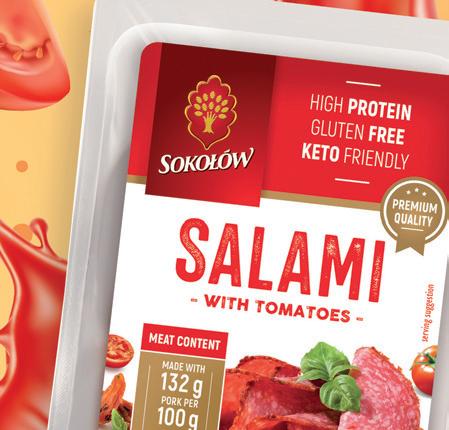
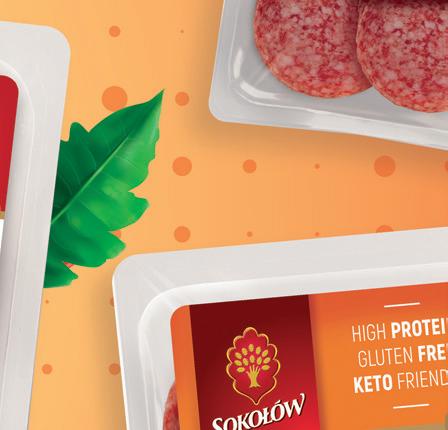


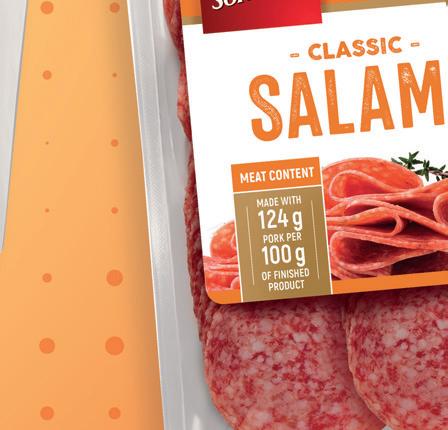
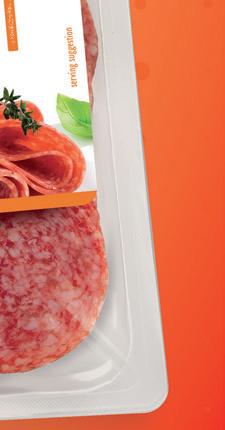


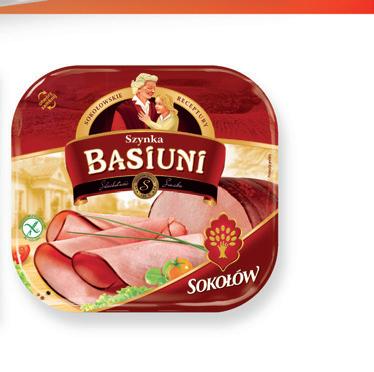




































The export of Polish food products is an important element of the country’s economy and plays an increasingly important role in the international arena. Poland is one of the main food producers in Europe and its products are becoming more and more popular on world markets.
Polish producers offer a wide range of food products, including: meat, dairy products, cereals, fruit and vegetables, as well as processed food, cold cuts, cheese and many more. These products are characterized by high quality, they are manufactured with diligence, and have competitive prices which makes them more and more desirable on foreign markets.
Our food products reach consumers’ tables in Europe, North America, Asia and other parts of the world. Poland is famous for the production of pork and poultry, but it is also noted for the quality of its milk and cheese. These products are exported to many countries where they are appreciated for their taste and nutritional value.
The export of Polish food products not only contributes to the growth of the economy but also promotes Polish cuisine and culture abroad. Our food is
becoming more and more recognized and appreciated by consumers worldwide.
It is worth mentioning that the quality and tradition of Polish food products are chief assets that attract attention on foreign markets. Poland is famous for its long history of food production closely related to tradition, and for its concern for high quality and taste. It is these qualities that allow Polish products to gain recognition among consumers all over the world.
In 2022, the value of sales of agri-food products abroad reached a record level of EUR 47.6 billion (PLN 223 billion), 26.7% higher than a year earlier. Germany remained Poland’s main trading partner. Export to this country in 2022 amounted to EUR 11.9 billion and it was 25% higher than last year. The Netherlands, France, Italy and the Czech Republic were also important recipients of Polish agri-food products in EU countries. Among non-EU countries, the largest recipients of Polish agri-food products were Great Britain, Ukraine, the United States, Saudi Arabia and Israel.
Enjoy your reading.
28 Małgorzata Cebelińska, Vice President of the Management Board of SM Mlekpol
32 Bogdan Łukasik, President of the Management Board, Modern Expo
36 Jakub Kępka, Key Account Manager at Transad
44 Karol Pilaciński, Export Director and Edyta Pleban, Export Manager at Bogutti
50 Hubert Owczarek, Export Director at Cedrob Foods
54 Dariusz Goszczyński, the President of the National Poultry Council – Chamber of Commerce (KRD – IG)
58 Grzegorz Remigiusz Jekel,Chief Operating Officer, Wielkopolski Indyk and Chief Executive Officer, Grupa Producentów Drobiu
61 Franciszek Siegień, Owner of ELENA
64 Agnieszka Makaruk, President of the Management Board, Hela
92 Wojciech Ryttel, Member of the Board at MAXPOL
102 LIST
111
Editor-In-Chief Tomasz Pańczyk t.panczyk@foodfrompoland.pl Managing Editor Monika Górka m.gorka@foodfrompoland.plAdvertisement Office Phone: +48 22 847 93 67
Editorial Office Bagno Street 2/218 00-112 Warsaw, Poland Phone: +48 22 828 93 66 redakcja@foodfrompoland.pl www.foodfrompoland.pl
Fischer Trading Group Ltd.
CEO: Tomasz Pańczyk
t.panczyk@ftgroup.pl
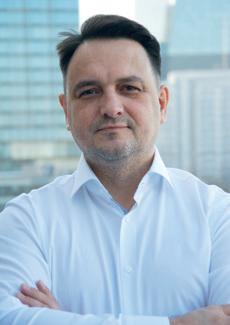
Poland is the leading EU producer of many agrifood products, including poultry, pork and beef, dairy products, apples, soft fruits, sweets, cereal products, alcohol and fish products.
Currently, Polish agriculture and the agri-food industry face numerous challenges on foreign markets. On the one hand, we can observe an increase in competition caused by the ongoing processes of globalization and liberalization, on the other hand, agricultural markets have been experiencing significant disruptions in recent years, first caused by the COVID-19 pandemic and now by the armed conflict in Ukraine.
Military operations conducted in Ukraine caused disruptions in supply chains on an unprecedented scale. Before the outbreak of the war, Ukraine, due to its location, climatic and soil conditions, was the world’s leading producer and exporter of grain. The blockade of the Black Sea, which has prevented the transport of grain and other agricultural products, is causing not only disruptions in supply chains but also the risk of famine in African countries.
The opening of the EU market for goods from Ukraine resulted in uncontrolled imports of Ukrainian agricultural products, including those belonging to the so-called sensitive products, largely subject to quota imports until 2022. Agri-food imports from Ukraine to Poland increased threefold from the value of EUR 945 million in 2021 to the value of EUR 2.741 billion in 2022. This caused significant disruptions on agricultural markets, especially in the cereal and soft fruit sector, and the need to support domestic producers and search for new sales markets.
The war crisis in Ukraine is also a huge challenge for Polish agri-food exports where Ukraine is one of the main non-EU destinations. Polish entrepreneurs had to face sales and transport in war conditions.
Trade relations with Belarus constitute an additional difficulty. Belarus, still in 2021, was one of the
main Eastern European sales markets for Polish agrifood products and a leading recipient of Polish apples.
As of the 1st of January 2022, on the Belarusian market, there is a ban on the import of agri-food products from a number of countries, including Poland, as regards fruit and vegetables, meat products, dairy products and sweets.
There were also – fortunately, temporary – problems with the sale of Polish apples to Egypt, one of the main recipients of these fruits, which, because of the country’s difficult financial situation, introduced a number of obstacles in foreign trade.
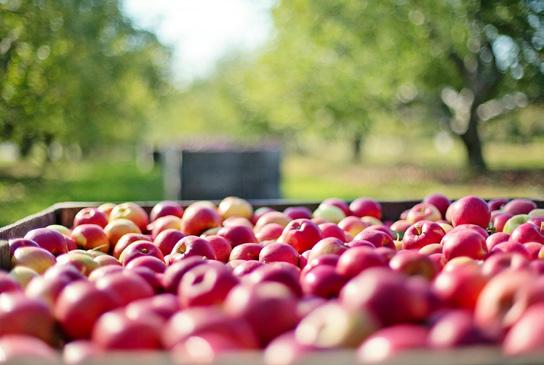
Despite these difficulties, the results of Polish agrifood exports are very good, and last year was another record year for the industry. The value of Polish agrifood exports in 2022 amounted to 47.6 billion.
This is over 27% more than in 2021 and a 9-fold increase compared to 2004. An increase in the value of export was recorded in virtually all commodity groups of agricultural and food products. According to the latest results, the upward trend continues to strengthen.
In the first half of 2023, another increase in the value of exports was recorded, by approximately 16%, compared to the first half of the previous year. This proves the development of the Polish agri-food sector and the strengthening of its role in the Polish and global economy.
Polish food brands are becoming recognizable and known in the world, not only in nearby European markets. Sales markets in the Middle East have got great potential (including Saudi Arabia, Israel, United Arab Emirates) and in Asia (Japan, South Korea, Singapore and Vietnam), as well as in Africa (including Algeria).
Let me give you some examples: Polish apples are sought-after on markets such as India and Egypt. As regards beef, Israel and Japan are important destinations for Poland, and as far as pork is concerned - the USA and Vietnam. Polish dairy products sell well in Algeria, the United Arab Emirates, India and China. Polish beer, however, finds enthusiasts in Asian coun-
tries such as South Korea and China.
In recent years, Poland has become one of the main suppliers of eggs to the Singapore market. This is an important achievement proving very high quality of Polish food. Singapore is a country that, despite being virtually completely dependent on external food supplies, is one of the most stringent importers in terms of veterinary and phytosanitary requirements.
I would like to emphasize that the development of Polish agri-food exports is also influenced by institutional activities supporting the development of trade exchange. These activities are carried out by the National Agricultural Support Centre (KOWR).
KOWR activities focus in particular on organizing national stands at the most important global agri-food fairs held in Europe, Asia, the Middle East and Africa, where Polish companies present their offer. The promotion of Polish food on foreign markets is carried out under the slogan “Poland tastes good”.
KOWR also organizes trade missions during which entrepreneurs can learn about the conditions existing on a given market and take part in B2B talks.
Entrepreneurs can also take part in information webinars on foreign markets. KOWR also organizes inbound missions for foreign entrepreneurs during which they visit the most important Polish agri-food fairs, go to processing plants and participate in business meetings.
The numerous and diverse activities of KOWR have a positive effect. Polish food is becoming more and more recognizable on foreign markets, and its high quality and taste are appreciated. Trade relations between Polish and foreign entrepreneurs are also strengthened, which contributes to positive results of Polish foreign trade, even in the current difficult geopolitical situation.
Poland is the sixth food producer on the EU market. Food product manufacturing in Poland accounts for approximately 6% of the production value in the EU.
Brand Distribution Group, has been successful in the global distribution market for the last 30 years. The Polish company is an international importer and distributor of FMCG products. It supplies partners with renowned and popular brands. However, it is its ability to discover unique assortments in remote corners of the world that clearly sets it apart from other distribution companies.
Understanding consumers is the key to building an offer that accurately meets the needs of a particular market. The distributor constantly monitors buyer behaviour and current market trends. Every year, it participates in the most important trade fairs, such as Anuga in Cologne, SIAL in Paris, Gulfood in Dubai, Foodex in Tokyo, and the Fancy Food Show in New York. This gives the company an insight into the dynamic market situation.
The analysis covers key product categories, both in Poland and internationally. Consumer expectations, point-of-sale behaviour, financial capabilities, and sensitivity to marketing activities are taken into account. With this unique, continuously updated knowledge, Brand Distribution skilfully translates it into an offer optimally
suited to the market – which often is unique and very demanding.
The company is quick to spot trends that overlap across different regions of the world. Its sensitivity, and its ability to keep its finger on the pulse, allows it to offer contractors products that are yet to become popular. This, in turn, enables them to be the first one who markets such goods. In this way, Brand Distribution Group helps to build a competitive advantage for the businesses working with the organisation.
The company currently offers tens of thousands of products from all over the world and is constantly looking for new ones. This task is carried out by a 200-strong team of specialists,
speaking 16 languages, employed in branches located in Europe, Asia and the USA. The company operates in 100 markets and supplies products from all over the world. In virtually every country, the distributor has established contacts and, if this is not the case, it can build them quickly and efficiently.
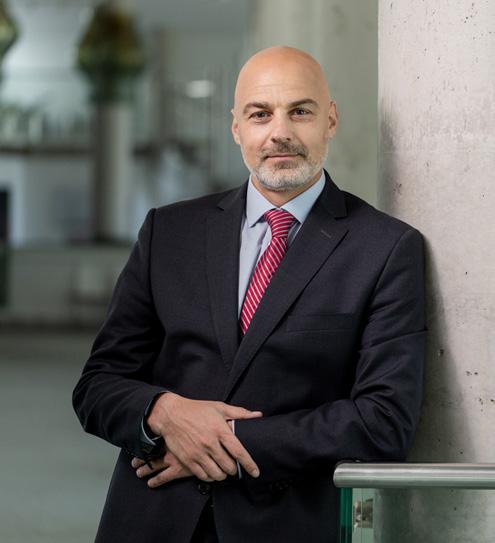
The Brand Distribution Group’s product range includes brands in exclusive distribution for specific markets (including Huggies, Kotex, Dalli, Dash, Ambi Pur, Ariel, Dreft, Itsu, Vitamizu, Triumf and Voll), as well as world-renowned A-brands in both the food and non-food categories, and products from the rapidly growing pet accessories and food segment. This is a major convenience for business partners, who can complete even the most complex order in one place.
 Wiktor Sawosz, Founder and President of the Management Board Armen Papazjan, Vice President and CEO
Wiktor Sawosz, Founder and President of the Management Board Armen Papazjan, Vice President and CEO
Wiktor Sawosz built the business by starting out by selling sweets. “I will never forget the shelves in our warehouse, which literally exploded with a fever of colours. A nice change after years of ubiquitous greyness. Then we expanded the range to include cleaning products. Then cosmetics,” he recalls. The founder of the Brand Distribution Group understood that providing the market with interesting novelties – products different from what consumers had been used to for many years – gave him great satisfaction. It is the driving force behind the business. This feeling has survived and accompanies the company and its employees to this day.
The owner’s mindset has naturally turned out to be the company’s differentiator, which is the ability to discover unique assortments in remote corners of the world. To maintain a competitive edge, the distributor invites people with the so-called “explorer gene” into its ranks, those who will not stop until they have found the products that meet the customer’s needs in a particular market. This is why the offer of the distributor is always full of novelties and products not commonly known, such as Chupa Chups drinks, Prime Hydration drinks, San Pellegrino flavoured waters, unusual flavours of popular brands, such as Fanta or Coca Cola, as well as Takis, Celsius and Chipoys products. American sweets, ITSU ready meals, and unique cosmetics generate huge demand among the distributor’s business customers.
This year, Brand Distribution is making its offer more attractive and expands into the alcohol category. It is analysing how markets and consumption are changing. For this purpose, it has attracted producers and suppliers from different regions of the world.
The company’s strategy for the next year is to strengthen its presence in the UK, Spain, Italy, China, and India in order to offer further new and surprising product categories. “We have been maintaining a good growth rate for several years now and we want to fully exploit our commercial potential,” comments Armen Papazjan, Vice President and CEO of Brand Distribution. “We are an increasingly flexible company that responds extremely quickly not only to dynamic changes in the global economy, but also to changing consumer needs and consump-
tion styles. We are extremely proud of this ability. For us, strengthening our presence in a particular market means being able to better identify needs, to diversify our offer, and to provide services to specific local expectations. It is also an opportunity to deepen relationships with our partners, based on trust and common interests to benefit both parties.”
The company operates globally and is therefore able to source the expected products at an attractive price in markets that offer the same product at a lower cost. Volume is also important. The more a distributor buys, the more attractive the price it can offer. Price plays an extremely important role, especially today, when it is becoming a major factor affecting purchasing decisions of consumers.
Moreover, Brand Distribution Group offers a whole set of support services that are essential in the FMCG business: product marketing, customs documentation, logistics, or after-sales service. By taking advantage of the full service in one place, customers can significantly reduce transaction costs and save time, thus being able to focus on other key aspects of their business development.
As a family-owned company, Brand Distribution Group is focused on long-term operations. It is much more concerned with maintaining quality, a higher level of credibility, and building long-term business relationships. This model worked well during the pandemic. It works in the current political and economic situation in Eastern Europe. “It is very important for us that our partners feel that we are on the same team, that our values, as well as the team definition go well beyond the internal structures
of the organisation. Reid Hoffman said: ‘No matter how brilliant your thinking or strategy is, if you play solo, you will always lose to the team.’ I agree with him 100%. Hence our presence at this year’s Anuga. We want to show current and prospective clients that they can gain even more business by working with us and by taking advantage of the opportunities we have to offer,” Armen Papazjan adds.
This year marks the company’s 30th anniversary and is in many ways a milestone year for the company. Brand Distribution is investing in more trade destinations and the offer is constantly being expanded based on the organisation’s unique knowledge of the needs of markets and customers. The company is refining its processes to be even more flexible in its operations. This is required in the current global situation and, consequently, expected by business partners. Brand Distribution has had a reorganisation process that has improved operational efficiency in a short period of time. The structure of the sales departments has been reorganised, the model for working with customers has been amended, and order picking and shipment times have been significantly reduced. We did not have to wait long for the results of the strategic changes. The company has recently seen a significant increase in sales by opening cooperation with new key customers, which is confirmation of the right direction of the organisation’s development and of a thorough understanding of the needs of business partners. “I am convinced that new clients will appreciate our way of working, which is focused on business development and tangible benefits for both parties,” Wiktor Sawosz concludes.
The right choice of business partner is one of the key elements for achieving success in the FMCG industry. We talk to Armen Papazjan, Vice President and CEO of the organisation, and to Wiktor Sawosz, Founder and President of the Management Board, about the competitive advantages that have allowed the company to win international contracts and build a stable global position, as well as about the benefits of cooperation with Brand Distribution Group.
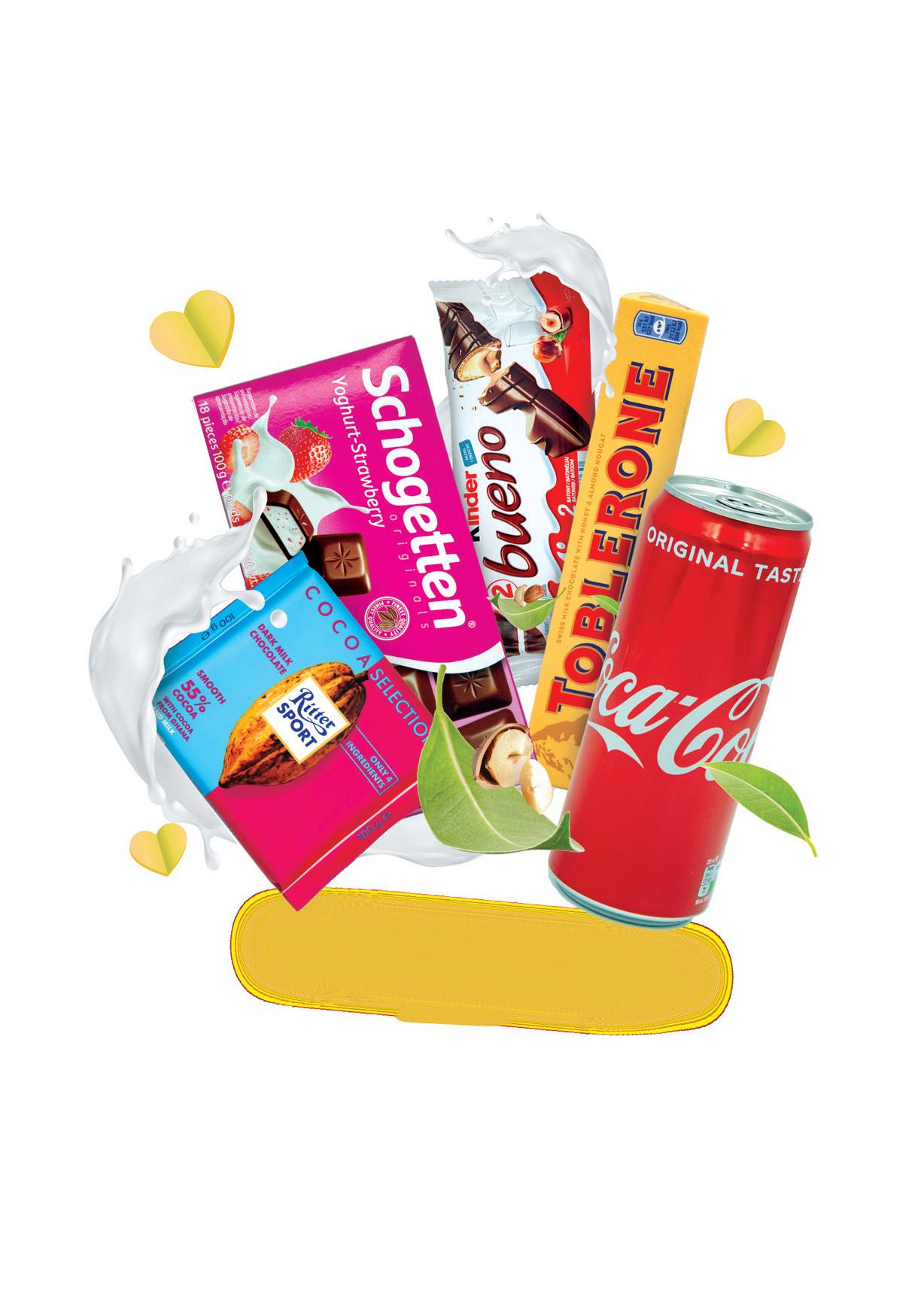



Developed at the Bureau of Analyses and Strategies of the National Support Centre for Agriculture.
2022, in spite of difficult conditions on the international market, saw a further growth in the value of Polish food exports. In 2022, the value of foreign sales of agri-food products reached a record-breaking level of EUR 47.6 billion (PLN 223 billion), 26.7% higher than the year before.
Simultaneously, the agri-food imports had a value of EUR 32.1 billion (PLN 150 billion) and were 28.6% higher than the year before. The positive balance of trade developed to the level of EUR 15.5 billion (PLN 73 billion), higher by 23% than in 2021.
The revenues from foreign sales by domestic exporters were impacted by growing transaction prices of agri-food products on the international market, recorded upon the outbreak of the armed conflict in Ukraine. At the same time, trends of depreciation of the zloty in relation to the EU currency were a factor favourable to the price competitiveness of Polish agri-food products, since more than 80% of the receipts from food exports to the EU were generated by sales to the Eurozone countries.
The process of revival of the HoReCa sector’s activity in the EU after the pandemic, which took place in the first half of 2022, as well as growing food prices in EU countries, generated increased demand for Polish foods competitive in terms of prices and quality. Simultaneously, the good results achieved in exports were a consequence of the activity of domestic entrepreneurs towards diversification of business relations on markets of the EU and third countries, due to the ability to adapt the assortment offer to diverse preferences of foreign consumers.
As in the previous years, agri-food products were predominantly exported from Poland to
223 bn)
EUR 32.1 bn (PLN 150 bn)
Source: Elaboration of the Analysis and Strategy Office, the National Support Centre for Agriculture.
EUR 15.5 bn (PLN 73 bn)
Source: Elaboration of the Analysis and Strategy Office, the National Support Centre for Agriculture.
the market of the European Union. In 2022, supplies to EU-27 countries generated EUR 35.3 billion (an increase by 29%), comprising more than 74% of revenues from total agrifood exports.
The main products sold to EU countries
included: poultry meat (EUR 3.3 billion), cigarettes (EUR 2.9 billion), dairy products (EUR 2.6 billion), beef (EUR 1.8 billion), bread and bakery products (EUR 1.8 billion), animal feed (EUR 1.6 billion), as well as chocolate products (EUR 1.5 billion).
Agri-food products from Poland were predominantly exported to the market of the European Union.
Polish agri-food exports to the EU market are characterized by significant geographic concentration.
Germany remained the main trade partner of Poland. Exports to this country in 2022 amounted to EUR 11.9 billion and were 25% higher than the year before. The main products exported to Germany included cigarettes, poultry meat, fish preparations, animal feed, bread and bakery products, maize grain, as well as chocolate and chocolate products.
Other important recipients of Polish agrifood products included the Netherlands, France, Italy and the Czech Republic. Total exports to the markets of the five countries mentioned above (Germany, the Netherlands, France, Italy, and the Czech Republic) generated EUR 22.4 billion, comprising more than 63% of the value of exports to the EU-27 countries.
Non-EU countries in 2022 were reached by Polish agri-food products worth EUR 12.3 billion, higher by 20% than in 2021. The main products exported from Poland to nonEU countries included: dairy products (EUR 1.0 billion), poultry meat (EUR 990 million), wheat (EUR 776 million), chocolate and chocolate products (EUR 733 million), bread and bakery products (EUR 731 million), as well as cigarettes (EUR 612 million). The most significant non-EU recipients of Polish agri-food products, as in the previous years, included:
- United Kingdom (revenue of EUR 3.7 billion, a 25% increase in value, the exported goods were predominantly poultry meat, meat preparations, chocolate and chocolate products, as well as bread and bakery products);
- Ukraine (EUR 945 million, an increase
by 16%; the exported goods were predominantly cheese and curd, animal feed, coffee, chocolate and chocolate products, water, bread and bakery products, as well as pork);
- United States (EUR 770 million, an increase by 26%; the goods exported to the USA were predominantly chocolate and chocolate products, fish and fish preparations, pork, and meat preparations);
- Saudi Arabia (EUR 521 million, an increase by 2%; the exported goods were predominantly cigarettes, bread and bakery products, wheat, as well as cheese and curd);
- Israel (EUR 439 million, an increase by 50%; the exported goods were predominantly beef, wheat and sugar);
- Norway (EUR 296 million, an increase by 10%; the exported goods were predominantly cigarettes, maize grain, animal feed, and fruit preparations);
- Algeria (EUR 242 million, a drop by 42%; the exported goods were predominantly condensed and powdered milk – 66% of the exports value, as well as tobacco – 26%).
The commodity structure of agri-food exports from Poland was dominated by meat and meat preparations. In 2022, the revenues from foreign sales within this commodity group were higher by 37% than the year before, amounting to EUR 9.6 billion which comprised 20% of the total value of Polish agri-food exports. The largest share in the exports of meat and meat preparations was comprised by: poultry meat (44% – EUR 4.3 billion), meat preparations
(23% – EUR 2.2 billion), beef (22% – EUR 2.1 billion), and pork (8% – EUR 812 million). Export of live animals and other meats was relatively low, comprising a 2% and 1% share, respectively in the revenue from exports of meat products from Poland.
The commodity structure of agri-food exports from Poland was dominated by meat and meat preparations. In 2022, the revenues from foreign sales within this commodity group were higher by 37% than the year before, amounting to EUR 9.6 billion which comprised 20% of the total value of Polish agri-food exports.
The second most valuable position, with a 14% share in the agri-food exports from Poland, was occupied by cereal grains and their preparations, with their total value growing by 40%, to EUR 6.6 billion, in comparison with 2021.
The increased value of exports was recorded in virtually all commodity groups of agri-food products, i.e. tobacco and tobacco products (by 4%, to EUR 4.3 billion), dairy products (by 37%, to EUR 3.6 billion), sugar and confectionery products (by 14%, to EUR 3.2 billion), fish and their preparations (by 14%, to EUR 2.8 billion), as well as vegetables and their preparations (by 21%, to EUR 2.3 billion) and fruit with their preparations (by 6%, to EUR 1.8 billion). Furthermore, there was an increase in the export value of such goods as oilseeds and vegetable fats –by 80% (EUR 1.6 billion), coffee, tea and cocoa – by 28% (EUR 1.1 billion), fruit and vegetable juices – by 27% (EUR 0.9 billion), and alcohol – by 20% (EUR 0.8 billion).
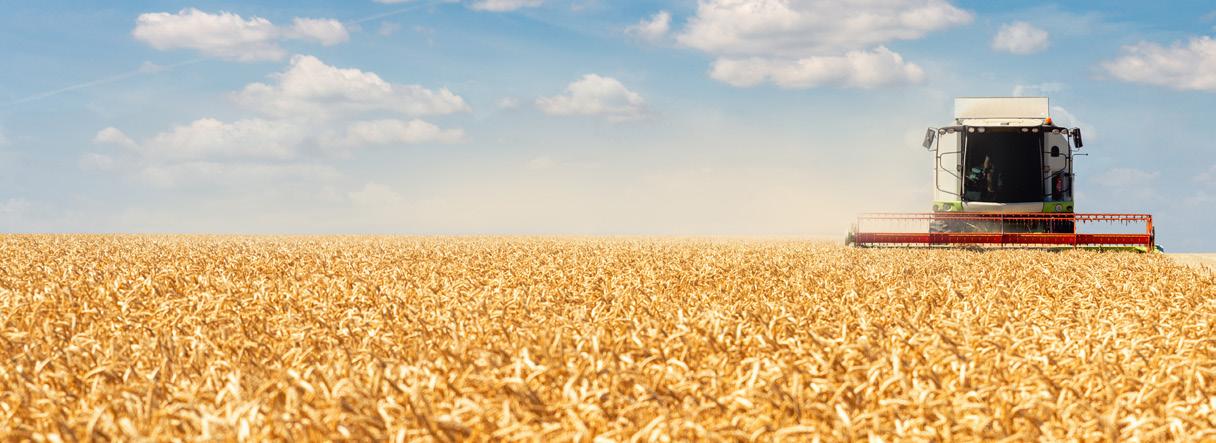
The second most valuable position, with a 14% share in the agri-food exports from Poland, was occupied by cereal grains and their preparations, with their total value growing by 40%, to EUR 6.6 billion, in comparison with 2021.

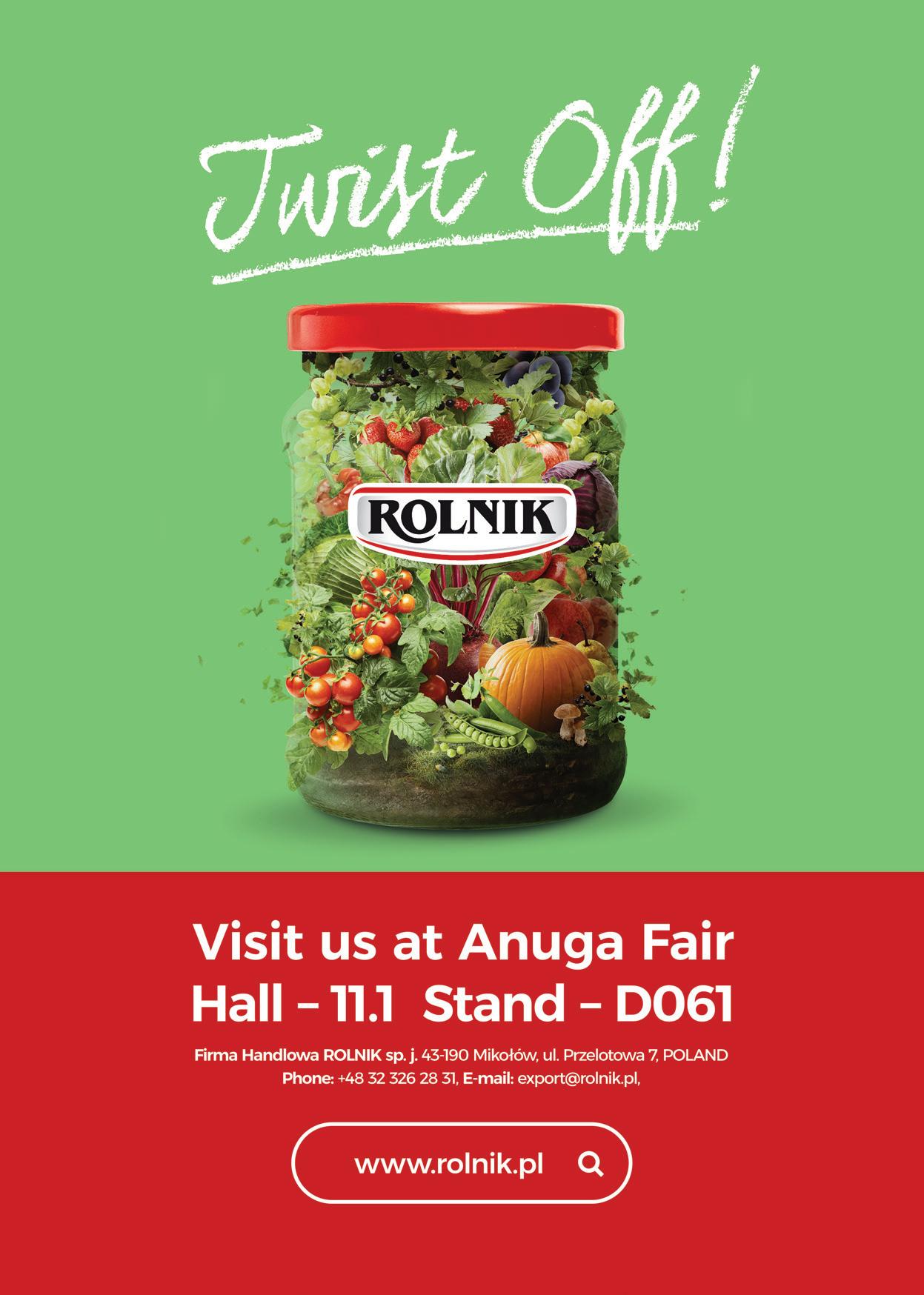
As PILOT International approaches its 25th anniversary, Paweł Kubiak, President of the Management Board sheds light on Poland’s transformative role in global commerce, the fast-paced world of FMCG, and how PILOT International has continually innovated to stay ahead.

Is foreign trade an area exclusive to experienced Polish players? How to conquer foreign markets?
In the last two decades, we have witnessed significant changes in foreign markets and international trade. Globalization, ease of communication, as well as broad government support and funding have opened the doors of this field to many small and medium-sized entrepreneurs. Polish companies have begun to actively participate in international trade fairs and trade missions, thereby strengthening their position on the international stage. Polish products are becoming increasingly popular and are eagerly chosen by consumers worldwide. Nevertheless, for many entering foreign markets is still a significant challenge. The range of restrictions, complicated administrative and customs procedures constitute a significant barrier. The unstable political situation and changes in financial markets mean that many Polish companies still lack the courage and capital to effectively implement export activities. It must be acknowledged that the beginnings are very challenging and acquiring clients and maintaining high-quality service is a process that requires continuous improvement and hard work.
What challenges does the FMCG market face?
Globalization, and as a result, easier access to foreign products, means that audiences/consumers are saturated with the number of offers, and end consumers are overstimulated by new products heavily promoted on social media. The biggest challenge is keeping up with market trends, meeting consumer expectations and creating new sales strategies. One must constantly follow the fast-paced trends and changing consumer needs to avoid falling behind.
What does your offer look like? Can you tailor the offer to individual clients?
PILOT International offers a wide range of FMCG products, primarily from international well-known manufacturers such as Nestle, Mars, Ferrero, Coca Cola, Unilever, Procter & Gamble, Mondelez and many others. In our offer you will find products from the following categories: beverages, coffees and teas, confectionery, hygiene products, cosmetics as well as frozen products and toys. Furthermore, we regularly expand our portfolio with new items based on client needs. We scour markets
around the world, selecting offers from manufacturers in many countries to source new products. We constantly monitor trends on TikTok, Instagram, and YouTube. As a result, our offers continue to surprise. We are not afraid of challenges and boldly enter new markets. In addition, we always strive to provide a comprehensive service to the client and listen to their needs. We offer commercial and logistics consultancy for new clients, who are starting their export journey. Our team does everything that’s possible to make our clients feel comfortable in their dealings with us and we ensure that the transaction is secure - our most frequently chosen service is ‘door to door’.
How do you ensure competitive prices? What sets you apart from other companies?
The prices of our products are very attractive, however, this is not the only important component of our commercial offer. We place a great deal of importance on optimising additional costs and providing comprehensive service to our clients. Price is the first value that a potential client sees. The price, however, can sometimes be accompanied by additional costs and transactional risks. The PILOT Team keeps the client informed about what is included in the price of the product and, above all, we guarantee order fulfillment regardless of market price fluctuations. We often bear the risk of exchange rate differences, manufacturer price increases, delivery delays, and so on. We do not make empty promises but present our offer in a clear and accessible manner. Currently, the biggest challenge is not the price of a product, but ensuring availability and timely delivery.
Efficient logistics and a reliable warehouse base are essential requirements for an export operator. How does your experience and established position help meet these requirements?
We provide access to our warehouse stock, continually replenishing it with the fastest-moving products. Clients receive offers for products available in our warehouse and can place orders on the same day. The stock value at PILOT INTERNATIONAL is constantly maintained at a high level – and we stock the most popular products. We have invested in an innovative system dedicated to our company that controls product best-before dates and location, enabling us to swiftly prepare the order for loading and also to accurately inform clients about the unique characteristics of the products. We have an experienced warehouse team trained for all types of loadings. We offer labelling and repackaging services, carefully securing shipments to ensure that the goods reach clients undamaged.
The FMCG industry is very susceptible to any turbulence in the world. It is like a living organism that reacts very quickly to changes. The closure of one factory or sudden congestion can trigger a “domino effect” in international markets. Minimal shortages or price hikes by manufacturers create chaos and uncertainity. We stay up to date and absorb information from around the world to react as quickly as possible to any situation.
Does the increasingly modern, digital world still need physical meetings at trade fairs? What importance does participation in such events have for your company?
“Covid” has opened up the digital world of meetings and human relationships. We are aware that a new generation is entering the job market for whom conveying essential information via text and virtual meetings are an everyday occurrence. Personally, I still prefer “face-to-face” meetings – nothing can replace the handshake of business partners, the smile of satisfaction from a transaction, the exchange of views and human emotions. PILOT INTERNATIONAL participates in almost all significant trade fairs – both existing and potential clients can approach us, get to know us personally, exchange views and opinions, not only on business matters. A long-term friendly business relationship is in our view the best and guarantees cooperation for years.
In what direction is the food market developing? Have new trends, geopolitical situations, and crises changed the way the FMCG industry operates?
The FMCG industry is very susceptible to any turbulence in the world. It is like a living organism that reacts very quickly to changes. The closure of one factory or sudden congestion can trigger a “domino effect” in international markets. Minimal shortages or price hikes by manufacturers create chaos and uncertainity. We stay up to date and absorb information from around the world to react as quickly as possible to any situation.
How is Pilot International changing? What goals do you set for yourselves in the coming years?
Pilot International will soon celebrate its 25th anniversary. We continually work on improving our services. We want the PILOT brand to be associated with high-quality services, transaction security and good interpersonal relationships. Business and pleasure – we believe that working in the FMCG industry, despite its fast pace, can be enjoyable and not a constant battle over prices and products. We look forward to meeting our friends and business partners at the Anuga trade fair to sit down together and seek solutions for the development of our businesses. You are welcome to visit our booth D 024 in hall 2.1.
Thank you
Tomasz Pańczyk, Editor-in-Chief
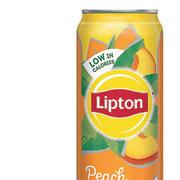


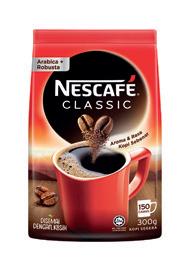
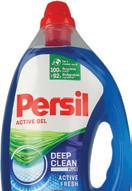

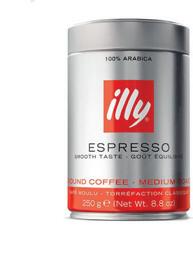

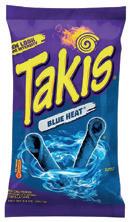
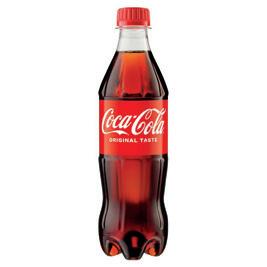
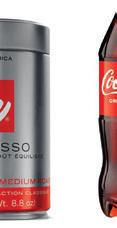

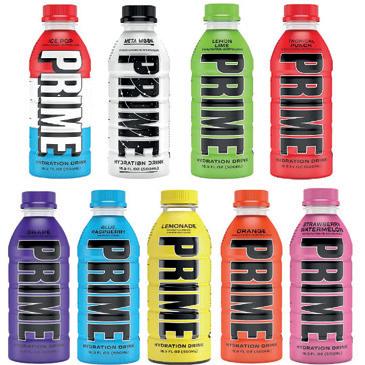


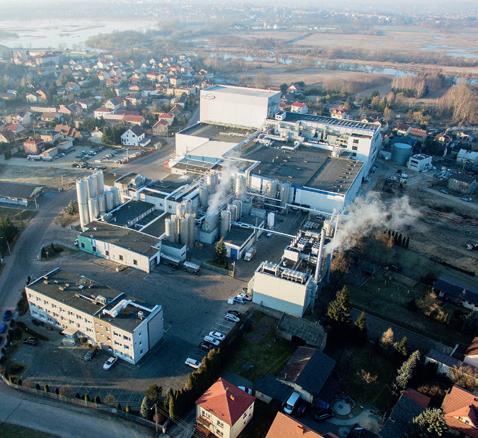


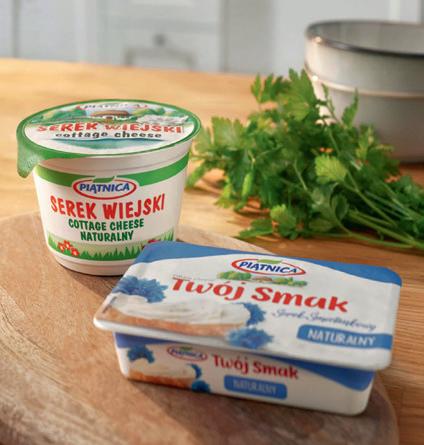
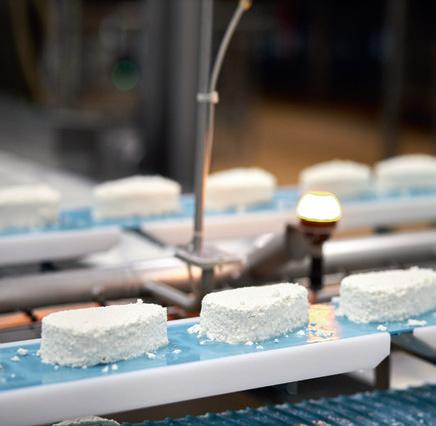


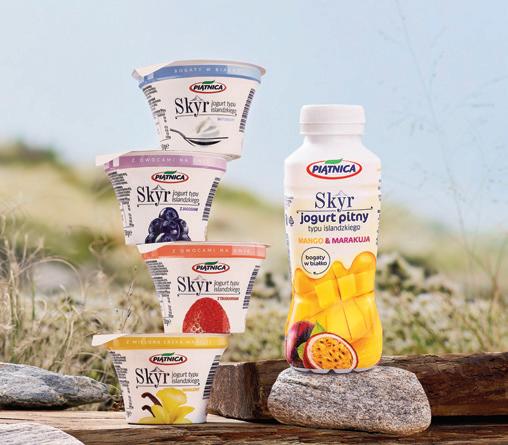

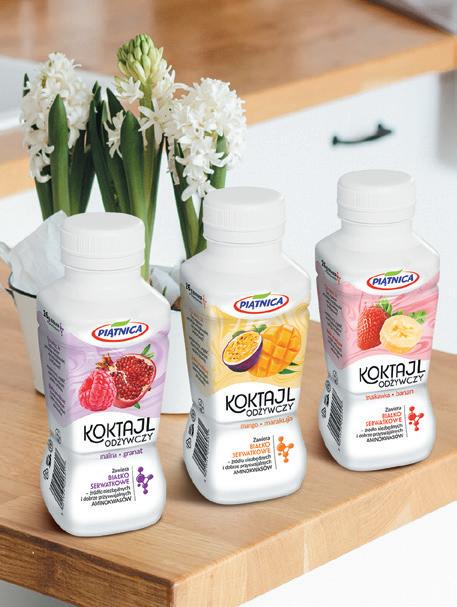
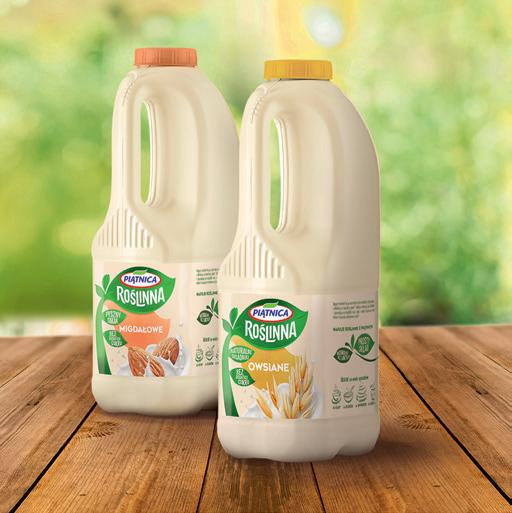
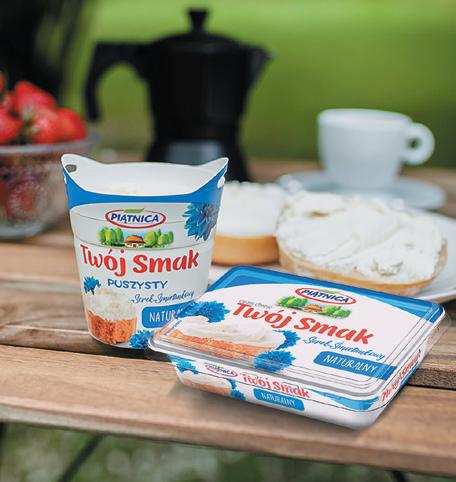
Currently, the Mokate Group consists of several enterprises operating in Poland, the Czech Republic, Slovakia, Hungary, the UK, South Africa, and Dubai, exporting their products to almost all countries of the world. The company owns three production plants: in Ustroń, Żory, and Votice, Czech Republic.
Mokate’s annual revenues approach PLN 1.5 billion, 80% of which come from foreign markets. “We like challenges that require bold and visionary action. With our experience and perseverance, we manage to overcome these challenges and expand successfully on international markets. Our export activities account for more than 70% of the Group’s revenues. Its further development is possible because of our focus on innovation and the quality of our offer,” stresses Dr. Adam Mokrysz, the CEO of the Mokate Group.
The company employs more than 1,500 people worldwide. The Mokate Group is dynamically increasing its exports, implementing innovative products, and contending successfully for global consumers. The best-known Mokate brands include: LOYD, Mokate, NYCoffee, Minutka, Marila, Marizzi, Alpino, Babcia Jagoda.
“Since the beginning of our operations, the company has been a family enterprise, which is an enormous value for the entire brand. Staying true to the tradition and to family values has been the basis for the development of the Mokate business so far. The family nature of the company is manifested, above all, in the relations there, since Mokate employs entire families, including multigenerational ones,” says Dr. Katarzyna Mokrysz, the General Director of the Mokate Group.
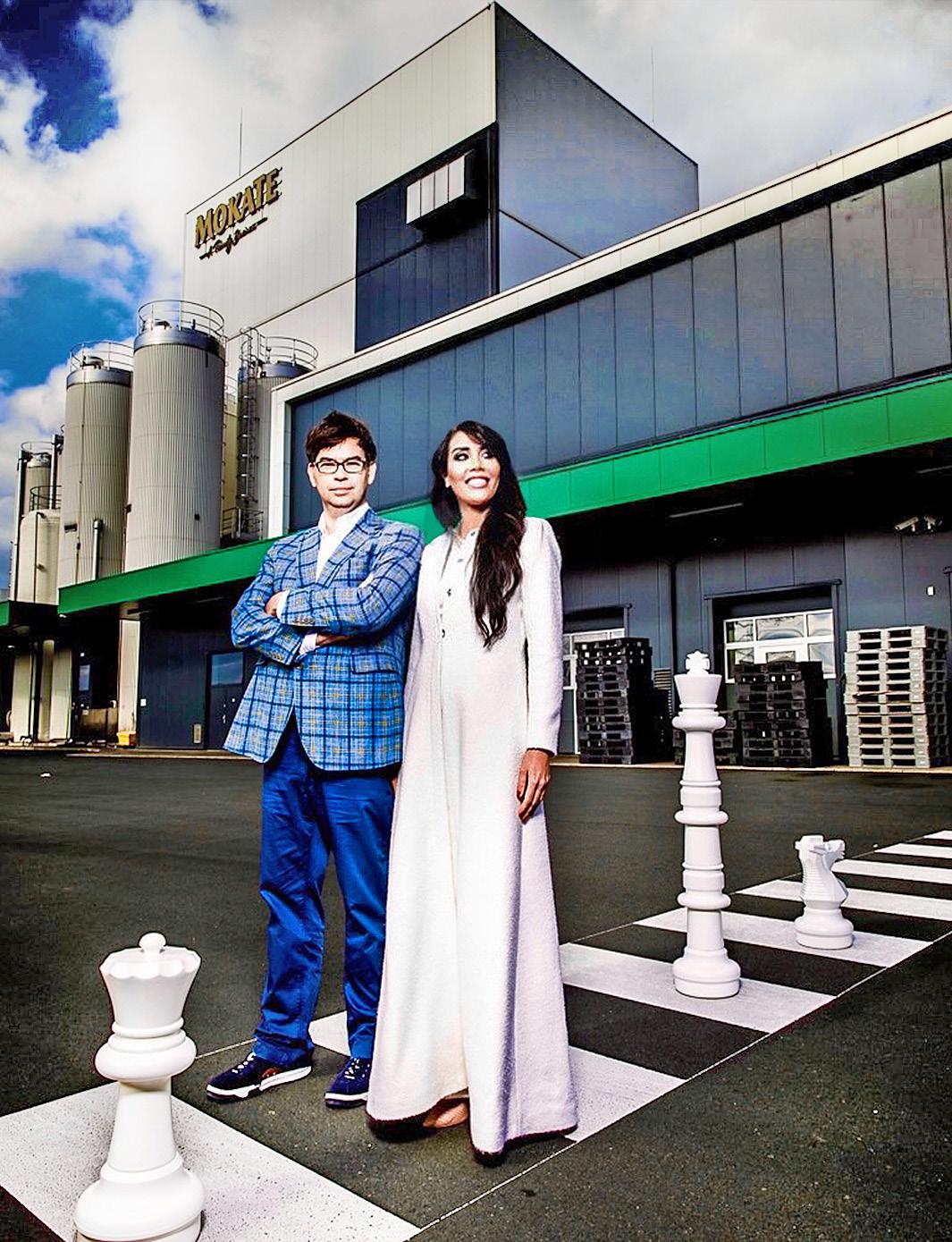
Since the beginning of its operations, Mokate has been a family company. As the fourth generation in charge, Dr. Adam Mokrysz and his wife, Dr. Katarzyna Mokrysz, work together for the success of the Mokate Group. For many years, their goal has been the creation of a brand-name international enterprise based on family values.
The success of the Mokate Group is all the more satisfying that the company engages in activities in the area of corporate social responsibility. The Mokate Group builds its CSR, among other things, on the basis of the popularization of chess. This game is a tradition of the Mokrysz family. On the initiative of the company’s founders, chess clubs have been established, and the Mokate Chess Academy was created several years ago.
Mokate is known and appreciated in Poland and beyond. What has contributed to the successful expansion of the Mokate Group to foreign markets?
Adam Mokrysz: At Mokate, we try to act and build our growth on the basis of 3 pillars: vision, courage, and action. We face challenges with courage, we focus on teamwork and cooperation with experts, we set ourselves ambitious goals and we pursue them step by step with wonderful people. Most of all, we like working and we work with great passion.
Katarzyna Mokrysz: Mokate is a flexible company, able to skillfully adapt to changing consumer needs and market conditions. We present an agile approach, our offer often includes innovations and new products. We explore and look for new, attractive markets, we cooperate with reliable business partners. Investment in new technologies and in our plants is a priority to us. Teamwork, perseverance and consistency of the decisions made, as well as the ability to calculate well, are important elements allowing us to develop dynamically.
What challenges are faced today when managing such an enterprise as Mokate? How do you combine your family tradition with the global scale of business?
Adam Mokrysz: Indeed, I think the greatest challenge is to reconcile the local, family level with international development and the scale of the company’s operations. The foundations of our identity, our DNA, are based on family tradition, human beings, but also on Polishness. We are proud of it and we have turned those features into our competitive advantage.


Katarzyna Mokrysz: Work in an international environment means a great diversity of cultures that broaden our horizons, stimulate creativity and allow for exchange of experience. We observe different trends and flexibly adapt to the circumstances. This is how creative ideas, new product concepts, or even investments are born. The knowledge and knowhow of our teams is invaluable; as a family compa-
ny, we know this well and we can take advantage of this like no one else. Of course, there are many more challenges – of a different nature: formal and legal, technological, logistic. But we handle them excellently, thanks to the teams of people on whom we base our business.
Thank you
Tomasz Pańczyk, Editor-in-Chief The production plant in Żory
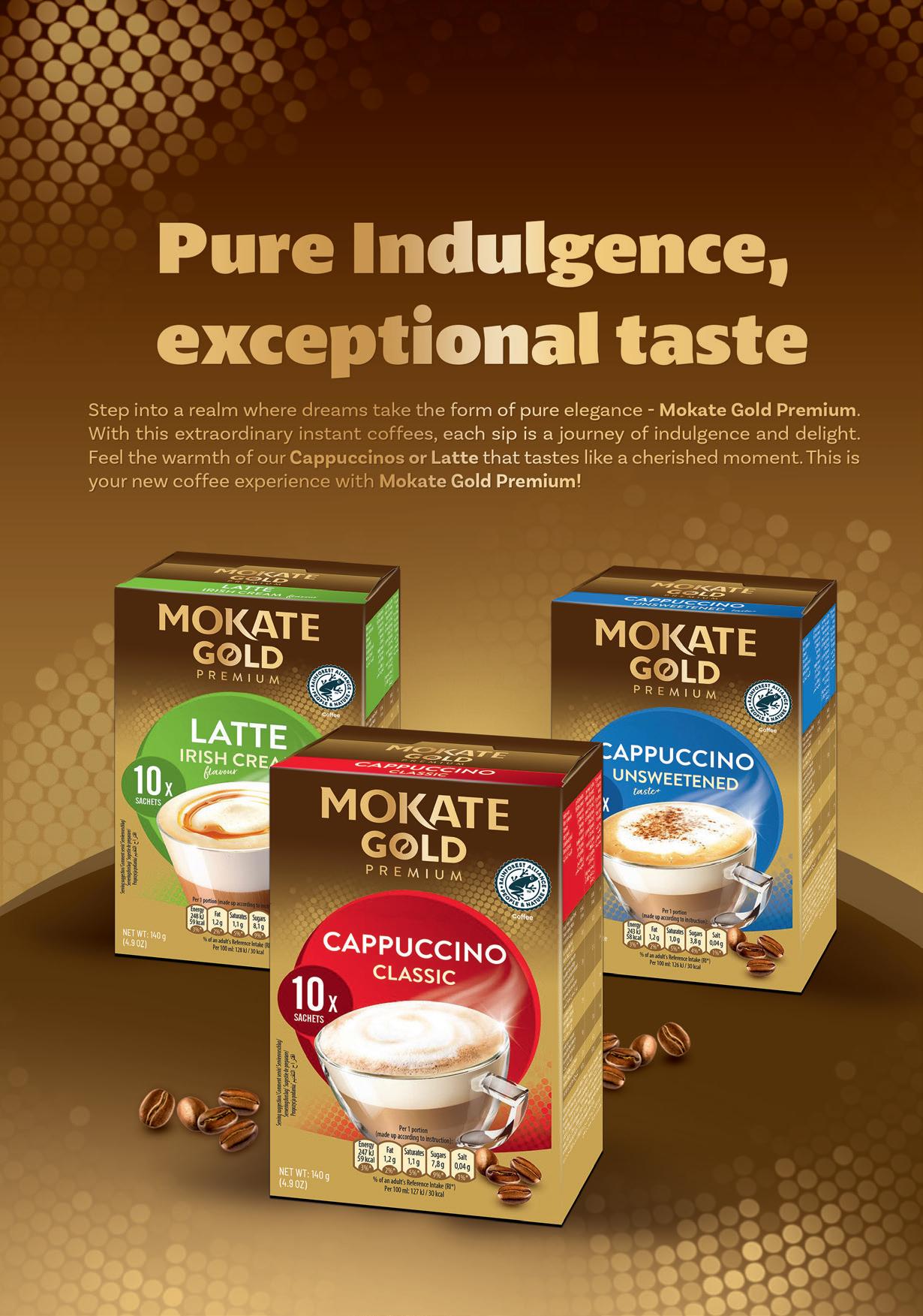
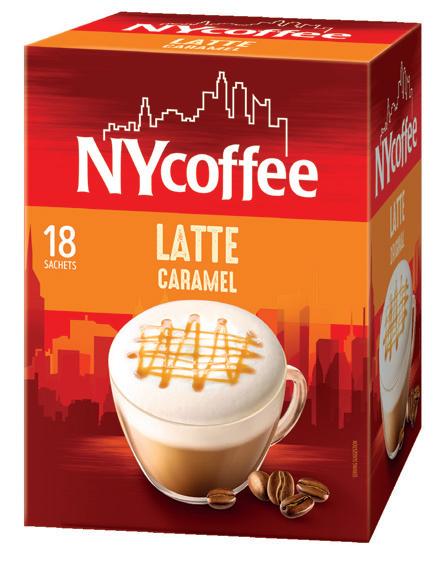
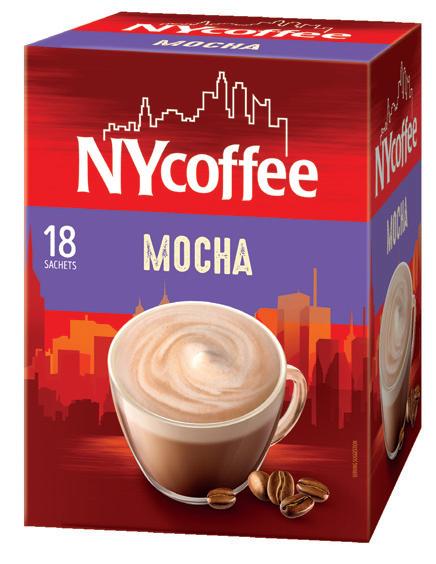
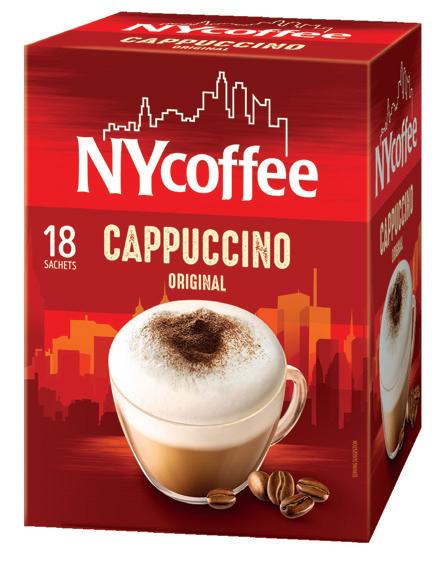

As one of Poland’s dairy titans, Mlekpol’s reach spans over 100 countries worldwide. We talk with Małgorzata Cebelińska, Vice President of the Management Board of SM Mlekpol about export to dynamic markets of Asia and Africa, unique strategies, and unwavering commitment to quality that define Polish dairy manufacturer.

SM Mlekpol in Grajewo is one of the main dairy producers in Poland. However, 30% of your output reaches foreign markets. In which countries can your products be found?
The products of SM Mlekpol reach more than 100 countries of the world, and our main recipients are the European Union states. Our highest turnover today is achieved with Germany, the Netherlands, Lithuania, Latvia, Bulgaria, Italy, and Greece. The scale of production and broadness of our offer allow Mlekpol to develop exports also to the countries of Africa and the Far East. Our products are present in such countries as Libya, Morocco, China, Vietnam, Japan, South Korea, Cambodia, Indonesia, Malaysia, and the Philippines. Another important direction of export is the Middle East – Israel, Iraq, Saudi Arabia, the United Arab Emirates, and Qatar.
Due to the distance and common legal conditions, the European Union countries are the natural recipients of Mlekpol’s products. The cooperative collaborates, to a varied extent, with almost all states of the Community. The most intense trade exchange is conducted with such countries as Lithuania, Latvia, Estonia, Bulgaria, Greece, Romania, Germany, and Italy. Recently, an increasing amount of the Cooperative’s goods reaches Balkan countries, such as Serbia, Croatia, or Bosnia and Herzegovina. Countries whose own milk production is insufficient are another major direction of exports. Therefore, Mlekpol continues to develop its exports to the countries of Africa, Middle East, South-East Asia, as well as Latin America, mainly Mexico, Chile, and the Dominican Republic.
What makes your export offer stand out? Does it differ depending on the country?
Mlekpol’s export offer means, above all, products with long shelf lives, appreciated by foreign clients and consumers for their high and repeatable quality as well as Polish origin. They include cheese, butter, UHT milk, cream cheese and processed cheese. To meet the expectations of foreign partners, Mlekpol has created new UHT milk brands (Milcasa and Happy Barn), standing out with their image and communication on store shelves in various countries around the world. Products intended for the B2B sector are powdered goods, such as skimmed and whole milk, whey, WPC, MPC, permeate, as well as fat-filled milk and whey. Construction of a modern Powder Production Plant in Mrągowo, equipped with 3 drying towers, has broadened the offer of such products, most of which reach foreign recipients. With its production scale and experience, Mlekpol adapts efficiently to specific requirements of individual countries. This often entails the creation of a completely new product marked in the recipient’s language.
Which products are currently trending? How have the customer preferences changed in the dairy category? How does the consumption of milk and dairy products look like in Poland, and how does it look like in the countries to which you export?
The most popular product has always been liquid milk as well as fresh dairy goods, consumed every day by billions of people worldwide. The annual per capita consumption of milk and dairy products is higher in developed countries than in developing ones, yet this gap is narrowing year
by year. Due to population growth, increasing consumption is recorded in African countries, in India, as well as in East and South-East Asia, particularly in China, Indonesia and Vietnam. In Poland, an upward trend in consumption of milk and dairy products has been maintained, yet its intensity is getting weaker. The consumption is higher in comparison with such countries as Slovakia, Hungary, Bulgaria, but still much lower than in the Netherlands, Germany, Finland, Sweden, or the UK. A product gaining popularity in almost all countries of the world is Mozzarella cheese, used, among other things, to produce, loved by everyone, pizza. Most fermented products, such as yoghurt, are sold in the drinking form, in practical and convenient “on the go” packages.
Quality plays a special role in the dairy product segment. How do you care about the safety and quality of your products? How do you verify your suppliers?
Mlekpol’s products are made exclusively of milk from our own suppliers who are members of the Cooperative. This allows Mlekpol to establish and enforce strict raw material quality standards, often more stringent than the requirements provided for in the regulations of the EU law. The quality of the received raw material is verified through testing of more than a dozen parameters, performed by internal as well as external and independent laboratories. Furthermore, the Cooperative meets international standards, such as the International Food Standard (IFS), HACCP in accordance with the Codex Alimentarius, or those resulting from evaluation systems, including Ecovadis, Sedex, and the SMETA social standard. Besides, Mlekpol offers its customers selected products compliant with the requirements of Islamic diet (halal) and with the rules of the Jewish law (kosher).
The high standard is also ensured by the technologies applied in production. How does the Mlekpol production line look like in this regard?
Mlekpol is comprised by 14 highly specialized processing plants operating several hundred production lines. Every year sees investments connected with machinery modernization as well as digitization and automation of processes. They are intended to increase the efficiency and effectiveness of production, to reduce the work inconvenience, and to cut the costs. Individual plants are characterized by narrow specialization in production of specific goods. The production in Grajewo, the main seat of Mlekpol, includes UHT milk, butter, curd, cottage cheese, and powdered milk. Mrągowo, on the other hand, has the largest cheesemaking line in Poland, with a daily capacity of 150 tons. Next to the cheesemaking plant, a modern Powdered Dairy Goods Production Plant has been built as one of Europe’s largest establishments of such type, processing 3 million litres of raw material (milk, whey) per day.
Sustainable development is a major aspect of operation on which producers on the FMCG market are focused. How do you care for the environment and the future of our planet?
Mlekpol has always aimed to care for the environment and natural resources. Therefore, the Cooperative has developed a strategy efficiently restricting the company’s negative climate impact. First, the use of bitu-
minous coal was eliminated in favour of natural gas or LNG. Secondly, Mlekpol produces its own electric power from low-emission fuels, increasing its energy security and independence. Between 2020 and 2022, two cogeneration heat and power plants were launched at the Mrągowo and Zambrów plants and are currently Europe’s most modern energy centres of industrial plants. The third area of the Cooperative’s energy policy is the production of electric power from renewable sources. This year, construction of the first biogas plant will be finished as part of modernization of the factory sewage treatment facility in Grajewo. Another aspect is the implementation of technologies that enable saving and recovery of energy from processes. Of course, the Cooperative also focuses on other aspects in the area of sustainable development, e.g. through introducing more ecological product packages to the market. These include tethered-cap cartons of UHT products.
Care for health and good mental wellbeing is a strong trend among consumers and it is still developing. People are increasing their awareness and are paying attention to the composition and origin of products. This is a very positive phenomenon, since Mlekpol’s mission has always been production of natural and safe dairy products representing high quality. Interestingly, there is a growing interest among consumers in products made with respect to tradition, so called comfort food, but also satisfying modern needs and functionality, such as the so called immuno-food (with vitamin or probiotic additives). Furthermore, different snack and dessert products, such as yoghurts, desserts and puddings, are trending now. Responding to this trend, Mlekpol has introduced an innovative dessert with buttermilk in three original flavours, as well as crème fraiche cream dips inspired by French cuisine. Over the recent years, being the centre of attention has become a characteristic phenomenon, especially with the young generation. Consumers wish to stand out and emphasize their individuality, including through things they eat on an everyday basis. Mlekpol keeps meeting such needs, caring not only for quality and innovativeness but also for the exceptional taste of our products.
How do Mlekpol’s plans for the upcoming years look like?
The Cooperative’s continued objective is to care for its resource pool and to develop it. Currently, Mlekpol is processing 17% of Polish milk, Poland still has huge potential in this regard, and it is worth taking advantage of it. The company still intends to develop its product portfolio and to diversify the sales directions. This regards modernization of production lines, automation and implementation of modern technologies, as well as optimization of production processes. For instance, we are now carrying out two innovative projects: one is connected with the production of long-life UHT milk, similar to fresh milk in terms of organoleptic properties, and the other is related to butter with improved nutritional characteristics and health-promoting values (vitamins D3, K2, MFGM). This is a response to the changing consumer needs we included in our long-term development plans.
Thank you
Tomasz Pańczyk, Editor-in-Chief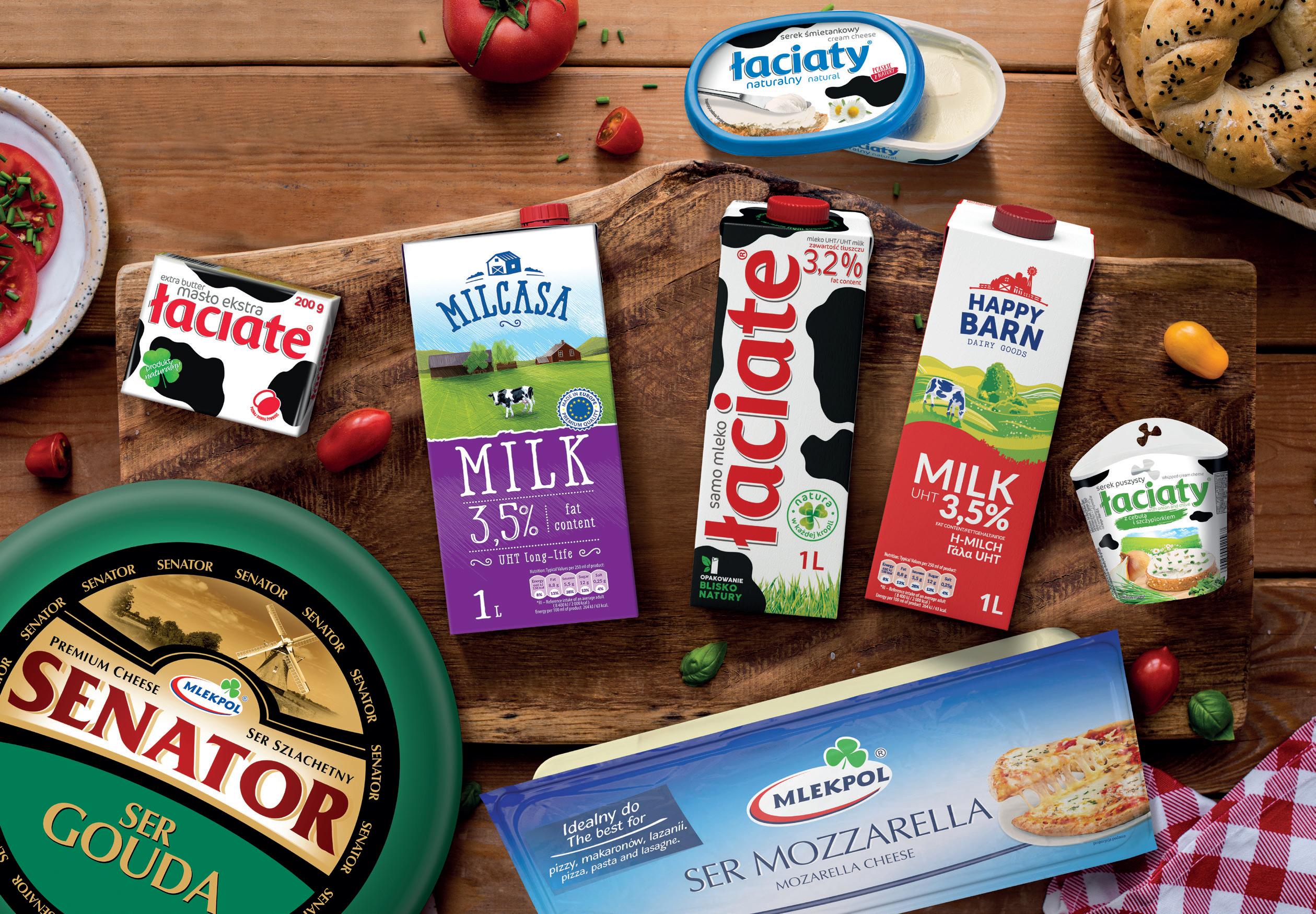

Above all, Modern Expo means store equipment supplied to shops in several dozen countries. Besides, you focus on generating value for customers of a completely different nature. Please tell us about your offer.
Thank you very much for starting our conversation from this very question. Indeed, we have been consistently building our position as a leading shopfitter for many years. Beginning from shelf systems, in which we have reached the level of perfection, through cooling solutions, to cash register counters, our offer is dedicated to all key segments of the market. However, we are a company that listens closely to its customers on the one hand, but not afraid to experiment and enter completely new areas of operation on the other hand. An excellent example of such a quick process was our introduction of parcel lockers. But the key, as you have said, is the issue of value generation. Value comes into life in very diverse dimensions. Over the last decade, we have created a group including, among other entities, companies involved in software and smart solutions for trade chains or retail space design, and we achieve excellent results. Lately, we have been increasingly developing our service potential. We have obviously noticed that the current situation in the retail sector is forcing chains to compete vigorously and to vie for the consumers’ loyalty and shopping basket. This makes them focus less on the operating part of the business. Therefore, we have proposed an offer we call “Peace of Mind”, a set of services relieving our customers from such activities as everyday quality maintenance of retail space, renovation of store equipment, or technical support. Thus, we are slowly closing the circle of value for trade chains.
To shed some light on the scope of your operations, please tell us which of your latest projects, both on the domestic market and abroad, have been the most interesting?
That is a big question. The period of the last few years has brought
us many projects of unique nature. In their original version, the parcel lockers I have already mentioned were a product created for Allegro; an enormous project encompassing not only supply of several thousand devices but their installation and software. The process was so complex that we created a separate organizational unit for the purpose of managing it. Besides, the success in this area has given us clear evidence that we have much to offer in the field of services. As of today, we have already produced approx. 15,000 machines for the Ukrainian Nova Post company. We are active on the Balkan market where we are a supplier for eMAG (an online store) operating in Bulgaria, Romania and Hungary. For the Castorama chain, we have created the first DIY-oriented machine of such a type. Within a short time, we have become a European leader in this segment.
For several years, we have been actively participating in the dynamic development of the Żabka chain, serving as a supplier of key items of equipment to new stores. This project strongly impacts the development of Modern Expo as well. Today, I can boldly say that the Convenience format is no secret to us. On the other hand, we very recently remodelled the Auchan hypermarket in Piaseczno, creating an excellent and eye-pleasing harmony of shelves, decorations and visual communication. Unique examples are legion. I think the most important fact is that our experiences and credentials are so diverse, and they always have a positive impact on the development of Modern Expo as an organization.
Many countries are currently facing growing costs, and savings are becoming crucial. In what areas can one generate savings at a trade outlet?
Let’s start from revitalization. The pressure of inflation and energy source costs are a great burden to the operation of stores. Chains have to look for optimization on the side of expenses. Today, we are able to
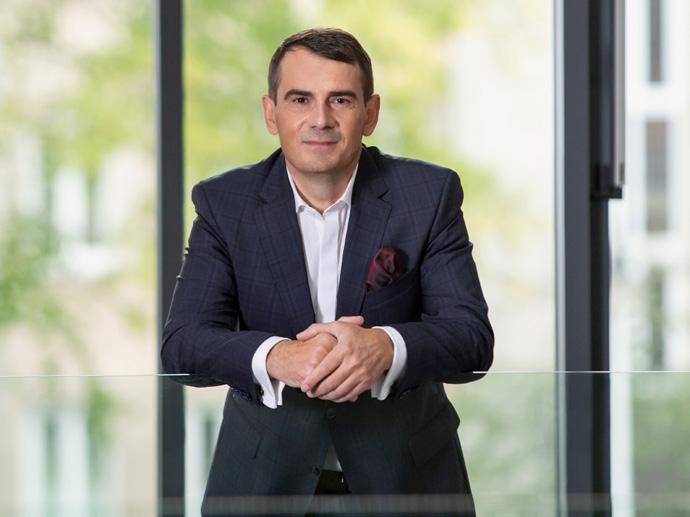
From shelves to smart solutions: Bogdan Łukasik, President of the Management Board reveals how MODERN EXPO is reshaping the global retail landscape and defining new standards.
remove old equipment from a store, refurbish it fully and deliver it back. Thus, you can realistically lower the investment costs by 30-40%. An obvious aspect is the broadly understood servicing of devices. This is a natural direction of development of services, ensuring certain savings. Another one is recycling of equipment that has ceased to fulfil its essential functions. We can also see fantastic potential in maintenance of the appropriate functioning of entire sales outlets, including monitoring of key performance indicators, as well as outsourcing of merchandising and coordination of promotional processes – an immensely interesting subject. And this is just a fraction of the services we can provide to our customers. We are open to the development of this business. We have performed market analyses in search for new business models and initiated this idea several years ago. We were inspired by similar companies from the US market where optimizing processes are immensely developed.
What are the global trends on the market of refrigerating appliances? How do Modern Expo devices fit in with those trends?
Before I move on to the trends, I would like to perform a brief positioning of our refrigerating assortment. From the viewpoint of store equipment, we started out with shelves. It was much later that refrigerating solutions appeared in our offer. Therefore, we are not among the pioneers of these products. Many of our competitors have been present on the market for as long as several decades. They have a well-established position and take advantage of the experience curve. What strategy have we taken to get a share of that pie? An excellent illustration of our approach is the global rivalry on the car rental market between Hertz and Avis. The former had always been a definite leader. In the 1960s, however, Avis made up for almost 20% of shares in relation to its rival over a relatively short time. All due to a famous campaign utilizing the slogan “When you’re only number 2, you try harder”. This is the best illustration of our idea. Entering the category with a product on a level similar to those offered by old players would be pointless. This is why we have focused outright on high-quality workmanship, use of state-of-the-art technologies and full compliance with trends. We try harder than others. This is true for energy efficiency, adaptation to shrinking retail spaces, ecology, or the option of smart control.
What energy consumption savings may exactly be achieved when implementing solutions from the Modern Expo offer?
If you need examples, here you are – Cooles SlimDeck PRO operates in the A class of energy efficiency, consuming 65% less energy than a classic refrigerated cabinet and as much as 85% less than an open one. Moreover, it uses propane (R290) as a refrigerant, which is not only efficient but friendly to the planet. Another example is the Quadros line of refrigerated counters. In this case, high energy efficiency is also combined with an ecologic refrigerant.
Energy saving – is there still any room for development? Can you, as Modern Expo, see more future opportunities for savings? Or maybe you have already been working on new solutions?
This is a complex issue, but I will try to shed some light. Innovation and quick improvements in technology are largely connected today with liquid compression systems and ammonia absorption systems. Manufac-
turers focus on R&D activities in order to improve the design and control the temperature of their products to gain competitive advantage. The growing need of control and monitoring of the environment is expected to provide the participants of the industry with broad possibilities for development in the foreseeable future. On the other hand, climate concerns related to high-GWP refrigerants, such as global warming and ozone depletion, encourage the invention of alternatives. The growing demand for technologies to handle the emissions of hazardous gases is prompting fitting products with advanced magnetic refrigeration systems. Such systems also improve the energy efficiency of refrigerating devices, thus minimizing the operating expenses. The systems are highly energy-efficient and may help save energy by as much as 30%. We, Modern Expo, keep our finger on the pulse. At our labs, works are going on in a direction perfectly in line with the worldwide trends.
On what markets does Modern Expo operate? Do you intend to expand to new areas?
So far, we have been present in 65 countries. On our home markets of Poland and Ukraine, we have a dominating position. On many others, just like the Balkan region, our role is very significant. Soon we will surely want to strengthen in Western Europe. We have been present there for several years and we have spectacular implementations behind us in Germany, France, or the UK, but appetite grows with eating. Besides, we try to develop in a sustainable way, so this is definitely a natural direction. Nevertheless, I will reveal some of my personal dreams revolving around the US market. It is not just about the size of that market but, above all, about the challenges it poses. Yes, being the main supplier and partner for Walmart is a grand goal.
What strategy of development does Modern Expo follow? Will you focus even more on services, or rather on new devices? What is Modern Expo’s key to success?
We wish to be a company that impacts retail on the market, or maybe shape it to an extent. We surely want to use it to help those who cooperate with us, to take advantage of opportunities presenting themselves. Our transformation for over 15 years has been enormous. We started out as a small trade company, then the production phase came and we learned it from scratch. Subsequent years brought us a complete store equipment offer, and ultimately, time came for parcel lockers. Today, we are developing our services very strongly, each of those steps came naturally and smoothly, in response to market expectations. In general, we are open, we test a lot, i.e. we invest a lot of resources into being ready for another opportunity to appear. We are waiting for the market to say this is the moment when it is ready to invest in artificial intelligence. We are capable of relatively quick diagnosis of trends and changes incoming on the market. The most important of all is our ability of quick transition into the implementation phase. Internally, we devote much time simultaneously to develop the competences of our teams. We implement new tools to support our everyday operating activities. The strength of Modern Expo is people and this gives me comfort when looking into the future. To sum up, and to refer once again to your first question, we base our strategy on maximizing the value for the customer.
Thank you
Monika Górka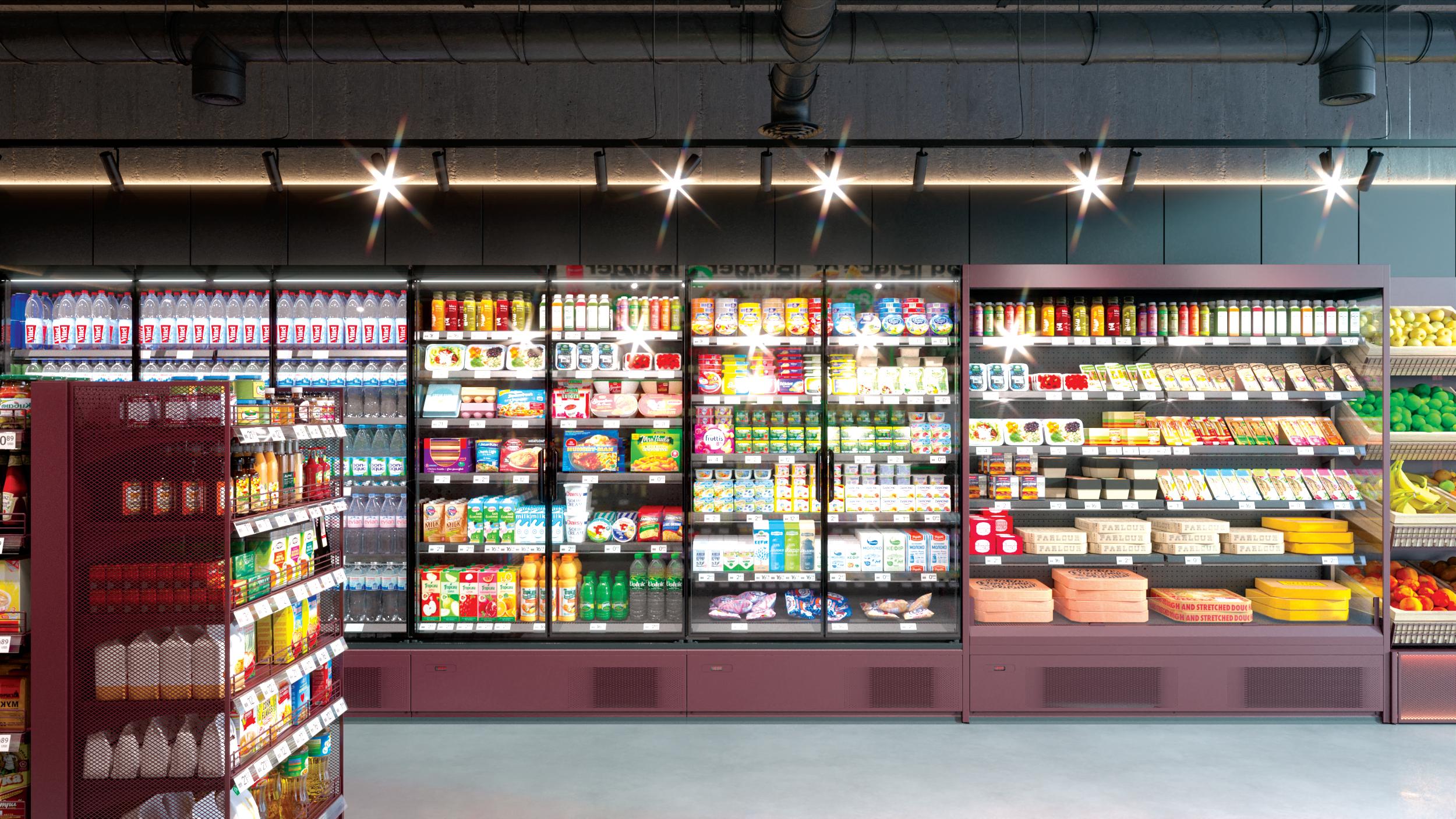

Innovativeness is a key area of operation on many markets, in logistics as well. What technologies and innovative solutions do you use?
We are able to find a solution for virtually every customer. It is not a problem for us to carry both frozen and fresh goods at the same time; whether it is 2 pallets of frozen fish or a whole truckload of fruit, we can deliver on time. Each time, we approach every order individually, adapting to the needs required by the contractor. An extensive fleet, storage facilities – it is mainly due to this that we can store, repackage and reload goods as well, while preserving the cold chain all the time. Our employees take care to satisfy the customer to the full extent and also to make proper use of our fleet and capabilities, such as double-chamber refrigerators enabling simultaneous transportation of fresh and frozen goods, or double-floored refrigerators for transportation of increased batches of goods, e.g. 66 pallets. The only limit is our imagination.
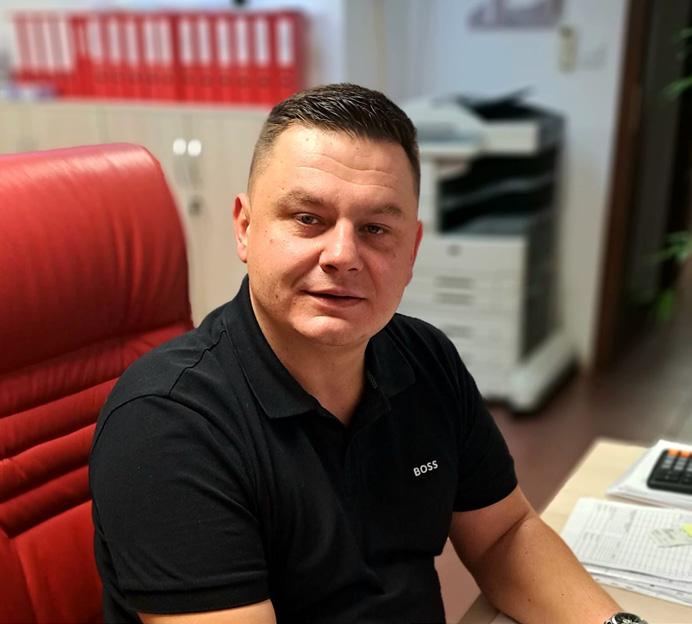
Logistic of the future - how has the logistics market changed over the recent years? What has become the priority in the services of this segment?
The logistics market is one of the most actively developing sectors of the economy. One can easily see new warehouses sprouting around the largest agglomerations. In view of opening up to new product searches, the demand for innovative logistics and transport solutions has increased. Currently, of great importance is flexibility in relation
to customers – services provided on the highest level, as well as consulting in the area of proper storage, warehousing, and transportation. A major role is played here by partnership in relations between partners – highlighting potential problems which might be encountered, as well as presenting ways to solve them. Appropriate personnel, numerous training, experience amassed over the years, all become an invaluable source to overcome difficulties posed by the requirements of a market expecting professional and reliable service.
What kind of services are your specialty? What makes your offer stand out?
The leitmotiv of our company is refrigerated transport – products that need to be carried under a controlled temperature; from foods to components to medical products. It is due to customers to whom we have been providing services for years that we are developing, expanding and improving our fleet every year. Currently, we own every semitrailer type available on the global market, as far as refrigerating equipment is concerned. Our fleet includes standard semitrailers, as well as double-floored ones, floral refrigerators, multi-chamber ones with partition walls to transport goods at different temperatures; some of them have lifts. Most of our units are semitrailers with room for 33/66 pallets, but we also have smaller ones, accommodating between 1 and 18 pallets, which allows us to distribute even to very hard-toreach places. Additionally, apart from our vehicle fleet, we have a cadre of perfectly trained personnel fully involved in customer assistance
and consulting. They oversee the entire process of transportation from point A to point B. This process is more than just pulling up to be loaded and reaching the unloading site; there is a whole range of relations to be fulfilled if the entire operation is to have a happy ending. Through commitment and passion, they prove their dedication to the company which is not just corporation but also the very friendly relations we have here. Everyone is involved in the works and development of the company, as evidenced by the expanding fleet and the new challenges posed by cooperating companies, which is proof of their confidence in us.
Is a logistics partner able to affect savings, or even increase profits, of manufacturers in the FMCG sector?
The term “logistics partner” may denote companies specializing in a given branch for many years – no company specializes in all branches of the sector of logistic services – which know all inner workings of the given area inside out. Learning, many times, from their own experiences and errors, they are able to nullify and prevent any future problems which might arise in cooperation with a new contractor and a long-time partner alike. Additionally, what matters is reliable and transparent cooperation, as well as explanation of cost-related details: what they result from and what consequences they entail.
Analysis of the given needs and expectations will minimize the risk of, first of all, failure, and secondly, potential losses due to inexperience and wrong decisions. There are tools allowing one to minimize the costs; it is a matter of finding them, implementing them and using them correctly, as well as conversations with experienced people willing to share their knowledge and expertise.
In view of the drastically growing prices or the unstable geopolitical situation, it is a challenge nowadays to maintain the continuity of business. How do you provide your contractors with a stable supply chain?
The lack of stability in the world, with regard to both prices and geopolitical problems, affects us all, and entrepreneurs indeed bear the brunt of it. However, this affects not just the logistics sector but all areas of the economy. First of all, the situation impacts the first link of the chain; an increase in transportation costs affects the increase of prices in the final effect. However, many conversations with our contractors allowed us to realize the problems we are all facing, hence full comprehension thereof and the will to cooperate further. Nowadays, as I have already mentioned, it is not only price that matters but flexibility, the will to cooperate, actions based on the “win to win” principle, consulting, availability, timeliness, as well as openness in solving problems and searching for solutions. Also with price increases, especially of fuel, our partners fully understand the lack of stability and our models of cooperation are elaborated in such a way as to avoid any disruptions to the supply chain at any moment.
How do you adapt your offer to the individual needs of contractors from different countries? Are you able to react to all variables? What stands out in your fleet ?
The answer is in the question – this is individual. It is the basis of action in the current times and situation, not just on the market of
logistics services but mainly based on the best possible relations with partners. We cooperate differently with each one of them, as each customer is different, with individual needs, requirements, standards, or norms. However, since we know our partners and constantly remain in touch with them, we can respond on an ongoing basis and monitor all variables appearing during the implementation of individual tasks, virtually in real time. As I have said before, we own every semitrailer type currently available on the market. We put much emphasis on proper servicing, appropriate equipment, regular maintenance, and systematic inspection of the correctness of operation of individual components. Of tremendous importance to us is the proper operation of our equipment, worth several hundred thousand euros and often used to transport goods exceeding its value; simultaneously, we are able to ensure the safety of the property entrusted to us and, above all, to the drivers. Additionally, our semitrailers are equipped with many more options of cargo securing than in other companies of a similar nature have. Our stock is no older than 3 years, we systematically replace it with newer equipment, allowing no shortcomings on our part. We use all innovative solutions available on the market, and we search for them ourselves, to strengthen our position even more, expand the offer, and increase our competitiveness.
How do the forwarding services you offer optimize the transport processes?
Above all, through using our own fleet, we know the real costs borne by transport companies, especially by forwarding ones. Based on our own example, we have experienced what most service-selling companies have only read about in industry magazines; we now have real costs we are able to document and present to our contractors. In addition to the numbers, immediately visible when the concept of optimization is concerned, one should not forget timeliness. Aware of the transported cargo, especially foods, we allow no delays. We adapt our cadre of drivers to perform the entire operation flawlessly. We know that the cargo loses quality with each delay, and thus the quality is reduced when it reaches the end recipient – and, in fact, we are such recipients too every day.
Our greatest benefit is customer satisfaction and orders for new transports, as well as new challenges being posed to us. This motivates us to act and develop even more dynamically.
What goals do you set for yourself for the years to come?
Development, development, development, and more development. Of course, as every entrepreneur, we have assumed a certain business plan we are implementing step by step. We are unable to foresee the geopolitical situation and the extent to which it would impact us, but we surely intend to significantly increase our vehicle fleet, to develop even more with regard to less-than-truckload transportation, as well as to expand the scope of storage services. We can see potential in each of these areas. Few companies are willing and able to develop in all of the mentioned areas, while we can see a future in them. We will surely be able to repeatedly prove our experience to the customers who work and will work with us.
Thank you
Monika GórkaThe TRANSAD company was established in 2006; ever since, we have met the requirements of our Customers to the greatest care and extent possible. With the experience we have gained over all those years in the TSL industry, we can say with full responsibility that we focus on quality and professionalism. For many years, we have worked for the effects that are now plain to see.
Currently, we are able to adapt to almost every Customer, offering top-quality services and an individual approach to needs and requirements.
We care for our fleet to be state-of-the-art all the time and to meet the highest standards. We complement and improve our team on an ongoing basis so they can always be fully flexible and self-contained in the fulfillment of the tasks they have been entrusted with. We can offer top-level cooling transport, adapting to individual requirements. Our offer includes specialist types of cooling semi-trailers, from standard ones to multi-temperature or double-floor semitrailers.
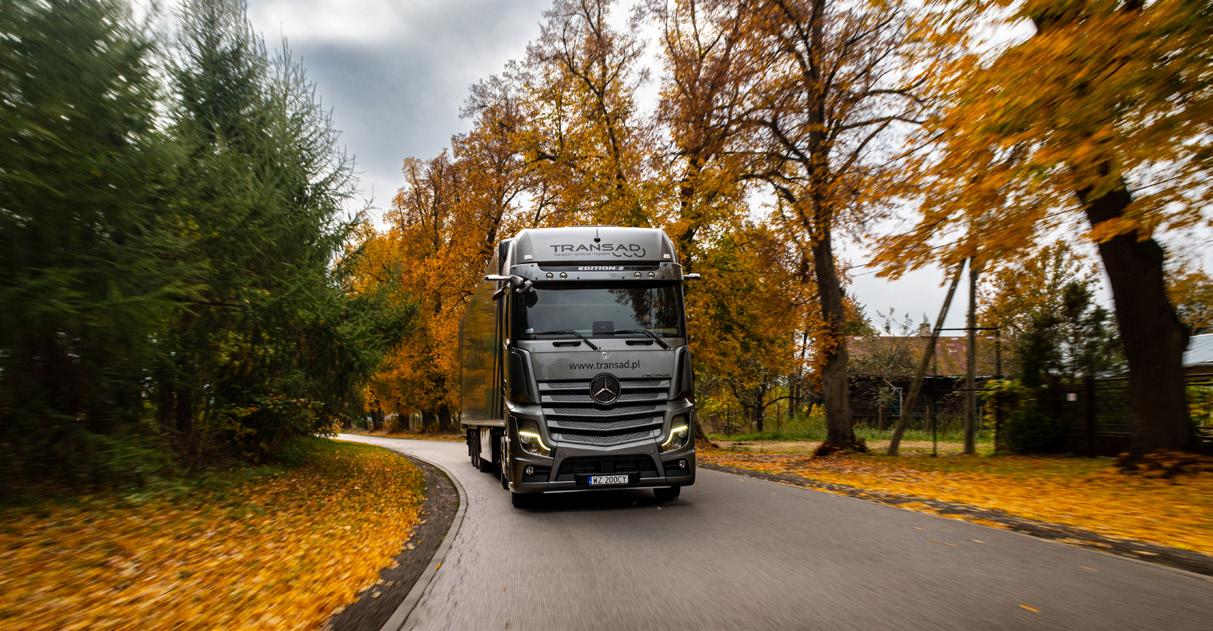
Since the inception of our operations, we have been setting new goals for ourselves, setting the bar higher and higher, to motivate ourselves for constant development and search
for new solutions. Closely watching the market and the realities set for us by our customers, we have started dynamic development of one of the transportation branches, namely, groupage transport. There are just a handful of companies which take on the challenge of organizing such special kinds of shipments, especially as far as part of the load at a controlled temperature are concerned.
Facing the prospects of a new challenge, we have decided to improve the tools we have been working with so far. At a very quick rate, we have adapted storage areas for handling and confectioning of products, with simultaneous continued preservation of the cold chain that will in no way affect the product quality. Watching the world, our competitors, and the experience of our employees, we have balanced the entire system to adapt and select the best
options to fully satisfy the expectations of our customers. A modern warehouse furnished with ramps, insulated sleeves, specialist loading equipment for all kinds of goods, as well as different forms of cargo protection – from standard locking rods to anti-slip mats to heatshrink films, edge protectors, protective liners. Each time when a new way to secure transported materials appears, we strive to test it with our own fleet in order to introduce it into a wider circulation and to propose additional solutions to our customers.
Although we set the bars high for ourselves with regard to development, our contractors motivate us additionally, by searching for solutions together and with their trust in a company providing the highest value available on the market. We never shy away from problems or challenges; quite the opposite, we always
strive to seek solutions together. Conducting a “win-win” corporate policy from the very beginning, we have never been oriented exclusively to our own good or the satisfaction of our needs. It is worth bending your everyday principles in order to work for the sake of common satisfaction. With our search for solutions, we broaden our knowledge and experience, to share with our customers and to be even more competitive.
Today, it is not hard to buy a car, to hire a driver, to take up an order and to drive ahead; yet there are few “ambitious” companies, setting themselves new challenges and willing to continue their development. In our small employee team, there is surely no lack of commitment or desire for development, both personal and of the entire company. We are aware that we act for the sake of a common future. Both in contact with customers and between each other, we focus on friendly, almost family-like relations. Time spent together, not only within the limits of professional contact, helps us strengthen the ties, consolidate the attachment, stability and conviction, and boost the confidence that nothing is impossible and the sky is the limit.
We do not give in to principles prevailing at corporations where every person becomes a robot, ceasing to be a human being, empathic and helpful. With our openness, devotion and intentions, we largely focus on relations. The relations with our customers have been developed for years; at some point, the business vs. business limits blur and we transcend to the level of friends, which helps us deepen the mutual trust. When we are able to count
on each other in every situation, the customer is certain we will always provide advice and a common solution to a problem. We also often participate in problems as consultants, even if we have not been involved in any of the logistic components. Such joint action strengthens the ties even tighter and allows us to spread our wings.

We can boast a list of customers who have cooperated with us for many years, have never been disappointed with us and wish to continue the cooperation, involving us in new projects and recommending our services to their own contractors. We are surely open to new experiences and further development in the transport and logistic industry.
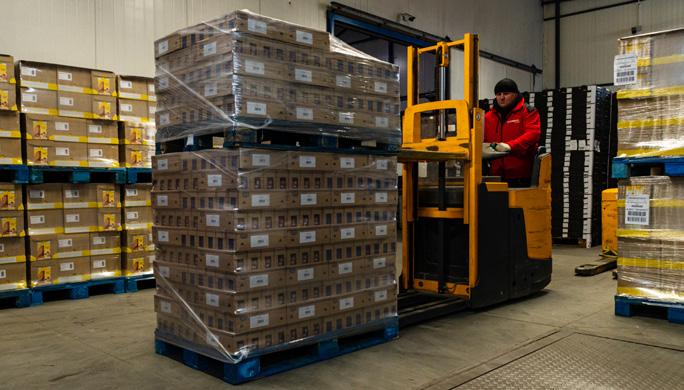
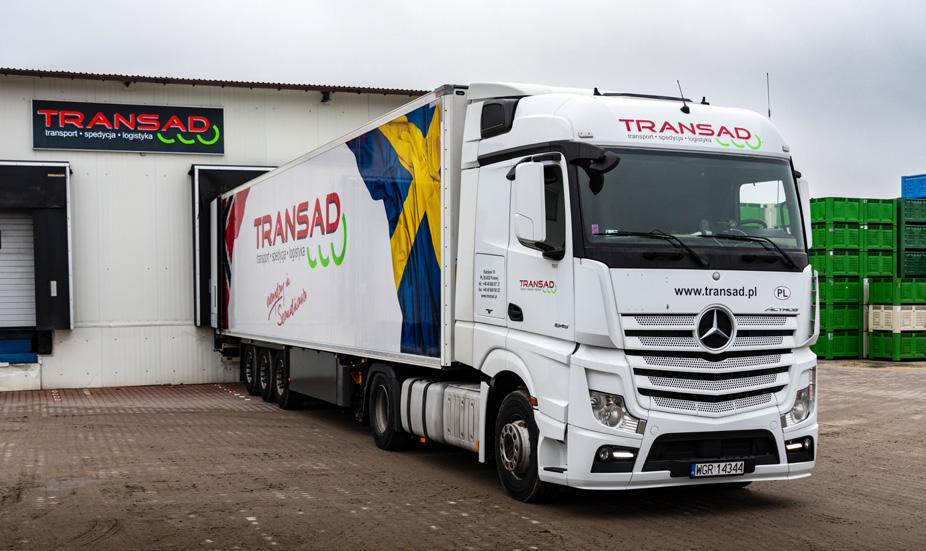
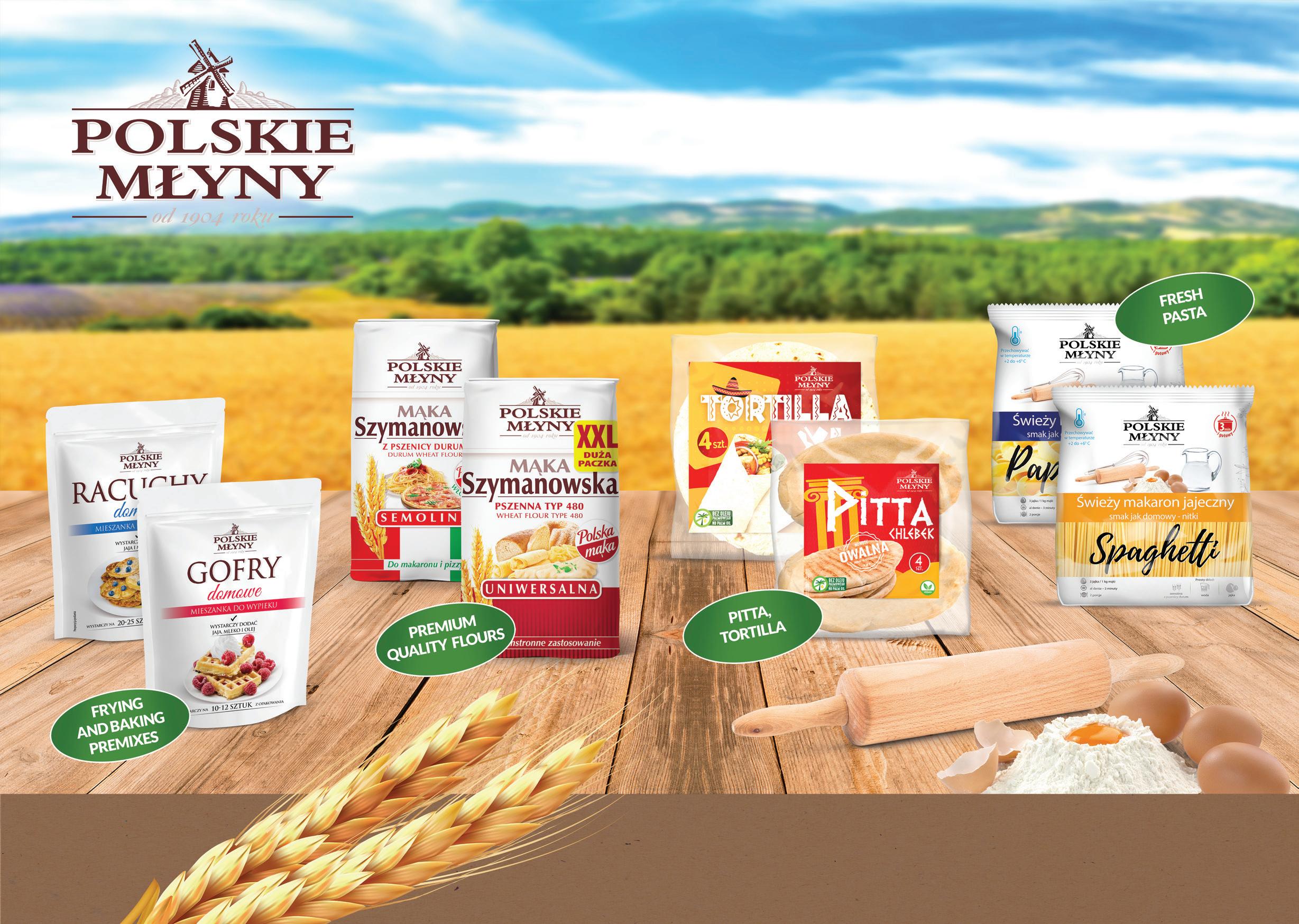

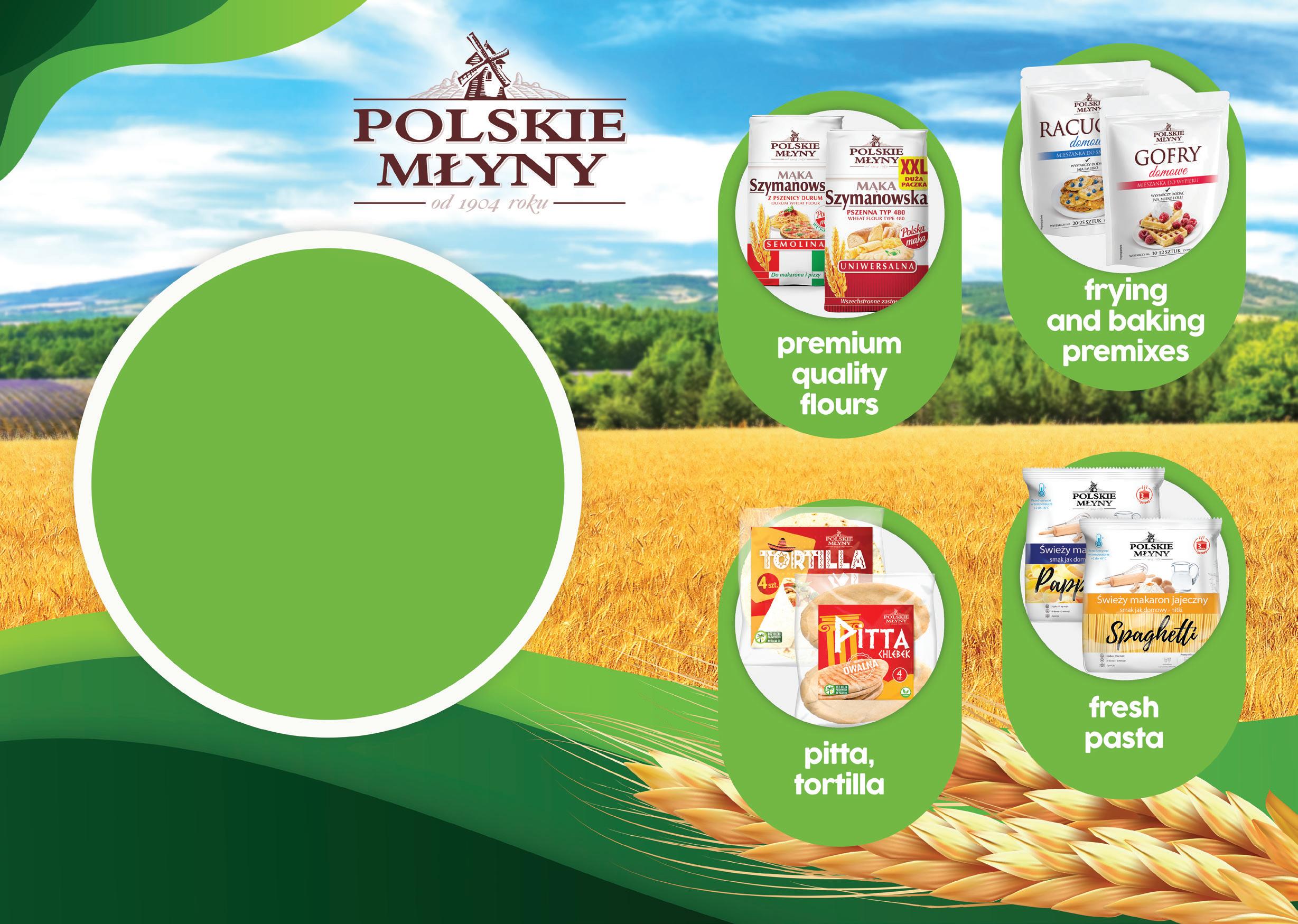


A Polish family company on foreign markets – what is the key to success?
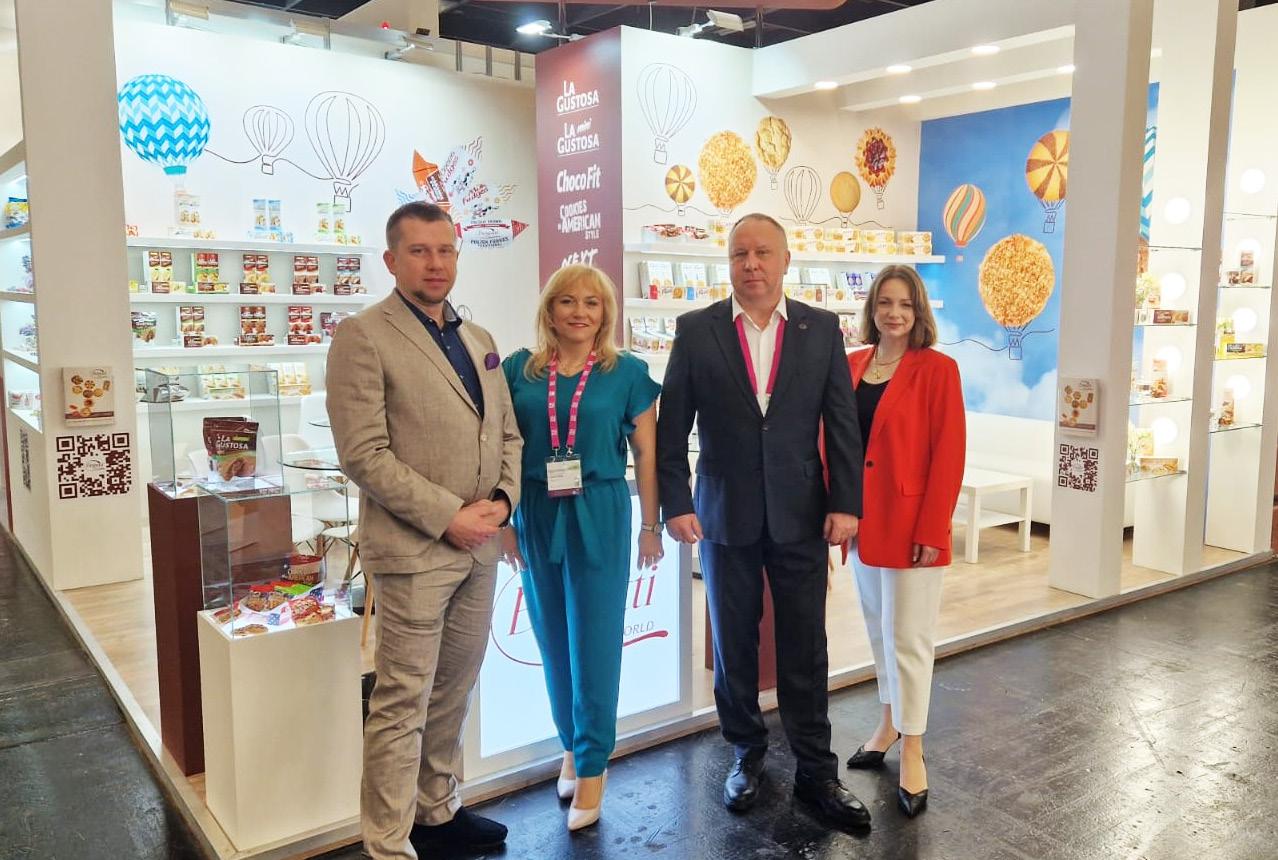
KP: A family company is characterized by a lack of a formal structure, enabling a flexible approach to the customer and quick action. We are able to adapt to the individual expectations of our partners. The decision-making process is brief and simple.
High-quality products, a wide offer and a search for new options are the essential assumptions of our company. They serve as the foundation for further development. The Bogutti offer contains crunchy cookies, cookies with cream or natural fruit filling, sugar-free cookies, cookies with sugar-free chocolate, without palm oil, as well as fudge in many flavours, from milk, butter and cocoa to more elaborate ones, such as coffee, honey, strawberry, spice, peppermint, lavender. We are open to new products.
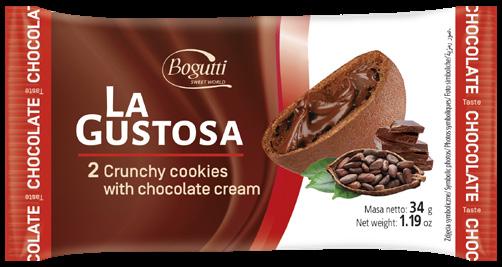
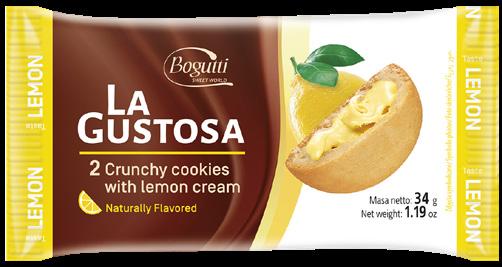
KP: Confectionery is a very large category generating an enormous turnover. Customers are fond of confectionery and it will surely find its way to shopping carts. It is consumed on a mass scale by all groups of people – children, youth and adults. This is surely not a product group which consumers will easily give up. Some savings are possible, as are changes of habits, but not resignation.
KP: Krówka fudge is a typical Polish product and it is recognized as such by customers worldwide. A very strong association between the product and country of origin has been built. Fudge from other countries is present on the market but does not comprise a large share in the market. Customers look for “Made in Poland” products. Being very sweet, fudge does not spark an interest everywhere. There are regions, particularly the Middle Eastern countries, where this Polish delicacy enjoys enormous popularity and customers cannot imagine functioning without traditional Polish milk fudge.
An interview with Karol Pilaciński – Export Director, and Edyta Pleban – Export Manager at Bogutti.EP: There are as many tastes as people – this is the simplest way to describe the development of the cookies category. The domestic market is largely comprised by our traditional tastes and cookie types, such as homemade cookies or cookies with fruit filling. Nevertheless, Poland is a market affected by Western trends as well. Several years ago, the American-type cookie with pieces of chocolate appeared on our market and has been enjoying much popularity until the present day. Of course, it has undergone many innovations: from an ordinary cookie with chocolate, we have arrived at sugar-free cookies with pieces of fruit or with nuts. This is exactly what product development is about. Foreign trends and expectations depend on the region. A trend for single-packed cookies is clearly noticeable in the Far East, while, on the other hand, family packages of 400-600 g are popular in the Middle East and in Eastern Europe. The market situation impacts consumer preferences.
KP: Bogutti has been present on the market for more than 10 years and since the beginning, it has focused on the development of export sales. Every year has brought new success – opening of new markets to our products, as well as increased turnover. Today, our products can be found in approx. 50 countries in all continents – from Chile to Japan.
Please tell our readers about your export offer. What makes your products stand out from their competition on global markets?
KP: Development of export sales has been the assumption of the company owners. The Bogutti offer was not directed to a Polish customer but to foreign consumers. Everything started from Italian-style filled cookies under the La Gustosa brand. Currently, our offer includes differ-
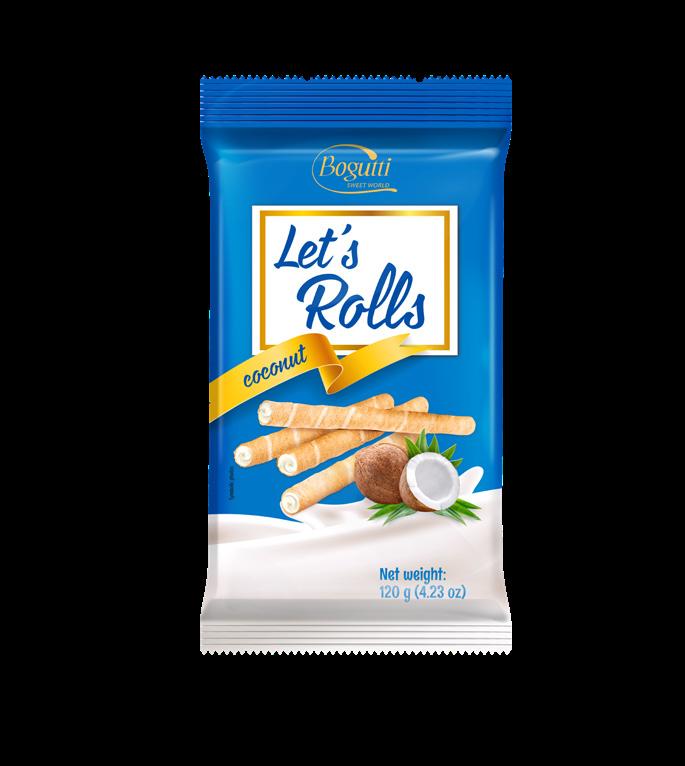
In our offer, we strive to combine high product quality with an afford able price, allowing us to reach a broad group of consumers.
Do the consumers on the confectionery market look for innovation, new products, interesting taste sensations, or do they stay with classics?
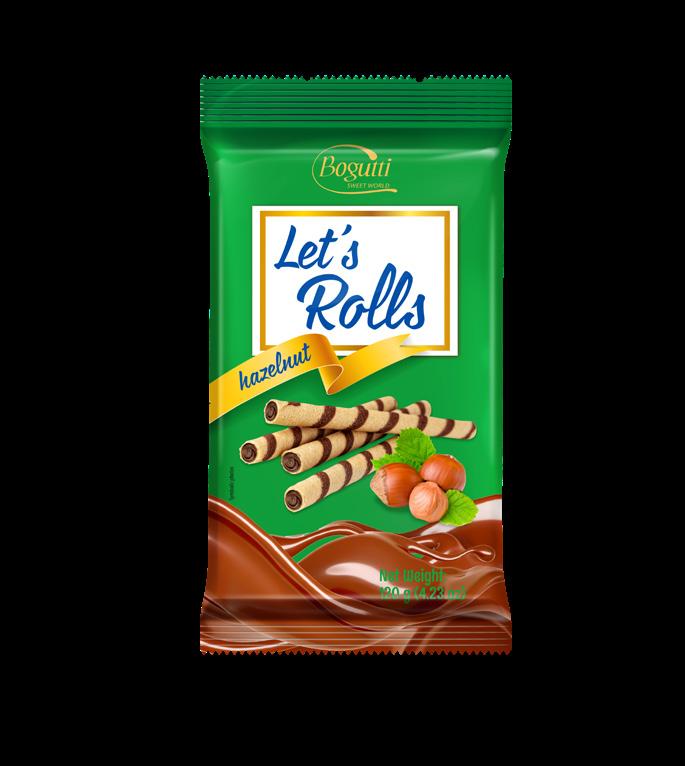
KP: Currently, we can see both trends intermingle. There are more and more products compliant with the latest nutrition or lifestyle trends. Popular are sugar-free products, protein products, those without palm oil or different additives. On the other hand, traditional brands and tastes are holding fast. Such products have an established market position and a broad group of consumers. These are „must have” products with which no producer can afford to resign.
How do you assess your participation in international fairs and where can you be met in the future?
EP: Fairs give an opportunity to meet in an international environment. This means an enormous diversity of cultures and tastes which broaden our horizons, allowing us to exchange experiences. International fairs provide an opportunity to meet customers and to learn about new trends. They also allow us to watch our competitors, thus letting us adapt flexibly to the market’s requirements and expectations. This is how creative ideas, new product concepts and new investments are born.
In 2023/2024, we will participate in the Anuga and ISM fairs in Cologne, ISM Middle East and Gulfood in Dubai, Food Expo in Greece, Anufood in India, as well as PLMA in Amsterdam and SIAL in Paris.
Thank you
Monika Górka



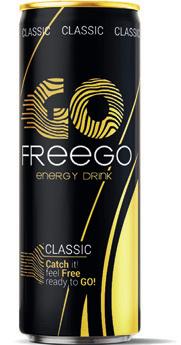


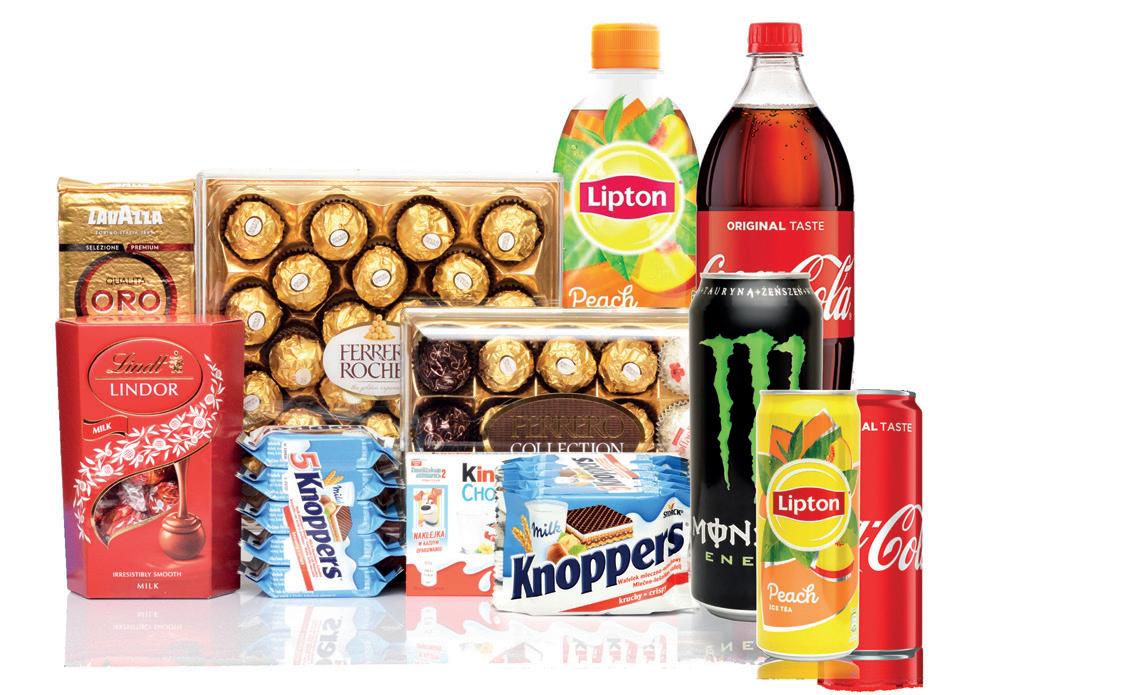
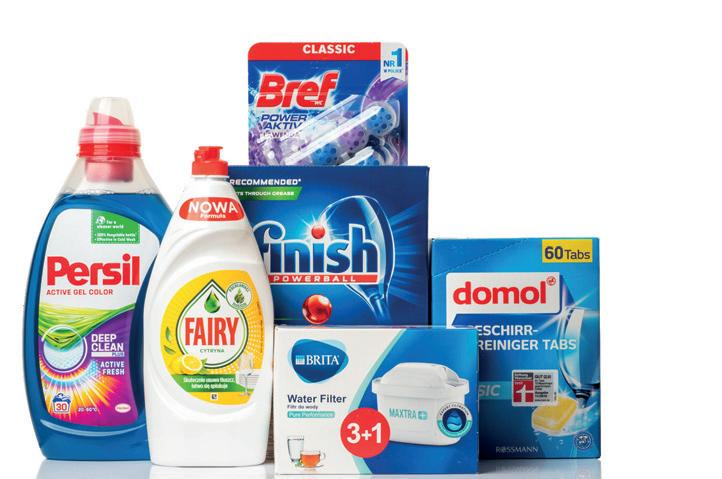 FMCG
FMCG
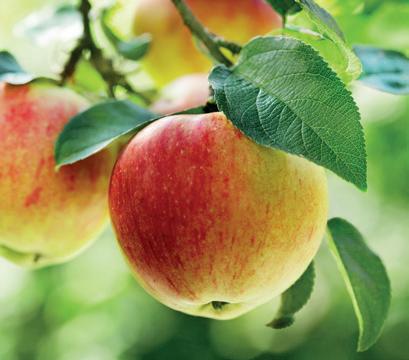
For over 30 years we are one of the leaders of Polish exporters. As a part of Ewa Bis Group, we have been supplying top quality Polish food to over 70 countries around the world.
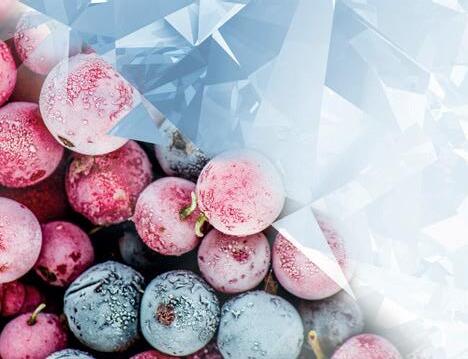
We sell our products across the EU, Africa, Asia and North America. We have been cooperating with large international manufacturers, distributors, retail chains, and smaller local stores and wholesalers. Our main purpose is to satisfy the needs, requirements and expectations of our customers concerning quality and food safety of offered products.

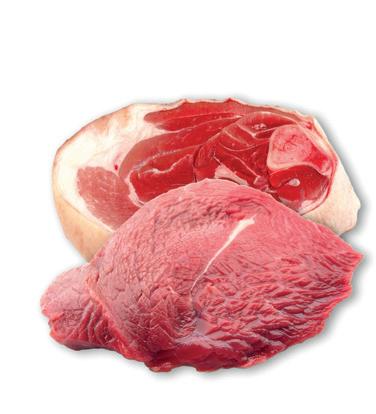

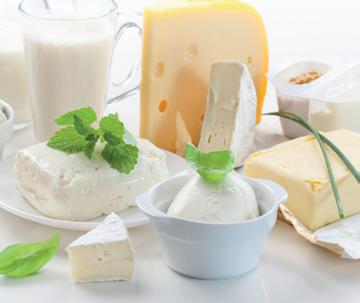
Which trends on the food/meat market will be crucial in the years to come?
The years to come will surely be a time for the development of the trends we can already observe for some time. Above all, I mean the numeric development of the convenience category, as well as the further change of the health-promoting attitude of consumers. Customers are already increasingly inclined today to reach for cold cuts with a short composition and lower calorific value. We, as a part of the Cedrob group of companies, a leading producer of poultry meat, focus predominantly on poultry cold cuts. Besides, all the global studies show that poultry consumption is on the rise, along with a simultaneous drop in pork consumption. Our strategy responds to these macrotrends, both on the domestic market and on the export ones.
Please tell us about your major achievements/export results in the recent years.
Recently, we have mainly been focused on associated countries, i.e. the European Union, as well as on closer directions, such as the UK and Ukraine. We are proud that both traditional cold cut products, emblematic for Polish cuisine, and modern ones, such as kabanos sausage snacks, are available in several dozen countries, both under our own commercial brands and under private labels of our customers.
The use of shock freezing has also allowed us to optimize the supply chain and thus to enter the British or French market with an offer of ready meals.

Hubert Owczarek, Export Director at Cedrob Foods, dives into the future of the food industry, the rise of health-conscious choices, and Poland’s key role in global poultry production. From eco-conscious packaging to the nuances of global meat trends CEDROB paints a comprehensive picture of the culinary future.
What is the potential – including in the export aspect – of the market of prepared dishes?
Prepared dishes, just beside frankfurters, serve as the basis of export activities today, since they are similar in most countries of the world and they respond to a key trend connected with providing consumers with ready products that do not require a large amount of time to prepare. Convenience store chains developing at an increasing pace, from 7-Eleven to Polish Żabka, only confirm that consumers expect boxed solutions addressing all opportunities for consumption.
The Polish poultry sector – development and prospects.
Poland is one of the most important players in the segment of poultry production worldwide. Therefore, it is natural that we gain more and more markets, including with processed products. As a part of the Cedrob group, one of Europe’s largest poultry suppliers, we have an excellent, safe infrastructure allowing us to build an increasingly strong portfolio of poultry cold cuts and prepared chicken dishes.
Polish products = high quality. Please tell us about the development of your brands in exports.
For many years, Polish producers have indeed developed a very positive image, associated with the high quality of their cold cuts and meat products. Nevertheless, Polish commercial brands are still known on the domestic market above all. This is surely a crucial challenge to Polish exporters. Our export portfolio is partially implemented
through our commercial brands – in this case, the most important one is Duda – but a considerable share is comprised by private labels of our customers. In the years to come, we will develop these two branches of export activities simultaneously.
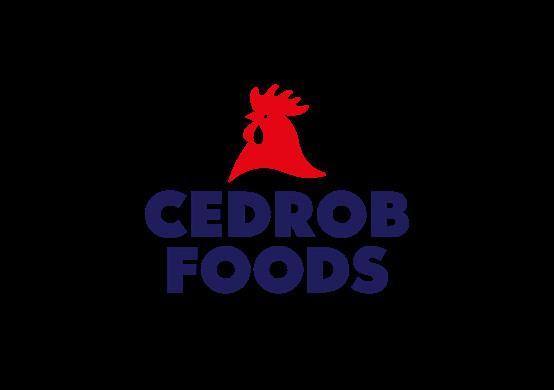
Are the preferences and expectations of European consumers concerning the meat offer similar to the Polish ones? What do they appreciate Polish meat products for?
Polish cold cuts stand out among other European countries with their high quality. The Polish cold cut offer is surely more diversified and varied than, for instance, Spanish of Italian cold cuts which have a more unified portfolio. The positive evaluation of Polish cold cuts is affected by the high-quality raw materials of Polish origin, both poultry and pork, as well as high-quality processing – on a mass scale but supported by craft experience.
What are the most serious challenges in the export of meat products?
Today, the greatest challenge seems to be increasing the share of Polish cold cuts in the most generic cold cut segments comprising the common denominator of most export countries. Another major challenge is keeping up with the global price competitiveness which is often difficult to achieve in view of the significant differences between production standards in and outside the EU. A task no less challenging is building the general brand of Polish food, connected with a package of associations that would translate into high sales.
What innovations in the packaging category are expected by a modern European consumer?
The need for innovation in the category of packaging essentially boils down to the functions of usefulness and convenience for customers. This includes “open/close” packages, or those enabling longer preservation of freshness, including large packages high in weight. There is also a strong trend for bio-packaging and the reduction of
plastics in package production. We successfully apply such solutions, e.g. in the case of convenience dishes – using an eco-tray made of recycled and recyclable materials.
Which are your most prospective foreign markets?
Apart from our further, consistent development in the European Union, including those in areas that require products certified as halal, both North African and Persian Gulf countries are important markets to us. Looking further: in view of the growing GDP in African countries, the entire continent requires attention and understanding of consumer needs that are changing there as well. Of course, from the viewpoint of demographics, Asian markets are a very important part of strategic thinking regarding exports.
How would you rate your participation in fairs? What events do you plan to attend this season?
Each year, we take part in several dozen industry events, both as participants and as exhibitors, trying to use this opportunity not only to build our commercial contacts but to understand the specific nature of local markets, in order to develop specialized offers responding to the needs of the given countries. Among the most important events, we can name: Anuga 2023, Speciality & Fine Food Fair 2023, Dibevo Trade Fair 2023, PLMA 2024, Food Expo Greece 2024, SIAL 2024, or Alimentaria Barcelona 2024.
Thank you
Monika GórkaLooking further: in view of the growing GDP in African countries, the entire continent requires attention and understanding of consumer needs that are changing there.

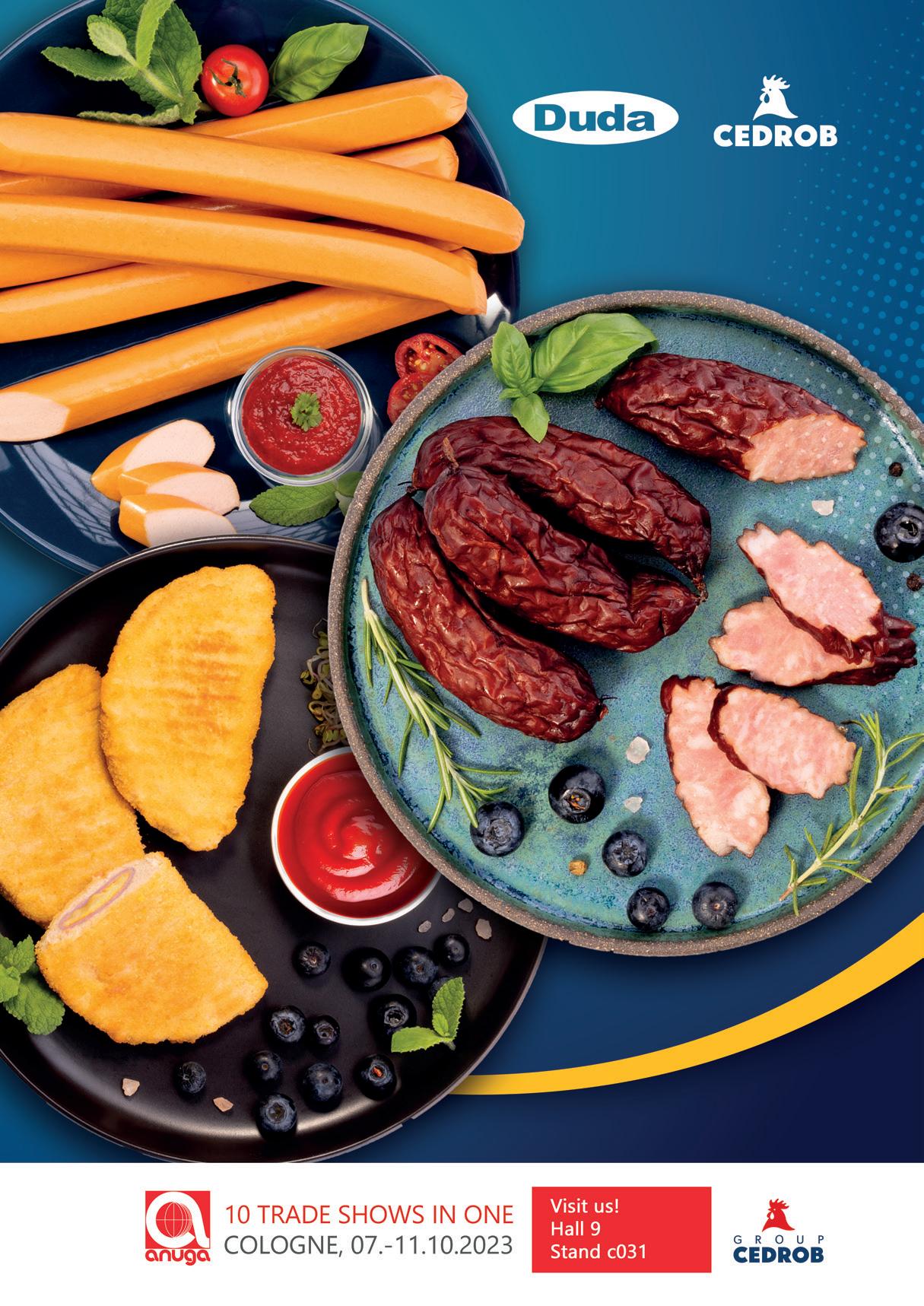
What is the international position of the Polish poultry sector?
Poland is counted among the global leaders in the production of this kind of meat, recording an everyday growth in sales, both at home and abroad. Poultry production in Poland in 2022 (at plants employing 50 and more people) exceeded 2.9 million tons, of which, more than 59% was exported. The total poultry meat production in Poland in 2022 exceeded 3.2 million tons.
Polish poultry meat and its preparations enjoy much recognition on the demanding European market to which most Polish poultry is directed. The main importers of Polish poultry are invariably Germany, the Netherlands, and France. Simultaneously, Poland is expanding its poultry exports to third countries, such as the UK, Ukraine, the Congo, Ghana, and Liberia.
What is the reason for the growth of poultry meat production in Poland, which has been observed for several years?
Polish poultry is appreciated worldwide due to its high quality and price attractiveness. Food safety issues are not insignificant either. Our success also stems from reasonable investment by domestic companies in the construction of production plants that are the most modern in Europe and globally, guaranteeing production of top-quality goods.
The growing interest of foreign contractors is also an effect of broad promotional actions which have been conducted on global markets for many years by the National Poultry Council – Chamber of Commerce.
The greatest threat faced now, not only by the Polish poultry meat sector but, more broadly, by the EU livestock and meat sector, is a widespread wave of food disinformation in the public space. An increasing number of ambiguities, myths, half-truths or even lies concerning animal production appears in the press, on television, on the internet and in social media. To counteract this, representatives of industry organizations have decided to establish a coalition and signed a “Joint declaration of Polish agri-food organizations, food producers and other interested entities for counteraction to food disinformation and food-related fake news”.
Since the liberalization of trade with Ukraine, the Polish and Community poultry sectors are also facing an influx of cheap poultry meat from Ukraine on an unprecedentedly large scale. Poultry producers understand
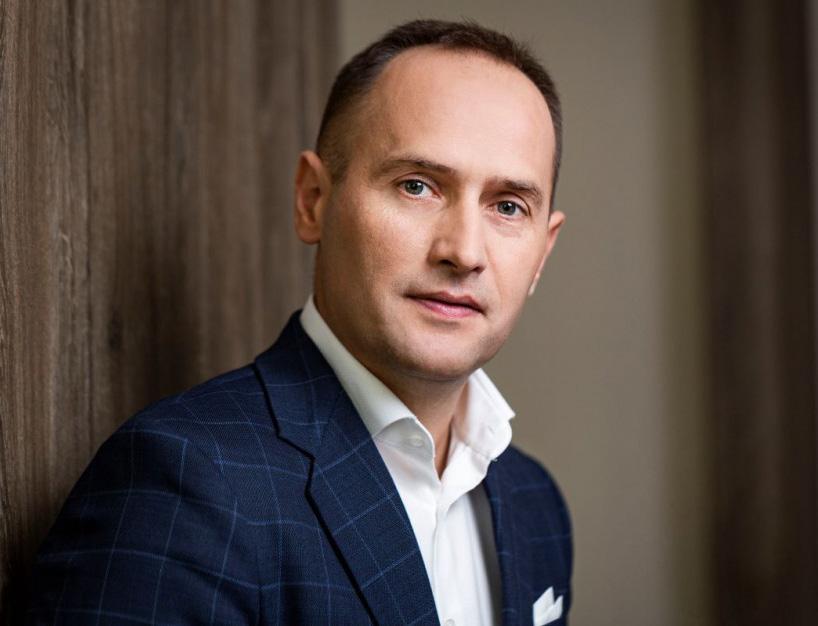
the principles of market competition, however, the condition is that the Ukrainian party should undertake to ensure quality and welfare standards equivalent to those binding in the EU. The same is true for the growing imports of poultry meat from other directions, such as Brazil.
Another major problem is the instability on the markets of animal feed and energy. We realize that this situation is impacted by factors beyond our direct control, yet it makes production planning very difficult.
What about the great EU reform known as the European Green Deal?
Since the presentation of the “Field to Table” strategy in 2020, organizations associating farmers and processors have been actively participating in the amendment process of EU regulations concerning animal welfare. Nobody negates the need to introduce changes. However, we strongly assert that the process of transformation towards a sustainable production model has to rest on three pillars: environmental, social, and economic. The latest scientific opinions of the European Food Safety Authority (EFSA) on broiler welfare are only based on one pillar, which is an unacceptable manipulation.
Meeting the radical recommendations on application of maximum stocking density and restriction of the growth pace of broilers will cause a 70% reduction of poultry meat production in the European Union, whereas the remaining 30% would be produced at prices so high that only a small portion of the society would be able to afford it. As a result, we can expect drastic increase of imports from countries where the production conditions clearly differ from the stringent EU standards.
Will Poland remain the leader of poultry exports to third countries?
I think it will. A robust base of poultry farming sector and the high competitiveness of processing plants, combined with extensive informational and promotional activities, should help us maintain the leading position. Of course, like in any business, there are things that just cannot be foreseen. In our case, these are infectious poultry diseases, such as the avian flu which has already caused great losses in many countries. I believe the ongoing discussion concerning introduction of avian flu vaccines, as well as further investments in state-of-the-art global solutions, elevating the biosecurity level even higher, will allow us to mitigate this risk.
Thank you
Monika Górka An interview with Dariusz Goszczyński, the President of the National Poultry Council –Chamber of Commerce (KRD – IG).


















































Can traditional craft be combined with innovative production? How has the nature of the Wielkopolski Indyk company changed over the 56 years of your presence on the market?
Our company serves as an example that traditional craft can be combined with innovative production. However, I will add at the start that we are a large, modern company with an outreach going farther than the domestic market. We are exceptional experts in the area of turkey meat – a high-quality meat means high quality product. Actually, we have been drawing on tradition for 56 years, preserving the craft-like nature of our products, while also using modern meat production and packing technologies. Our company is located in the heart of Greater Poland, not far from the Greater-Polish National Park, away from noise and pollution. We have the potential, knowledge and unique experience built for decades. Over all those years, the company has been built consistently, step by step. Today, our enterprise rests on 3 solid pillars:
• production potential – our team, technology and infrastructure;
• strong orientation to ecology – sustainable development, aspiration at energy independence;
• consistent quality management – full production integration, we follow the “farm to fork” rule.
Can turkey meat products compete with other meats? Or is it still underrated food?
Definitely, YES, it can! Not only are turkey meat products able to compete but they do so with increasing strength.
Grzegorz Remigiusz Jekel,Chief Operating Officer, Wielkopolski Indyk and Chief Executive Officer, Grupa Producentów Drobiu, delves into the blend of tradition and innovation over 56 years, showcasing how turkey meat is staking its claim in the modern market.

Turkey meat is very valuable to our diet with its high content of easily digestible protein and low content of saturated fats. In dietary rankings, it is rated higher than other meats, including the popular chicken meat.
Unfortunately, not everyone knows about its advantages and how to prepare it skillfully at home. We have accumulated this knowledge over the years and we are willing to share it. This is why we focus on the development of product lines precisely adapted to the modern needs of our consumers: “Śniadaniowe”, “Specjały Indycze”, “Wolno Gotowane” – a range of meats prepared using the sous vide method, as well as convenience products – coated goods enjoying huge popularity.
Our product lines focus on the unique advantages of turkey and support trends related to healthier nutrition.
How do consumer trends affect turkey consumption?
Among many trends, there is one related to healthy nutrition, which affects us significantly and is increasingly important, especially in the context of meat consumption – “Less meat preparations but healthier and with higher quality”, and turkey meat is simply healthier. We can see this in the increased demand from our customers looking for such solutions on the domestic and foreign market. We believe this is due to education and the food culture, which is steadily growing, especially on developed European markets, which is where we see the main source of our growth.
We believe that, in spite of the global geopolitical situation, such factors as quality, unique product characteristics, as well as the producers’ image and – important but underrated – nutrition fashions, still remain important.
We believe the factors with an upward trend include:
• Fashion connected with preference for highly specialized producers respecting tradition and best practices of food production, and possibly the least arduous to the environment. Our company is surely one of them.
• Product characteristics, where full transparency of raw material origin, production process, product pureness and quality is expected. Our key value is the “Farm to fork” principle – for years, we have cared for full quality control at all stages of the development process of our products.
• Care for delivery of products exactly as expected by the market and in the expected form – safe, economic, quality and convenience-oriented.
What comprises high quality? What raw materials do you use and what certificates are held by Wielkopolski Indyk?
Wielkopolski Indyk is a company integrated in the farm to fork chain. This is one of the key values of the company and the real value to our customers, both business ones and consumers of our cured meats. One can say we are a complete company. We have a large area of land for growing high-class cereals for feed production, our own feed mixing plant (established as early as the 1970s and modernized many times), numerous turkey farms, a slaughterhouse and a modern processing plant. This is a result of many years of consistency and a well-thought-out company development strategy without which we would have never achieved such a model. For many years, we have ensured full quality control of the development process of our products. Currently, this process is fully in our hands. The quality and safety at each stage of production takes on a new meaning in modern times.
Moreover, the quality of our products has been appreciated by the best and most restrictive food safety organizations: HACCP, BRC, IFS, as well as with a HALAL certificate.
How does the offer of Wielkopolski Indyk stand out? What business model have you adopted while preparing your portfolio?
For many years, the company had been known on the market as a supplier of turkey meat. For some time, however, we have significantly
broadened the scope of our operations by production of turkey cured meats and preparations. This is what we would like to focus on in the nearest future.
Therefore, we decided last year to introduce our new “Wielkopolski Indyk” producer brand, comprising new product lines, precisely fitting the current nutrition and economic trends.
We have focused on a selected product portfolio:
• “Specjały Indycze” (Turkey Specialties) – a line of unique cured meats, such as bacon, pastrami, or a selection of salamis – all made of turkey meat;
• “Wolno Gotowane” (Slowly Cooked) – a selection of wellknown meats prepared using the sous vide method, juicy, fragrant and, of course, made of turkey meat;
• convenience products – frozen and cooled; a selection of coated products – popular strips, nuggets and similar goods.
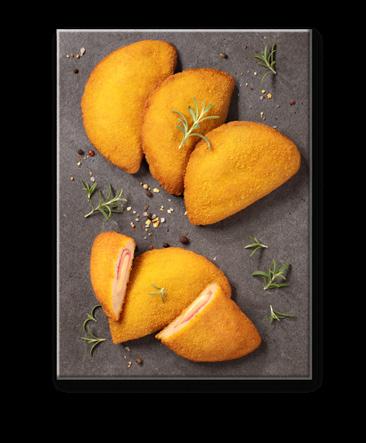
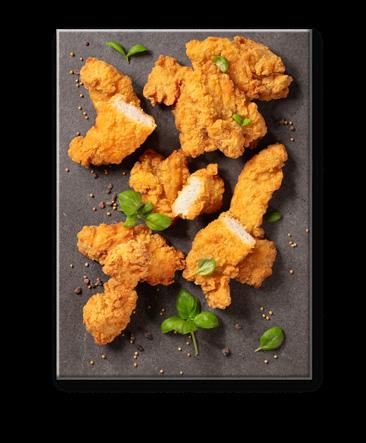
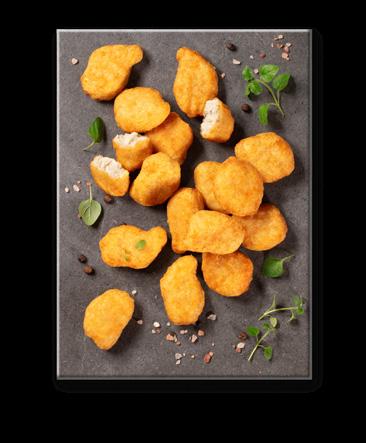
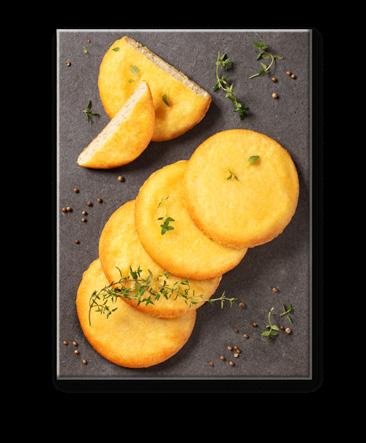
For years, we have cooperated with the largest trade chains in Poland, which are the main recipients of our products and services.
We have a modern, efficient processing plant equipped with lines for production of convenience and sous vide, maturing products, pasteurized cured meats, as well as frozen products. Furthermore, our machinery enables us to pack our goods in a vacuum and in a protective atmosphere (in a wide range of packaging types strictly adapted to the market requirements).
To put it shortly, we have the proper potential to service the most demanding orders, including in the segment of private labels.
How does your export activity look like? On which markets can your products be found and does the offer differ depending on the country?
As I have mentioned before, we are one of the largest Polish companies specialized in turkey meat and its preparations. We have the appropriate potential and an appetite for more active acquisition on European markets and beyond. We are already present in most European countries and, by holding HALAL certificates – in selected Arabic countries as well.
We have been cooperating for years with the largest trade and distribution chains in Poland and Europe. Our values are QUALITY
(“Farm to fork”), SPECIALIZATION (turkey meat), and, above all, FLEXIBILITY. We have a production potential, know-how built over the years, and we share it, providing products with specifications expected by our customers.
Thus, one can say our offer is unique for different export markets – we offer turkey meat and its preparations under private labels according to specifications adapted to the expectations of our customers.
New technologies enable optimization of production, but also impact sustainable development. What actions do you take for the sake of the environment?
One of our priorities is reduction of the environmental impact of our operations and achievement of energy independence. Currently, 50% of our electric power comes from our own biogas installations and photovoltaic panels. Additionally, in our production processes, we use 60% of recovery heat from the biogas and freezing installation. In the nearest future, we will aim at meeting the zero-emission requirements, which means 100% of our demand for heat and electric power will come from renewable sources. This will help us partially address the growing costs of energy, while simultaneously contribute even more to ecology. We have a wastewater treatment facility of our own, meeting high environmental standards.
In what direction will you develop your export operations? New markets, or maybe an expanded product offer?
As I have already said: we own a modern and efficient processing plant with production lines for convenience and sous vide ready meals, maturing products, sliced cured meats, and frozen products.
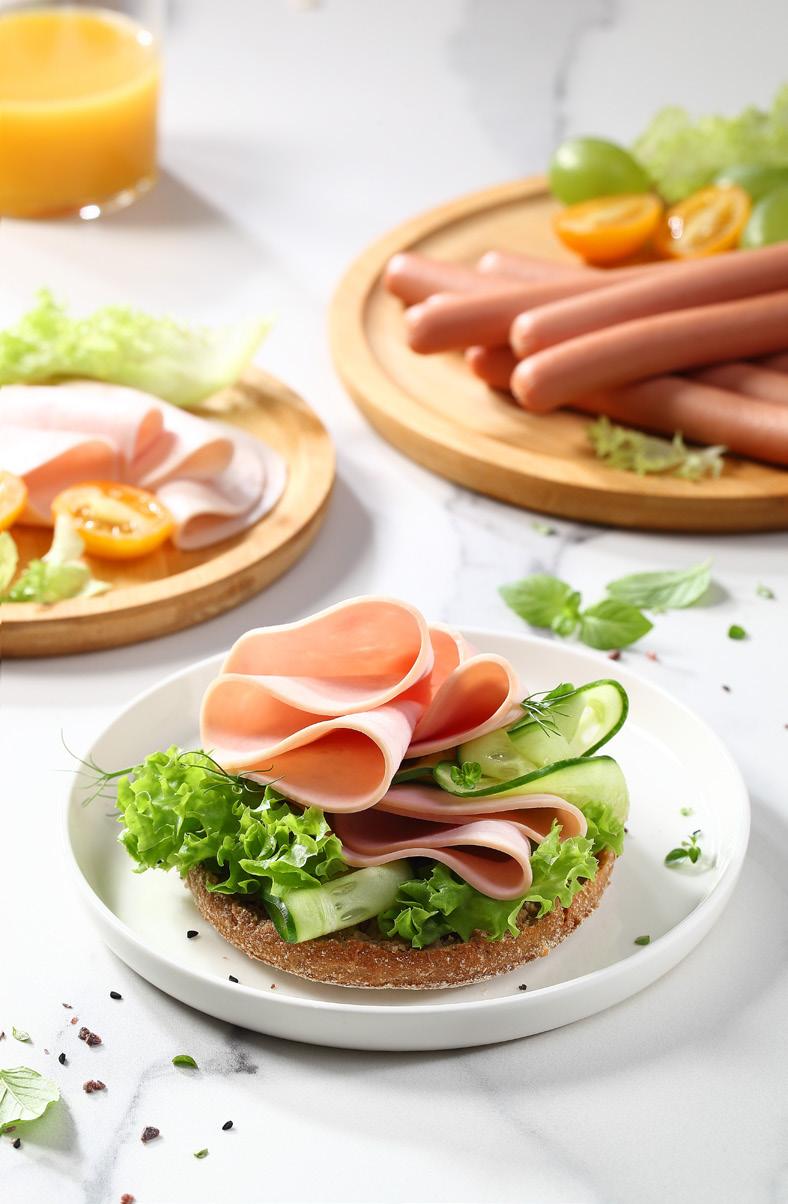
Our customers on export markets particularly appreciate such products as:
• our “turkey specialties” – bacon and a selection of salamis;
• pasteurized products with a longer use-by date;
• frozen coated products (also including chicken meat) – nuggets, burgers, strips, cordon bleu.
This is the product portfolio on which we focus today and will focus on in the near future.
Our (weekly) production capacity includes: 50 tons of frankfurt-
ers, 25 tons of maturing products, 150 tons of smoked meats, 200 tons of sliced products, or 100 tons of convenience products (frozen and cooled). We have an excellent sales team specializing in the service of export markets, modern standards, and the trust of our international partners.
We are ready to handle almost every order and we look for distribution partners with whom we would fully maximize our potential.
Thank you
Monika GórkaDelving into the past, present, and future of Polish production values, Franciszek Siegień, Owner of ELENA, gives us a glimpse into the world of high-quality lyophilized products and the evolving landscape of dietary supplements.
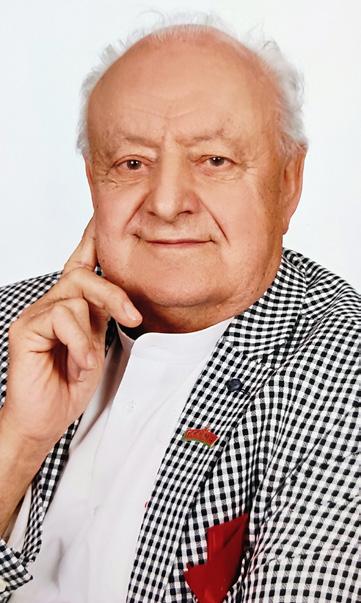
A family company and international operations – how do you promote Polish production values and high quality abroad? Is Polish food appreciated in other countries?
Elena is a family enterprise active for more than 30 years. Throughout its operation, it has been putting enormous effort into the establishment of long-lasting relationships with customers and promotion of its brand as a strong Polish brand in Europe, as well as on global markets. Currently, it cooperates with almost 30 countries worldwide and is one of Europe’s largest enterprises involved in food processing technology. Its main advantages include the ready product quality, the plant capacity, and the possibility to lyophilize different raw materials, which entails a great amount of knowledge and experience. Concerning the latter, the company can call itself “unrivalled”. Factors affecting the achieved level include: investment in the improvement of technologies and operations, specialized personnel, as well as regular training in production and safety, which is a very important issue. For many years, the company has been maintaining its quality certificate, it is concerned about the plant’s development and cares for the environment. The enterprise holds the BRC, Organic and Kosher certificates and has the HACCP system in place. Recently, products for gluten-intolerant people have been put into production as well. 50% of the production reaches the markets in Europe and beyond, while the other 50% is directed towards the domestic market.
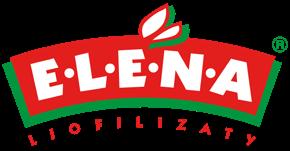
What makes lyophilized products distinct? Do they fit the current consumer trends?
The process of production of lyophilized raw materials, or freeze drying, is characterized by the composition of vitamins, minerals and other nutrients being preserved at 95-99%. This is achieved through freezing water out of them. The method is carried out under sterile conditions, with no additives or preservatives. Lyophilized fruit and vegetables are pu-
rified of bacteria which can be found in fresh raw materials. Such products can be termed as future-oriented, even if, due to a trend our population is following, we wish to travel into the extraterrestrial zone, according to global nutrition experts, this will be the healthiest kind of food for humans in such travels. Currently, we are heading into a direction in which an important thing is that “it is not enough to eat much to nourish your organism – you can eat less but those should be valuable doses to really nourish you.” This is the important difference between such products as ordinary dried fruit or vegetables and lyophilized ones.
One area of your operations is dietary supplements. How do current market trends and consumer requirements look like in this category?
For many years, Elena has been involved in the production of supplements, mainly based on fish collagen, we have also patented lyophilized collagen serving as support and prophylaxis to people wishing to preserve both their healthy skin appearance and flexible joints, as well as to delay the aging processes. Recently, we have also introduced other supplements, such as lyophilized chokeberry in capsules, Chanca Piedra infusion in capsules, or lyophilized celery, also in capsule form. All of these products are 100% natural, with no synthetic additives. They are available in a convenient form to be swallowed or dissolved in water. Introducing new supplements to the market, Elena follows not only trends but special customer needs. To survey such needs, the company utilizes individual conversations with its contractors, as well as questionnaires. With numerous TV interviews or speeches at conferences and fairs, they have opportunities to establish many contacts helping them find out what the needs of the interested people are. The employees have an individual approach to customers in order to match the products to their needs.
Thank you
Monika Książek
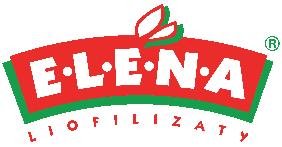

How does HELA sustain its ice-cold exports in a hot market? Agnieszka Makaruk, President of the Management Board at HELA spills the beans on the company’s strategy, sustainability, and future plans.
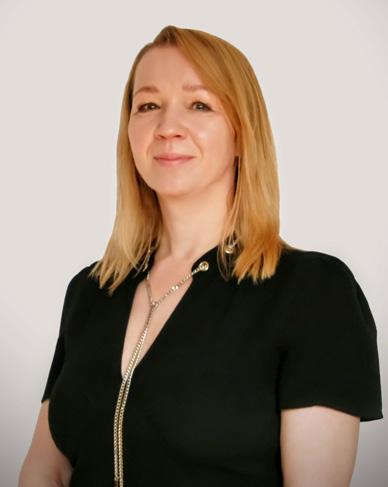
The ice cream category requires a well-thought-out strategy and logistics, especially when the products are directed to other countries. How do you ensure the safety of your production and supply chain?
We export more than 90% of our production that is carried out in accordance with the latest guidelines of the IFS food safety system. We cooperate exclusively with proven and approved suppliers offering certified raw materials. We are able to export our products to the EU countries and beyond.
How does your export offer look like? Do you implement customized projects?
We specialize in production of private-label ice cream for our customers, so majority of our products have been made as a result of close cooperation with our recipients and on the basis of customized recipes created in accordance with the customers’ wishes. We are also willing to share our many years’ worth of experience and ideas, while our technological possibilities allow us to make ice cream in many forms and diverse assortments. We produce popsicles, ice cream sandwiches, cones, rolls, as well as ice cream in containers of different volumes. With such a broad offer, we can bring our ideas and those of our customers to life.
Do you observe the differences between ice cream industry trends in Poland and abroad?
Yes, the Polish market is dominated by preferences for classic and fruit ice cream flavours. On foreign markets, we can see more openness to experiments with the form of ice cream, but also with unique and interesting flavour combinations.
Ice cream and seasonality – are the sales still predominantly focused on the warm months of the year? Does the offer change depending on the season?
The seasonality of sales is typical of this sector and particularly visible on the Polish market. Luckily for us, our company is focused on exports to countries where the season is much longer and ice cream consumption does not drop so abruptly in the winter months. Of course, we still record top sales in the summer period, but we have noticed an increased interest in ice cream in the winter period, even on the Polish market.
Ecology and sustainable development, clean label, certified raw materials… How do consumer trends look like?
Due to our care for the environment and higher consumer awareness, our production utilizes sticks and paper packages with an FSC certificate, while all plastic packages are recyclable and suitable for repeated processing. We are at the stage of expanding our existing photovoltaic panel installation, which will help us increase our share of so-called clean electric power. We also care for the composition of our products. We avoid using limited substances and palm fat. For most products, we utilize natural flavouring and food colouring instead of synthetic colourants. We hold the Rainforest Alliance certificate, so our clients are offered chocolate products made of cocoa from certified sources.
What matters most to a customer today and how does your company respond to consumer needs?
The most important things to a customer are high quality, an attractive price, and a clean label. Over the recent years, customers have been paying increasing attention to the environmental aspects of production and sustainable development of the company. With our rich experience, we can provide customers with products combining all these features.
Do you intend to expand your portfolio or to invest in new technologies? What are your company’s plans for the nearest future?
We are constantly searching for new technological solutions to help us increase the diversity of the produced assortment, to improve the technological process, but also to increase the production capacity. In the recent years, we have invested in a large popsicle production line, thus increasing our production potential. Recently, we have also launched a new machine for production of ice cream in containers. Our plans for the years to come include expansion of the production floor and construction of a new office building. Thanks to these actions and our will to develop, we offer new technological possibilities to our customers, which will help us expand our assortment continuously, as well as match the market expectations and the current trends. All of this makes us an attractive partner for cooperation, including with large trade chains.
Thank you
Monika Książek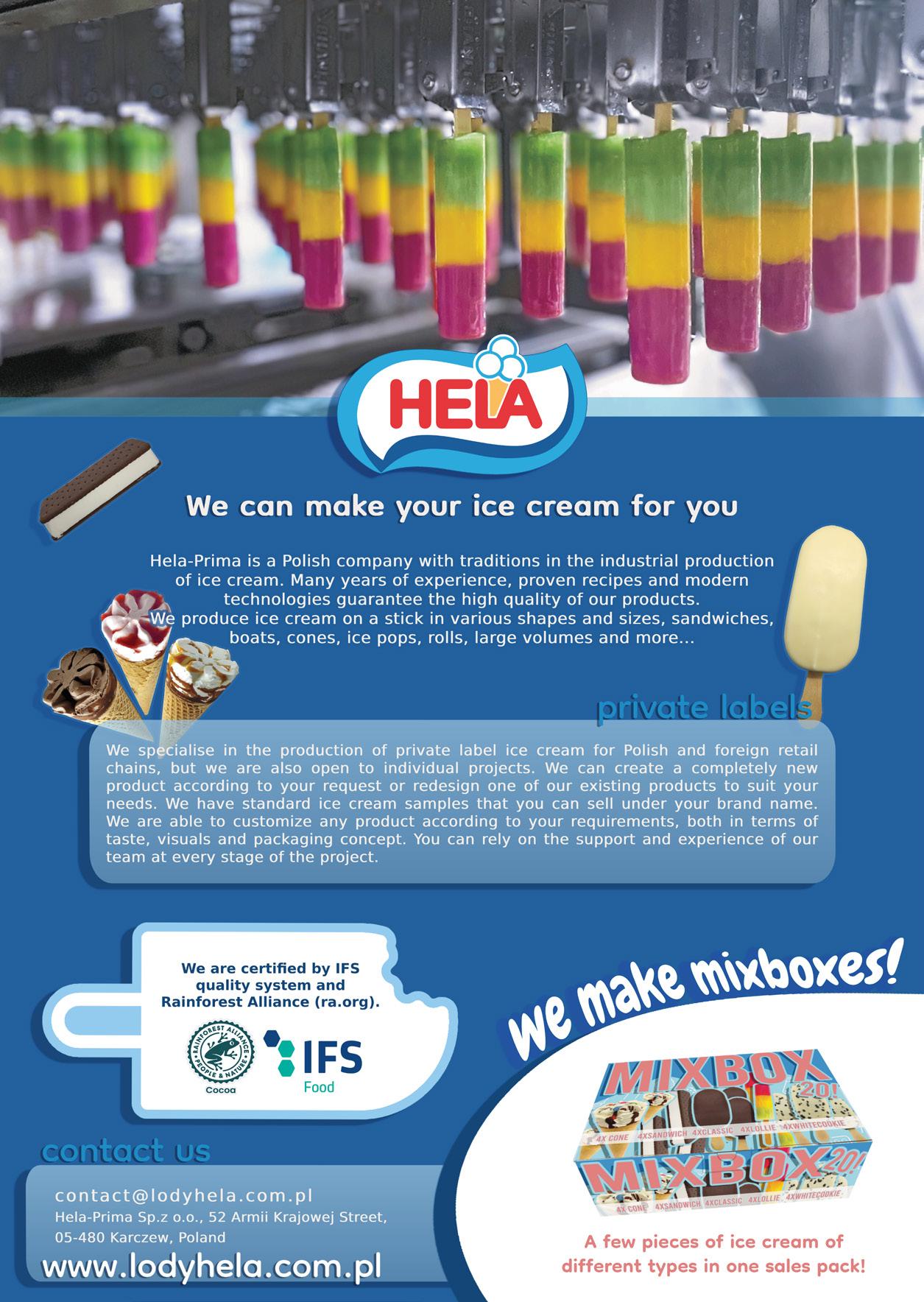
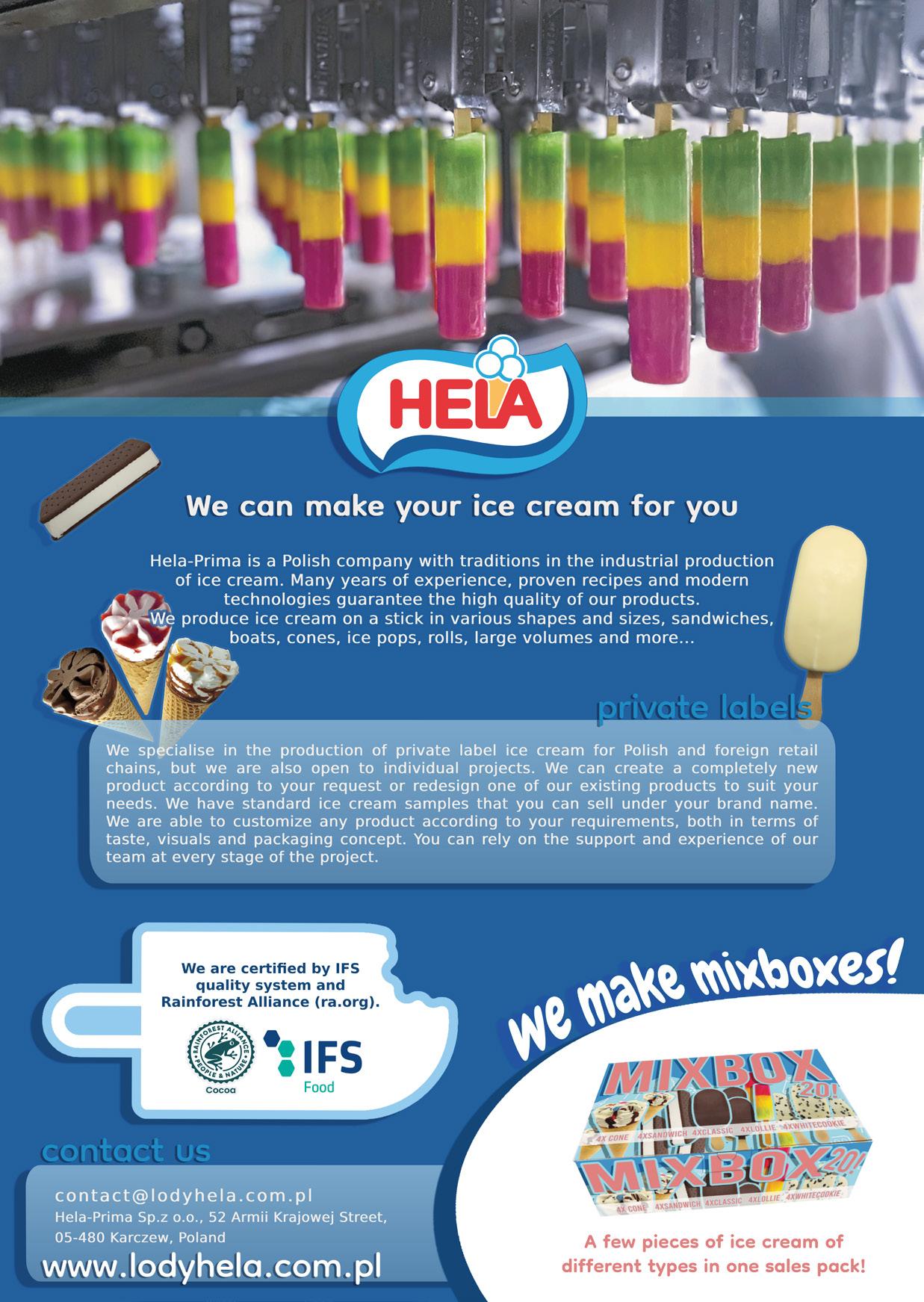




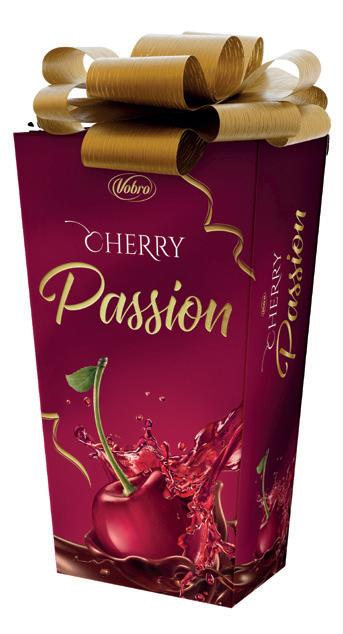





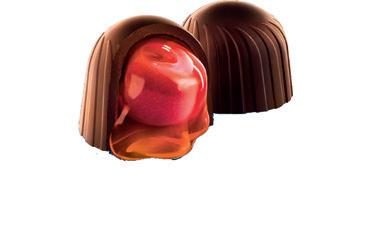





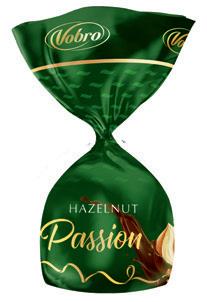
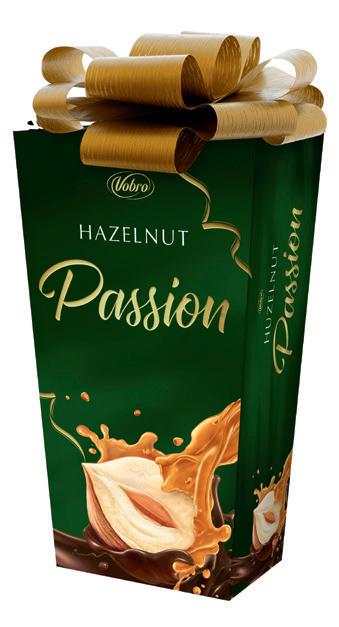

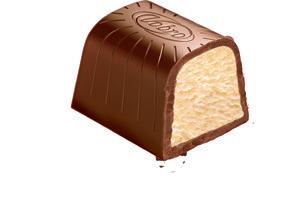
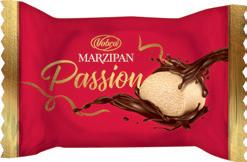
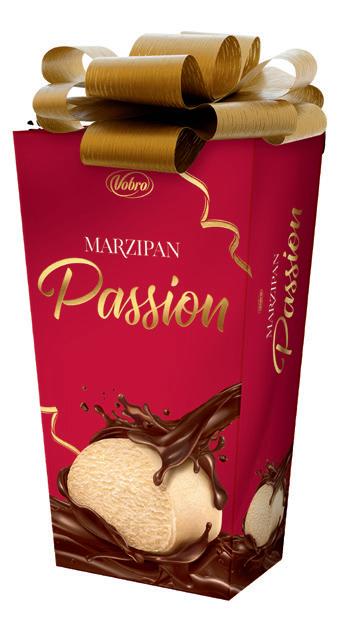



The dairy sector is unquestionably struggling today against crises related to such issues as increased costs of production and processing or inflation. Then there is the drop in the export level and in the consumers’ purchasing power, as well as the uncertain international situation. All of this makes producers refrain from taking risky challenges and limit their expenses.
Maciej Herman Managing Director at Wedel
The current situation on the Polish chocolate confectionery market is not as volatile as the year before, but it is hard to be very enthusiastic, since the economic effects of the armed conflict beyond our eastern border are still with us. Confectionery producers must remain flexible and respond quickly to the changing conditions of functioning, connected, for instance, with raw material prices or growing costs. In spite of shortterm challenges, an increase in value of the entire chocolate market, as well as higher consumption of chocolate confectionery by Polish consumers (by 8.5% to 2028), is expected in the longer run.
Positive long-term forecasts are pleasing but one should keep in mind that organizations are still facing many economic problems. A major challenge is surely the rapid soar in prices of the key raw material for the chocolate industry, i.e. cocoa, the price of which approached GBP 3000 on the London stock exchange in late August 2023. We could see its price grow by 60% over the year, becoming the highest in 46 years. The large concentration of cocoa crops in West Africa makes it strongly affected by weather conditions as well as economic and political instability. Anticipation of yields – and consequently, of future prices – is exceptionally difficult.
For a long time, a critical challenge to virtually all producers in the food industry was to ensure the supply chain continuity while preserving a competitive, high-quality offer. Wedel, with its many years of experience and cooperation with proven partners, as well as with its flexibility, has anticipated market events, looking for opportunities in the encountered difficulties in order to be able to keep developing.
Małgorzata Cebelińska Vice-President of the Board SM Mlekpol
Poland is a country with much potential for milk production (12th position worldwide) and we still can see broad opportunities for development in this regard. Currently, Mlekpol processes approx. 16% of the domestic raw material and carries out production at 14 highly specialized plants. The broad offer and production scale allow the company to satisfy the needs of consumers at home and in more than 100 countries of the world. With its flexibility and modern technologies, the Cooperative is able to adapt to the requirements of individual markets and to respond efficiently to economic turbulences.
An opportunity for the entire sector today lies in adaptability to changing conditions and consumer expectations. This is why Mlekpol invariably works on increasing its raw material base and gaining new outlet markets, which entails offer diversification and modernization of production processes.
The food market in Poland – just like many other sectors of the economy – is experiencing the effects of the dynamically changing global geopolitical situation. The changes occurring in the international arena directly affect both foreign and domestic trade.
Wars and conflicts in different parts of the world, including, of course, Russia’s attack on Ukraine, unquestionably affect raw material prices, product availability, and stability of supplies. Changing alliances, economic sanctions or trade barriers may hinder Polish agri-food exports. As a consequence of international tensions, increasing raw material prices and transport costs impact the retail prices of products, including in Poland. Let us also keep in mind the energy crisis and wage increases, both contributing to Polish foods becoming increasingly expensive. This, unfortunately, has an adverse effect on our price competitiveness which has hitherto been based on low prices.
In spite of the current difficulties, the Polish food market is facing many opportunities, as evidenced by the continued international position of our country as an important food supplier. We export “made in Poland” products to many countries, especially to EU ones, but outside the EU as well. The most important goods include meat, milk, fruit, vegetables, and preparations. Under the current circumstances, Poland may become an important logistic hub for food trade in the Central and Eastern European region, which will create new opportunities for producers and distributors.
The key to success is flexibility and adaptability to changing conditions on the global market, yet this is, unfortunately, largely dependent on political decisions, which may bring a risk of inhibition of development. On the other hand, the growing innovativeness of the Polish food market is pleasing. In this regard, we can boast interesting solutions offered by domestic startups, and especially by foodtechs.

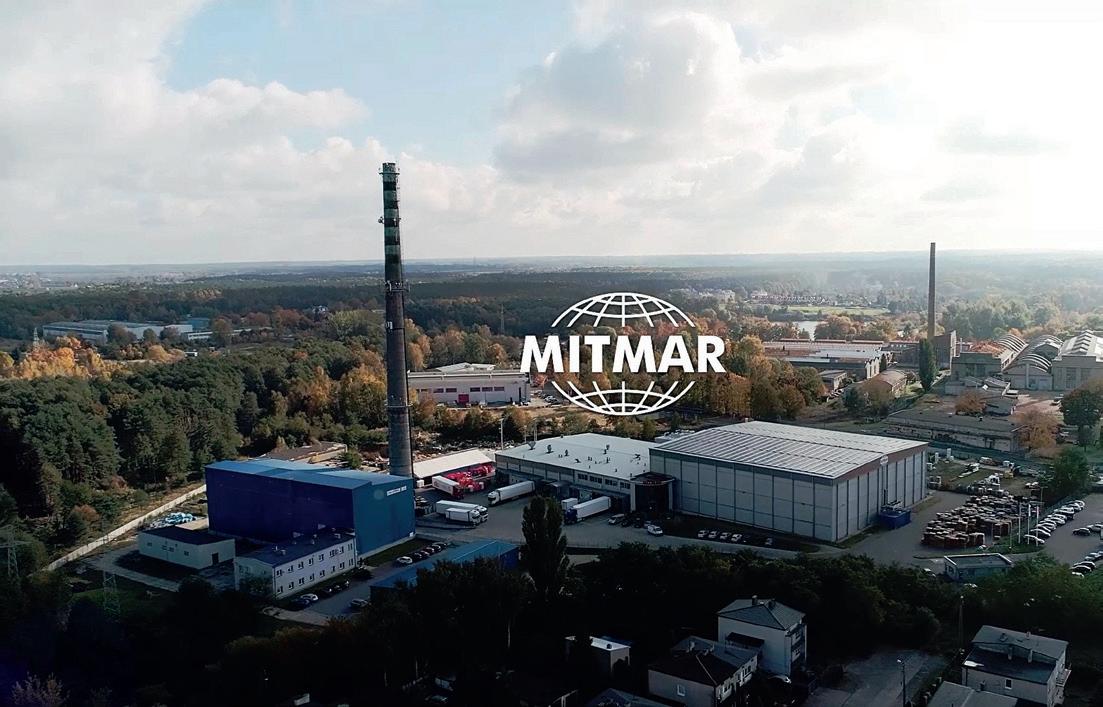
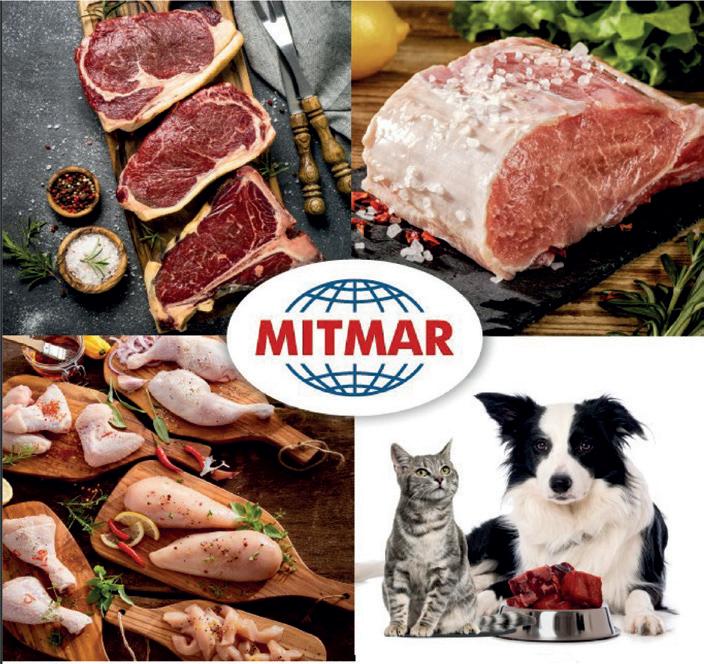
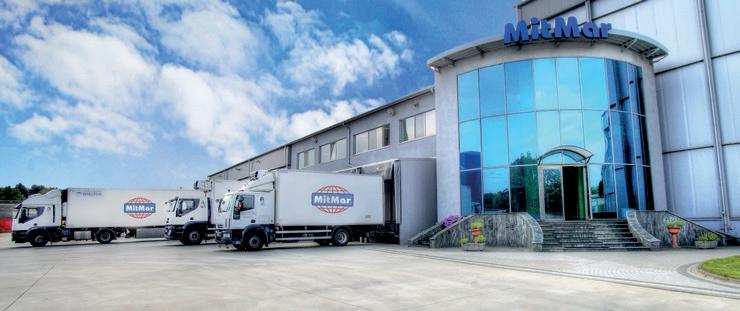
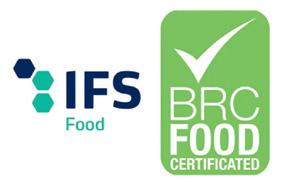


The current situation on the food market in Poland and worldwide presents an interesting challenge and opportunity for our company and for the FMCG industry as a whole.
In the context of the domestic market, we can see a sustained increase in demand for FMCG products, including our KOMODO ENERGY DRINK energy drinks.
Poland, being part of the European Union, benefits from access to a wide market, which contributes to our success. However, competition
in the country’s food sector is intense, requiring us to constantly strive to innovate and remain competitive.
We see promising prospects in foreign markets. Our brand is already well established in many global markets, but there are still opportunities for expansion. One of the main risks is regulatory changes and standards for health and safety of food products, which vary between countries. It is essential to maintain compliance with these regulations. However, we also see opportunities in the growing trend of healthy lifestyles, where our energy drinks with low calories and natural ingredients may gain more popularity. Our company continues to invest in research and new product development to meet these expectations.
The current market situation is a challenge, but also an opportunity. Our company and our KOMODO ENERGY DRINK products are flexible and ready to adapt to the changing market environment by innovating, developing healthier products, expanding online and focusing on promotion, as well as adapting to possible new regulations in Poland.
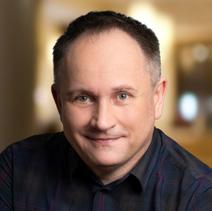
Currently, the food market in Poland and abroad is slowly returning to normal. Prices are not being increased, they are starting to drop, which means good forecasts for the years to come. The current market situation is becoming increasingly favourable as well. Fairly balanced production and supply constitute stabilization for a producer, a farmer, the production sector. Prices are returning to last year’s levels and the case is similar throughout Europe. We export 50% of our production (approx. 150 tons of highly processed foods to the European market). Our recipients have started production
of goods sent directly to store shelves; also in Poland, meat or dairy companies have launched their production on good levels, which provides optimistic forecasts for the future.
We assume growth should be moving forward next year – both in the area of wholesale of natural food additives and of end products. Due to the expansion of the consumer group in Poland, the demand for our retail products is growing, which will surely help our company make up for last year’s losses.

Of course, there are also certain energy-related concerns. The government should act in the interest of farmers and food processors in the energy area. If energy costs continue to grow, so will the prices of final products on the market, while food brought from abroad will cost not 5% but 50% more. To sum up: the price and trade stabilization is not up to us, food processors and agricultural producers, but depends on energy sources, so this is our task for the government: if we want to “maintain” Poland, we need to get energy in hand in 2024.
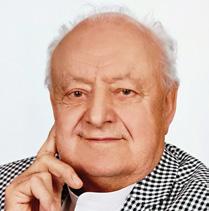
The market situation remains unstable and the food industry is facing serious challenges related to growing costs, high inflation, price increases of foodstuffs, and slowdown in consumption. It is safe to say the market is unpredictable, especially that the dairy industry has been struggling recently against large fluctuations on the milk price market, milk is the key raw material in our operations.
We have focused on optimization – both on the operational side of efficiency and production plant costs, and on the assortment side, optimizing the product lists and eliminating those with the least added value. Among our priorities are actions based on the acceleration of innovation, digitization and improvement through efficient data generation and exploitation, hence we have taken a range of initiatives in this

area. We are glad our Almette and Hochland brands are on the rise. We continue our development strategy based on constant, profitable and sustainable growth. A key aspect is the profitability of our business and verification of the areas having a significant impact to mitigate the risk. We will also devote much attention to issues in the field of new investments in energy sources and of the Sustainable Development Strategy. We set ourselves ambitious goals related to the protection of the environment and climate or the wellbeing of animals, e.g. we aim at significantly reducing the amount of plastic in our packages and we have an ambitious goal to make 100% of our packaging recyclable by 2025. Our goal is to maintain the leading position on the Polish cheese market and to develop on selected export markets on which Hochland is significantly strengthening its position.
Recently, we have also implemented related Sustainable Development which comprises an integral part of all areas of our operation. Especially that, as a socially responsible company, we wish to become a part of a low-emission economy. We are proud of the already introduced and currently implemented pro-ecological investments, including those supporting development of renewable energy, as well as of our educational campaigns for employees and actions for the benefit of local communities. We have recently published our Sustainable Development report for 2022.
Franciszek Siegień Owner of ELENA Jacek Wyrzykiewicz PR & Marketing Services Manager Hochland Polska
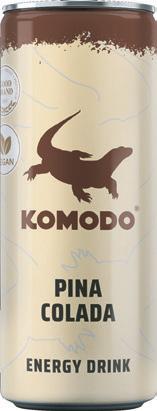
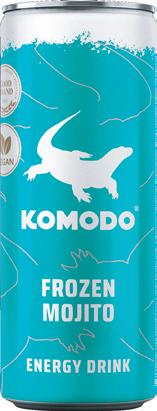
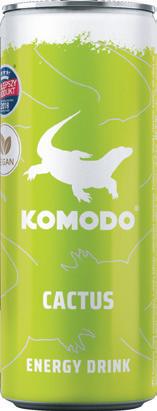
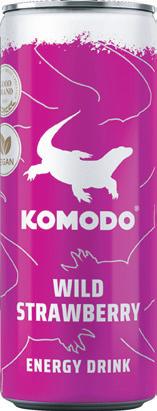





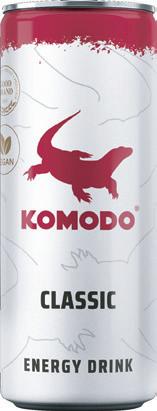
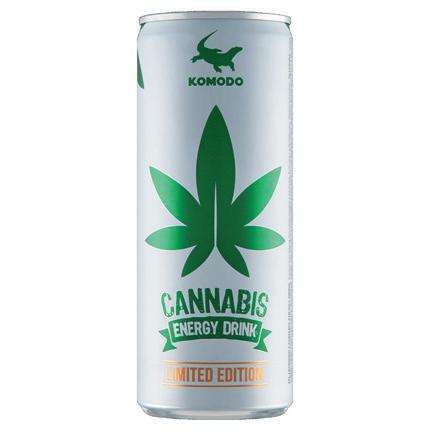
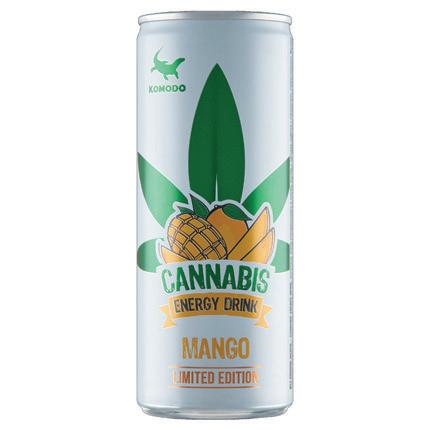
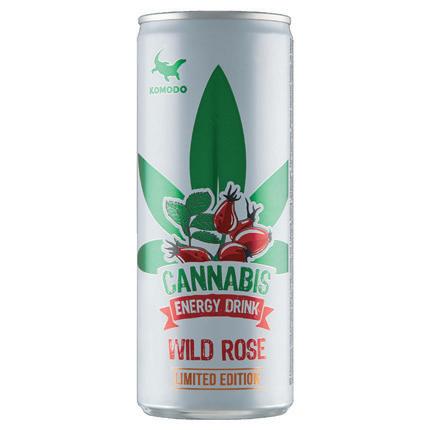

The current situation is determined by the effects of the Russian aggression against Ukraine. Before that, we had faced the Covid-19 pandemic. It had not yet ended when the economic war started. Even though we had been warning against it, the European Union became too dependent on Russian energy sources. Russia, on the other hand, started using energy as a weapon. Hence the rapid soar of prices of fertilizers necessary in agriculture. In the wake of the rising prices of energy sources, especially gas, problems started being felt, among others, by vegetable farms in the Netherlands, many of which have gone bankrupt. High energy prices also affected the economic condition of processing and storage companies serving the freezer industry. High prices of energy are a problem for the dairy sector as well.
Generally speaking, the situation was very hard, but it is gradually stabilizing and the markets are adapting to the current realities.
I have partially mentioned this before. It is the aggressive policy of Russia that has affected the food trade in Poland and worldwide. The blockade of Black Sea ports and the related problems with exports of agricultural products from Ukraine has had an impact on the entire global trade. The agreement reached with regard to this transport has only partially alleviated the situation. Just how much all of this has affected the foreign food trade is best illustrated by the situation of frontline countries. The enormous influx of agricultural products from Ukraine, especially of cereals, has caused destabilization of agricultural
The situation regarding poultry meat on the domestic and global markets is dynamic and unpredictable. On the one hand, we are dealing with a stable increase in production in Poland. According to the final data of the Central Statistical Office, the total production of poultry meat in Poland in 2022 amounted to 3,349.9 thousand tonnes and was approximately 6.1% higher than in 2021. In the first seven months of 2023, in plants with more than 50 employees, it amounted to 1,873 thousand tonnes (preliminary data from the Central Statistical Office) and was approximately 7% higher compared to the same period of the previous year. On the other hand, we must bear in mind the unpredictability of the geopolitical situation, especially that related to the conflict in Ukraine, which has a negative impact on international trade conditions and production costs (energy prices).
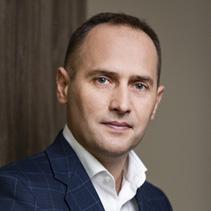

The geopolitical situation related to Russia’s aggression against Ukraine is very unfavourable. The war meant that the EU, while providing economic assistance to Ukraine, in fact introduced a free trade zone with this country. Without questioning the legitimacy of providing aid, we would like to point out that since the liberalization of trade with Ukraine the Polish poultry sector has also been facing an unprec-
markets in Poland, Slovakia, Bulgaria, Romania, and Hungary. This is why we have decided to suspend the imports of agricultural products from Ukraine. It was only that decision of five countries that woke up the European Commission. I would like to remind you that Ursula von der Leyen, the President of the EC, had promised support in the enhancement of handling and transport capacities of Ukrainian grain more than a year ago. And how did it turn out? That drastic decision of five frontline countries inspired the “awakening” of the European Commission. However, politics still prevail over substance. The EC has set the expiry date of the embargo for agricultural products from Ukraine for 15 September of this year, stating no arguments to support the soundness of this decision. We disagree. If the embargo is not extended, we will introduce it on our own. The frontline countries demand it to be extended until the end of the year and the list of affected products to be flexible.
The greatest threat is uncertainty and lack of stabilization. And this is what we are facing all the time. Until the war in Ukraine ends, it will affect the agricultural markets very strongly. Moreover, this situation shows one has to think far ahead. We have said, and I will repeat it again, that our embargo on agricultural products is not directed against Ukraine, nor against the European Union. Quite the opposite – this is in the best interest of both the European Union and Ukraine, as well as, of course, in the interest of Poland. One day, this war will end, and may it be as soon as possible. We will develop our relations anew. Ukraine has been considered, without exaggeration, the breadbasket of Europe and one already has to think today what the post-war relations will look like and what the Ukrainian road to Europe will be.
Everything depends on the post-war settlements. The development of the sector is possible, I have no doubts about it. The development should progress towards shortening of supply chains, i.e. towards local processing and local markets, which implies development of sustainable agriculture and a definite departure from maximization of profits towards local products and preparations.
edentedly large inflow of cheap poultry meat from Ukraine. The open access to the EU market is devastating for the sector, because we have no chance to compete with a product that is manufactured without the obligation to meet a number of expensive EU standards.
It is enough to look at the latest data from the European Commission. Imports of poultry meat from Ukraine from the beginning of the year till 14 August 2023 increased by +75% y/y to the level of approx. 155 thousand tonnes, and imports of frozen meat amounted to approx. 75 thousand tonnes, i.e. +51% y/y, fresh meat imports increased by 60 thousand tonnes, i.e. by as much as +140% y/y. In the case of eggs, from the beginning of the year till 14 August 2023, imports from Ukraine amounted to 26.7 thousand tonnes, i.e. +146% compared to the same period last year. Import of fresh eggs increased by +155% to 19 thousand tonnes, import of eggs without shells +188% to approx. 7 thousand tonnes.
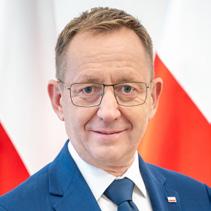
What is certainly pleasing is the fact that the interest in poultry meat among consumers is not decreasing. All forecasts show an increase in poultry consumption, and this is certainly a good prognosis for the industry, especially for the Polish one, which now ships over 60% of its production abroad. The dynamics of the development of Polish poultry farming is largely determined by the possibilities of selling poultry abroad.
What is worrying is the ongoing review of all animal welfare regulations in the European Union as part of the European Green Deal. Taking into account the current position of the European Commission (e.g. regarding the citizens’ initiative “End the Cage Age”) and the recommendations of EFSA (European Food Safety Authority), we can expect very unfavourable legislative proposals for the poultry industry, e.g. regarding the density of their breeding, the mandatory use of slow-growing breeds, or a ban on the use of cages in egg production.
The situation is very similar on the domestic and foreign market and, in spite of certain stabilization, its structure continues to be dictated by the situation of the war in Ukraine. The trading conditions of cooperation with suppliers and customers receiving our goods have changed. We operate under short-term agreements because no one is able to predict what tomorrow will bring. There are also changes in diversification of the agricultural market in the context of the choice of crop to be sown by farmers. It is dictated by high cereal prices, which translates, in our case, to smaller chances of farmers sowing their fields with herbs which are among the key items in our product portfolio. We observe, including with concern, the provision of human resources in the broadly understood agricultural sector. The changing market trends and the ever-growing, increasingly fast pursuit of money have led to a decline of blue-collar workers in such production companies as ours and to an unwillingness to cultivate fields and land. Each year, we successively witness the downfall of small farms on the market in favour of large players who no longer function as agricultural farms but as small and medium enterprises. In the process of market changes, we have reached a point in which “new farmers” will take over
the land and fields from their parents. Agriculture 4.0 will change the entire agricultural sector into a well-organized enterprise utilizing state-of-the-art technologies and digitization. We can already see these changes today; Production in Poland is on the rise, which allows it to strengthen its position on the EU agricultural market. According to Eurostat, the value of agricultural production in Poland in 2011-2021 grew at an average annual rate of 2.1%, in comparison with an average of 1.7% in EU-27. The only question is how quickly machines will be able to replace people. Surely, an opportunity will consist adaptation to the pace of those changes and in being able to bear their costs.
The assessment of our company’s current situation on the domestic and foreign markets has to be divided. We have been on the Polish market for more than two decades and this has an obvious impact on our market position. Using racing terminology, I would assess it as ‘pole position’. This is not only due to the number and quality of contracts behind us or in progress, but above all due to the structure of our product and service portfolio, and the consistently built competitive advantage based on operational excellence and project management technology. Years of investment in the right competences and tools have paid off and given us above-average confidence in our relationship with the market. In the context of foreign markets, I would describe Modern Expo as a challenger. We have all the data to be in a leading position in most markets in Europe, and partly also on other continents. For the reasons I have already indicated I would put stronger emphasis on our flexibility of approach and the very high level of realised value from combining products and services.


The last three years have flown by in terms of COVID-19 threats and that’s enough. Others like the recession or changing shopping habits are a permanent retail landscape. The coming time will be marked

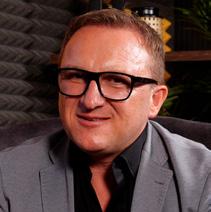
by the green trend, the search for savings and, above all, the growing role of artificial intelligence. This last factor, by the way, is only just taking off, so one can assume that it will surprise many times over. I see all this unequivocally as an opportunity for us. For the simple reason - we are profoundly advanced in each of these elements. A separate issue is the development of selected shop formats. Their increasing expressiveness and concentration of value for consumers. We are studying these developments very closely.
Only in January 2023, 59,600 tons of pork reached Poland. On shop shelves, we can find meat from such countries as Denmark, Sweden, or even faraway China. It does not take an expert to know that the freshest meat is the one that makes its way from the producer to a consumer’s plate as quick as possible. Many well-known meat producers maintain their production abroad or bring their product ingredients from abroad. As Goodvalley, we produce our goods in Poland, under the “field to table” model. Everything starts as early as the field where we put much heart and effort into making our crops as non-invasive to the environment as possible. The case is similar with our farms where we provide animals with high standards of care, concerned about their wellbeing. We are unquestionably one of the largest meat processing enterprises producing, in the spirit of localness, high-quality products with no artificial preservatives or flavour enhancers. A sustainable manner of production, guaranteed quality, good composition and Polish origin – these are the features making us stand out among the competition.
The greatest challenge faced now by the meat industry is the CSRD EU directive. Although it still remains in the making, it can already
be said that meat sector companies will face a serious challenge. The meat processing market is a difficult category for sustainable development, but the key to appropriate adaptation to the new directive will be proper preparation and, above all, implication of changes in the manner of production. We believe that adaptation to changes in the area of ESG reporting will be one of the greatest challenges to our competitors in the months to come, while we, Goodvalley, are prepared, having been operating under the sustainable “field to table” model for years.
Paweł Broniarek Board Member, Bromex Bogdan Łukasik President of the Management Board Modern Expo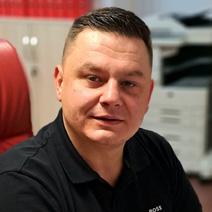


Processed cheese consumers, especially in Poland, are rather conservative in their choices; this is particularly true for cheese types and flavourings used in production; we continually strive to adapt and change our offer. We introduce new flavours and package forms. The export market, be it European or worldwide, is not uniform. We have to adapt our offer on an ongoing basis to the expectations of local markets. Recently, we have enriched the offer by new items in the series of products packed in a 90g long cube as well as 130g processed cheese slices. Nevertheless, we observe different behaviours and consumer preferences in different countries. They result from different cultural or historical circumstances. Thus, for instance, the traditional 100g cube, still serving as the mainstay of our offer in Poland and the Czech Republic, is completely unknown in other European countries. This motivates us to make products which will gain recognition beyond our borders. Recently, our export hit has been 130g sliced processed cheese, tasting good when served cold as well as when used in hot meals.
Outside the Polish market, the most attractive ones are still the markets closest to us, i.e. the Czech Republic, Slovakia, as well as Romania
and the Balkan countries. Our products continue to be highly popular in Israel. Recently, we have started supplies to Sweden. We wish to strengthen our position in Ukraine. In spite of the war, the demand for Polish products there is continuously growing; to us, this means an opportunity and an investment for the future. We expand our offer with new products and packaging types. A large, still growing share in our sales to export markets is held by products packed as 130 g slices in 8 portions. We offer a wide range of such goods, which have been recently joined by two new products: toast-flavoured and with ham. We also intend to diversify our offer, not just with regard to new flavours or packaging types but also in the area of new products. We will present all our new proposals on an ongoing basis.
In its current legal form, Sertop sp. z o.o. has been present on the market for 25 years, yet its traditions go back to as many as 50 years ago. Over this time, Sertop has managed to maintain its share in the market and has been constantly developing, increasing both its potential and its presence on foreign markets. We attempt to create an attractive offer, which helps us maintain our position on the Polish market. Nevertheless, exports are an important and constantly developing part of our market.
In the nearest future, we intend to participate in international trade fairs, having support to our export activities on new markets in mind. We care about gaining “bridgeheads” in countries with a high consumption of processed cheese, i.e. in Arab countries. We are working to adapt our products to the requirements of their markets.
However, the most important reward and motivation for our actions is the fondness and recognition from our consumers, manifested at stores every day through their shopping decisions.
Referencing the current geopolitical situation and the different events related to it, we can assess the situation on the Polish and global food market as difficult. Keeping in touch with our customers in Poland and throughout Europe, we receive frequent signals of economic slowdown and reduced demand for certain products, e.g. due to high inflation.

Reduced demand for goods entails consequences throughout the chain, from production to the supply chain to the end customer. Lower demand means less product shipments, and this means lower demand for transport services. We receive signals from the market, indicating that the drop of sales in 2023 compared to 2022 has reached 50% in certain cases. In view of the current situation, we do our best to monitor the market on an ongoing basis, to speak with customers and to always remain as flexible towards them as possible. This is why we have developed our groupage transport very well throughout Europe, since in such difficult times, customers are often forced to look for new outlet markets and they send a lot of goods tentatively, in small quantities.
I think the solution for the future would be further adaptation to the customer’s needs, search for solutions needed by the market, and improvement of the already gained knowledge and skills.
The current situation, both on the domestic and foreign market, has stabilised, but the constant uncertainty regarding the operating costs in the years to come raises some concerns throughout the market. The reduced demand for goods affects all sectors, and prevention of growing product manufacturing costs is a key foundation of the struggle of companies on the market. Our opportunity is, above all, development of exports and the continuing expansion of our own goat milk production. Furthermore, we analyse the market on a systematic basis with regard to expansion of our product offer and we conduct actions aimed at promoting goat milk products. An important element for the entire sector will be stabilisation of energy source prices comprising a crucial component of total production costs. We will also encourage our hitherto contractors to increase the number of products from our portfolio in their offer, as we can clearly see that consumers tend to shop in places with the best-developed product offer. We also plan further e-commerce actions, including development of our own online store.
Przemysław Meller Commercial Department Agro-DanmisBoth on the Polish market and on foreign ones, trade in foodstuff is facing a range of challenges that usually already appear in early autumn, but this time, they might cumulate at the beginning of the next year.
The early summer was unusual. In the wake of a cold June in Poland, domestic open-field vegetables were in short supply, whereas greenhouse crops were expensive as a result of high energy prices. This has placed a significant burden on the consumers’ wallets, causing restrictions in consumption. High prices of meat and fish had a similar effect.
August brought positive price effects concerning fruit and vegetables as well as poultry meat, or a breakdown of the project of salmon fishing quotas. Unfortunately, the drop in prices of foodstuff could not fully translate into household consumption. After the period of COVID, Polish people on holiday try to function as they had before, yet the prices they encounter in tourist regions necessitate a reduction of different expenses or reallocation of spending of savings from other months to the holiday period. This is not about the “horror receipts”, which are much publicized but isolated, but about the total amount of all restaurant and hotel receipts, clearly higher than in the previous years, placing a burden on family wallets.
Autumn brings new threats to consumption, and school equipment expenses will be another major burden to wallets. However, the real problem for the society and expenses is only looming far away on the horizon. The market today is largely shaped by the
The economic landscape, both globally and within the borders of Poland, has been a subject of critical scrutiny and analysis as we traverse the complex aftermath of a global pandemic. In this press note, we delve into the economic situation in both the global and Polish food markets.


The global economic scene has witnessed a series of unprecedented challenges over the past few years. The COVID-19 pandemic disrupted supply chains, altered consumer behavior, and strained economies across the world. Governments have introduced measures to protect public health, often at the expense of economic growth.

While the world is gradually emerging from the shadow of the pandemic, its economic impact is far from over. The pandemic accelerated digital transformation and e-commerce growth, altering the dynamics of many industries, including food. Supply chain vulnerabilities were exposed, leading to a reevaluation of global trade practices.
In Poland, the food market demonstrated remarkable resilience during these turbulent times. The agricultural sector continued to produce and supply essential goods, ensuring a stable food supply chain for the nation. This resilience not only met domestic demands but also enabled Poland to contribute to global food security.
The Polish government implemented measures to support businesses and agriculture throughout the pandemic, including financial aid, tax incentives, and investment in agricultural infrastructure. These actions have been pivotal in maintaining economic stability and bolstering the food market.
Nonetheless, the Polish food market, like its global counterparts, faces ongoing challenges. Inflationary pressures and rising commodity prices have made food production more costly. Sustainable farming practices
anti-inflation shield. The probability that it would be maintained after the autumn election is minimal, and it will surely be gone by 1 January. Thus, prices of most foodstuffs in stores will be increased by the VAT and by cumulative rises which have not been implemented so far. Additionally, these increases will take place at the worst moment possible, when increases of regulated prices and other charges are traditionally announced in Poland as well.
Nevertheless, trade in foodstuff has an essential advantage here over other sectors. The society cannot save on food and responds in a logical way, shifting its expenses to cheaper products or their substitutes. Under such circumstances, further growth of interest in private labels of stores and in searches for bargains, promotions and discounts is expected. The significance of discount stores will grow as well at the expense of other store types. Luxury goods should not suffer, as opposed to branded products targeted at the middle class.
and food security remain paramount concerns.
Moreover, consumers’ preferences have shifted towards healthier, locally sourced, and sustainable food options. Meeting these changing demands presents both a challenge and an opportunity for the Polish food industry.
As we navigate these economic waters, Poland remains committed to fostering a robust and sustainable food market. Investments in technology and innovation, coupled with a focus on environmental sustainability, will shape the future of Polish agriculture and food production.
The government will continue to collaborate with industry stakeholders to ensure that Poland’s food market remains competitive, adaptive, and resilient. Efforts to expand exports and diversify products will further strengthen Poland’s position in the global food market.
In conclusion, the global and Polish food markets have weathered unprecedented challenges, showcasing resilience and adaptability. While uncertainties persist, Poland remains dedicated to fostering a sustainable and thriving food market, contributing to both its domestic prosperity and global food security.
Marek Gryczka Director of the Finance Department at Nice To Fit You dietetic catering

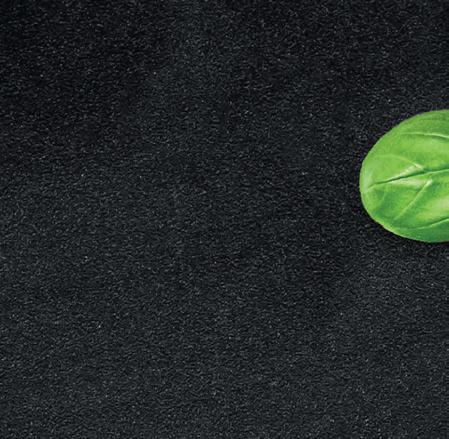





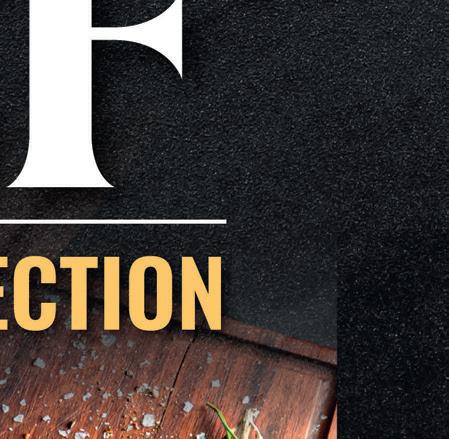
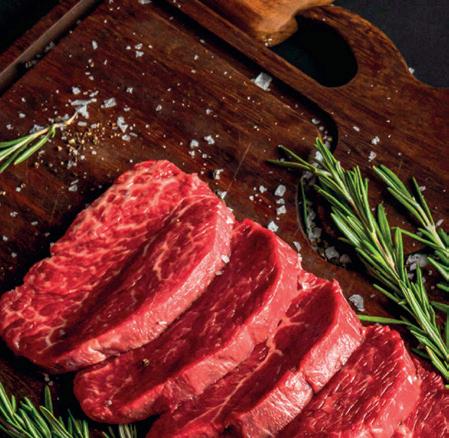
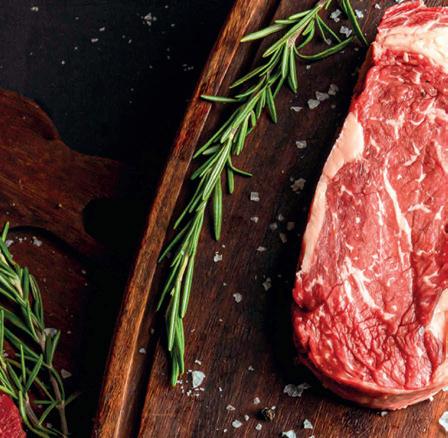
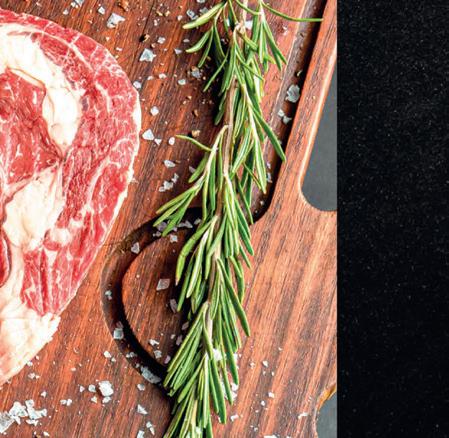
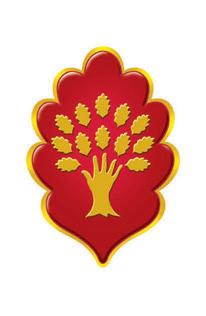

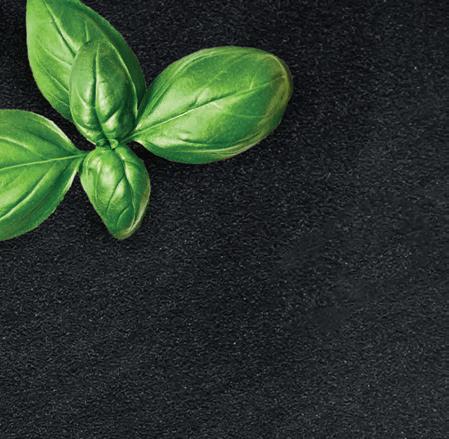
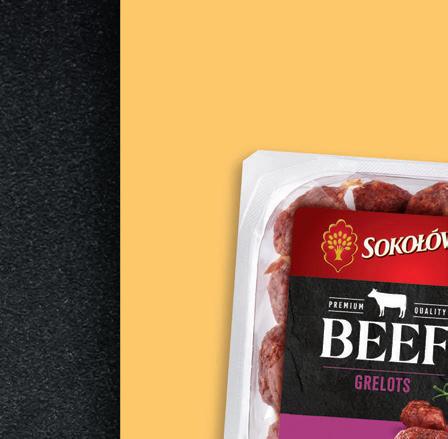






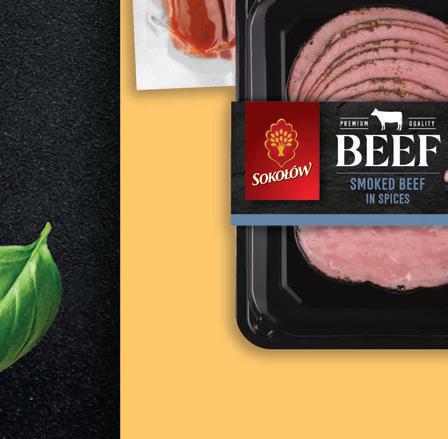




In the world of business, identifying trends and capitalizing on them is the key to success. One such trend that has been making waves in recent decades is the growing appetite for Asian cuisine in Europe. With its rich and diverse flavors, Asian food has become an integral part of European dining. Here comes Sen Soy, a brand that has harnessed this trend to create a thriving business, to European consumers, right from the heart of Poland.
Established in 2013, Sen Soy is a globally recognized brand renowned for its proprietary product recipes and eye-catching design. It rapidly gained international acclaim and expanded its presence to encompass South East Asia, North America, and East Europe.
What sets Sen Soy apart is its unique ability to blend the essence of Asia with the strategic location of Poland, creating a bridge between two culinary worlds.
In Europe, culinary exploration is not just a pastime; it’s a passion somehow imprinted in the consumer DNA. Europeans are constantly seeking new and exciting flavors, and Asian cuisine has emerged as a focal point of this gastronomic adventure. The appeal lies in the vast and diverse range of tastes that Asian foods offer, and Sen Soy astutely recognized this trend.
Facilitating Sen Soy’s European journey is Flavor Hub, headquartered in Warsaw, Po-
land. This strategic hub is responsible for distributing Sen Soy’s delectable products across the EU and Middle East regions. It serves as the intersection where East meets West, enabling Sen Soy to bring the best of Asian cuisine to Eastern Europe and beyond.
Flavor Hub has been on a mission to extend Sen Soy’s footprint throughout Eastern Europe. Their distribution network now spans Poland, Czech Republic, Turkey, the Baltic states, Moldova, and the most recent addition, Hungary. But they’re not stopping there; Flavor Hub is poised to introduce Sen Soy to even more countries, bringing the wonders of Asian cuisine to new markets.
Sen Soy’s current product range includes snacks, ready-to-cook items, and stir-fry ingredients, each meticulously crafted to deliver an authentic Asian experience. The brand’s expansion strategy is clear: draw inspiration from the culinary traditions of East Asia and introduce these delightful flavors to European kitchens.
In today’s business landscape, sustainability and ecological responsibility are paramount, particularly in the Fast-Moving Consumer Goods (FMCG) sector. Sen Soy doesn’t just focus on great taste; it’s committed to making responsible choices. They exclusively partner with certified suppliers who adhere to stringent environmental and ethical standards. This en-
Tung Nguyen Brodnicki, CEO, Flavor Hub
sures that Sen Soy’s products not only satisfy taste buds but also align with the values of responsible consumption, a stance that resonates with today’s conscientious consumers.
Sen Soy’s strategy for expansion centers around strategic collaboration to build partnerships with local distributors who possess established distribution networks. These local distributors are then to become the exclusive representatives for Sen Soy in their respective markets or market segments. This approach leverages local expertise, ensuring that Sen Soy’s offerings effectively reach consumers in diverse regions.
Proud Partnerships with Industry Leaders
Flavor Hub, the driving force behind Sen Soy in Eastern Europe, takes pride in its collaborations with industry top players like Lidl, Aldi, Carrefour, and Auchan. These partnerships have played a pivotal role in bringing Sen Soy’s Asian flavors to the forefront of European cuisine, creating mutually beneficial alliances in the competitive world of business.
In a world where flavors and cultures converge, Sen Soy’s journey from Asia to Eastern Europe is a testament to the power of recognizing and capitalizing on culinary trends. With a commitment to sustainability and a passion for delivering authentic Asian tastes, Sen Soy is not only satisfying taste buds but also forging a successful business path in Poland and beyond.
So, the next time you consider business opportunities, remember that Sen Soy showcases how delicious and authentic Asian cuisine knows no boundaries, making Asian foods from Poland not just a possibility but a thriving reality.
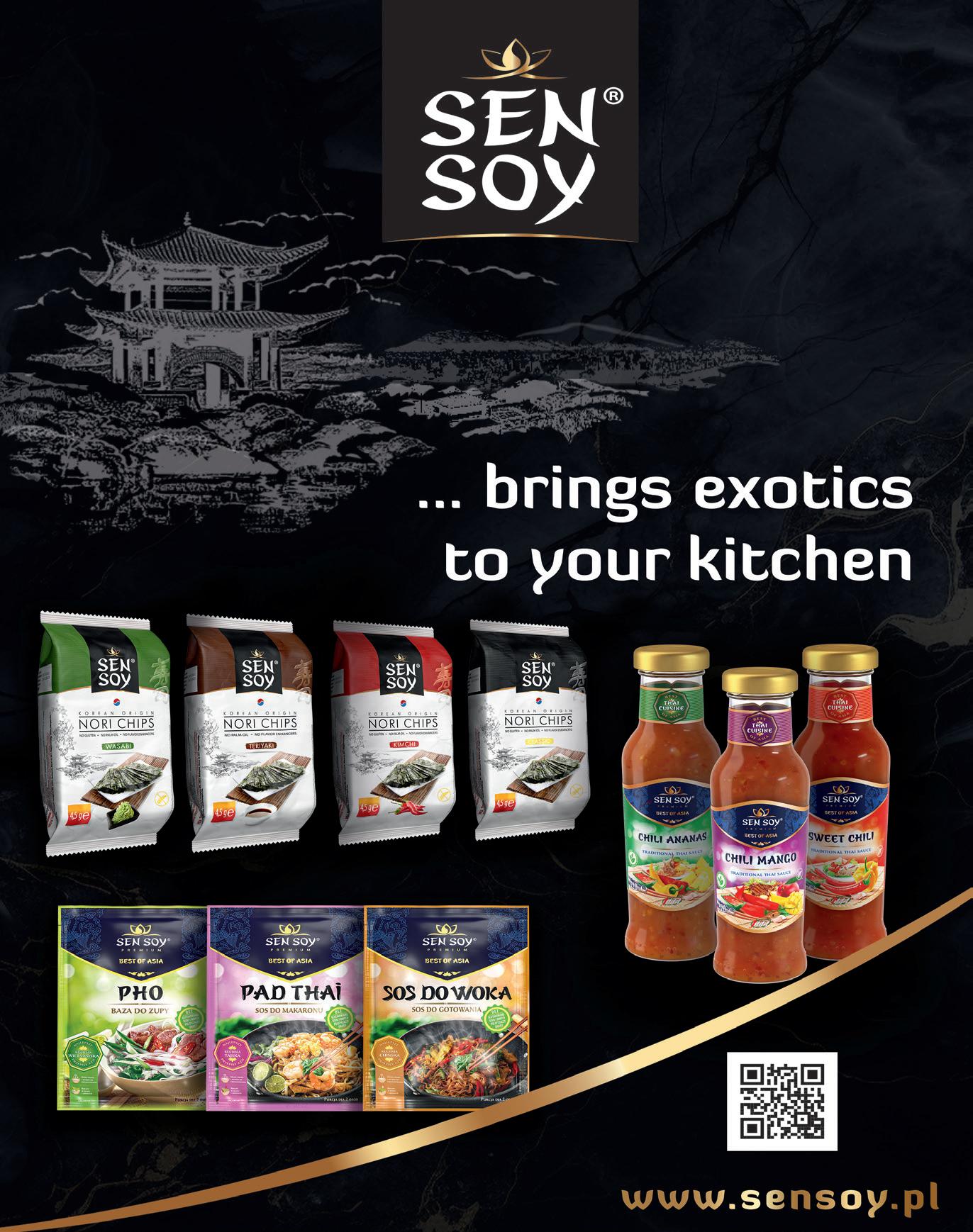

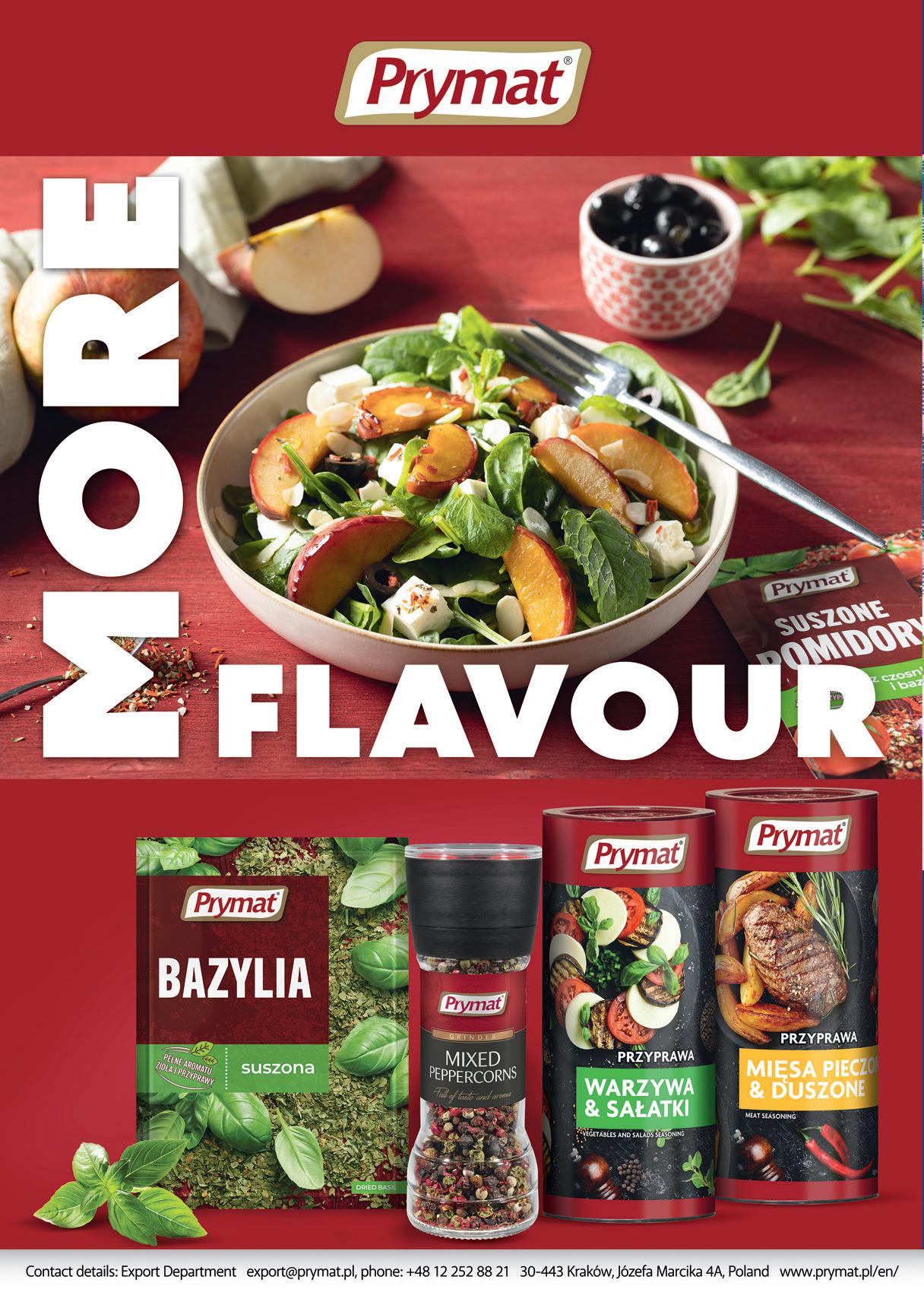
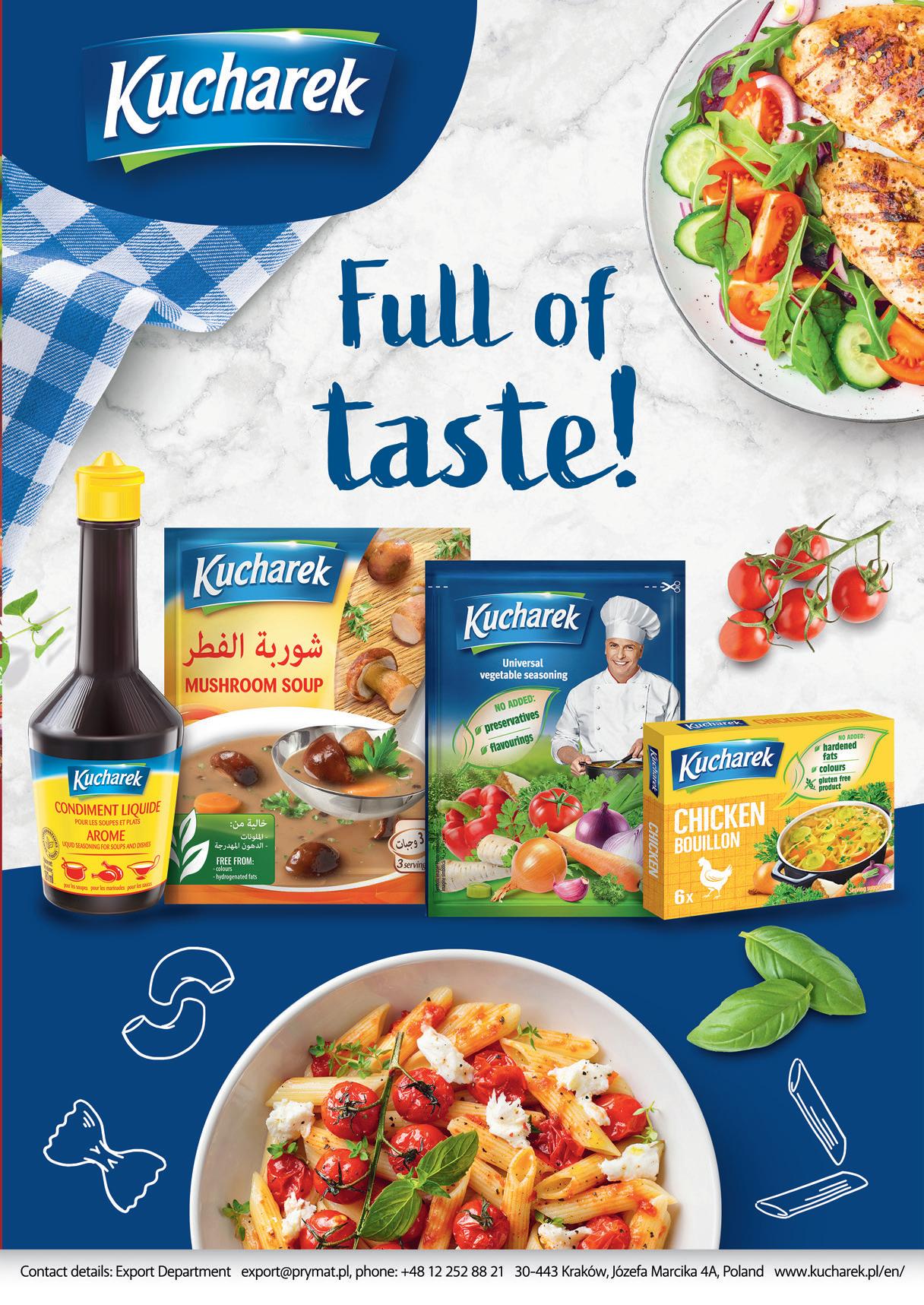

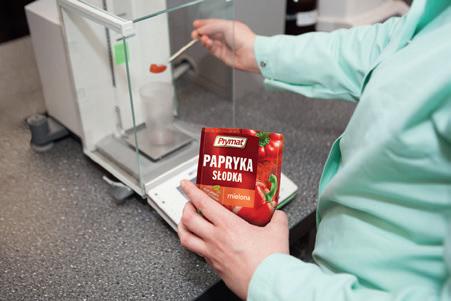
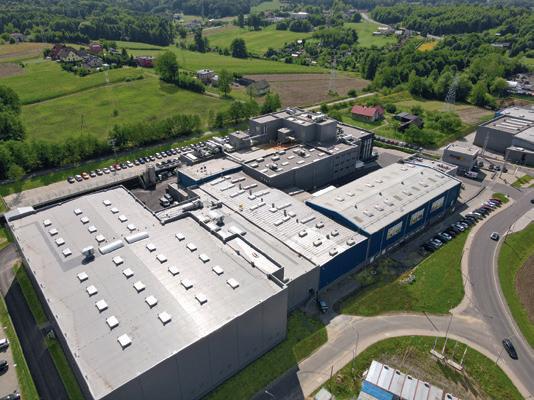
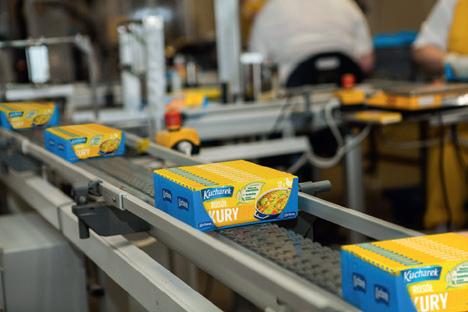
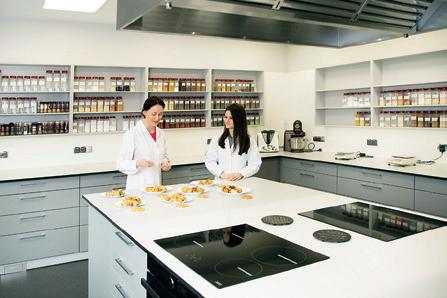





“The growing trend for healthy nutrition has consumers scrutinizing food labels, opting for products with short ingredient lists. Retailers need to prioritize these demands to stay competitive.
 Monika Górka, Deputy Editor-in-Chief
Monika Górka, Deputy Editor-in-Chief

The trend for healthy nutrition is growing continuously. Therefore, the offer of products contributing to everyday self-care is important in every store. Consumers are reading the labels increasingly and are filling their shopping carts with products which have the shortest ingredient lists possible, guaranteeing the best choice.
On store shelves, we increasingly look for products with less sugar, or sweetened with such ingredients as stevia; plant substitutes for meat, lactose-free dairy, or gluten-free snacks are also gaining popularity. The composition matters as well, so food labels are under close scrutiny of the buyers.
We choose low-fat products, eat less meat,
more vegetables and fruit, we avoid highly processed foods, fast food, or unhealthy snacks and “empty” calories. The rule is simple: healthy eating means healthy buying.
What should a retailer do then? The way is to expand the shelf with products sought after by conscious consumers. Introduce fresh fruit and vegetables to stores, especially seasonal ones, make sure that customers, during their everyday shopping, also find products with health-promoting properties, in a fit version, or with a short label and will not be forced to look for them in specialist healthy food stores.
The idea of clean label and promotional actions based on this concept fit into the growing interest in health and wellbeing, and also respond to the needs connected with simplicity of choice and quickness in making shopping decisions.
Analysis of Mintel’s consumer data shows that respondents in Poland usually mention naturalness of ingredients as the leading shopping attribute within food categories (42%), with the following positions occupied by: a source of vitamins and minerals (37%) and low sugar content (32%). “Furthermore, it is worth stressing that almost a third of all Poles (30%) claim they are confounded by too much information on foodstuff packages. The percentage of positive answers is growing with age, reaching as much as 50% in the 65+ group. Therefore, further streamlining actions are necessary, in the context of both recipes and communication – such actions are of particular importance from the viewpoint of the needs of more mature recipients,” adds Honorata Jarocka, Principal Analyst at Mintel.
The data from Mintel’s Global New Products Database (GNPD) show that over the

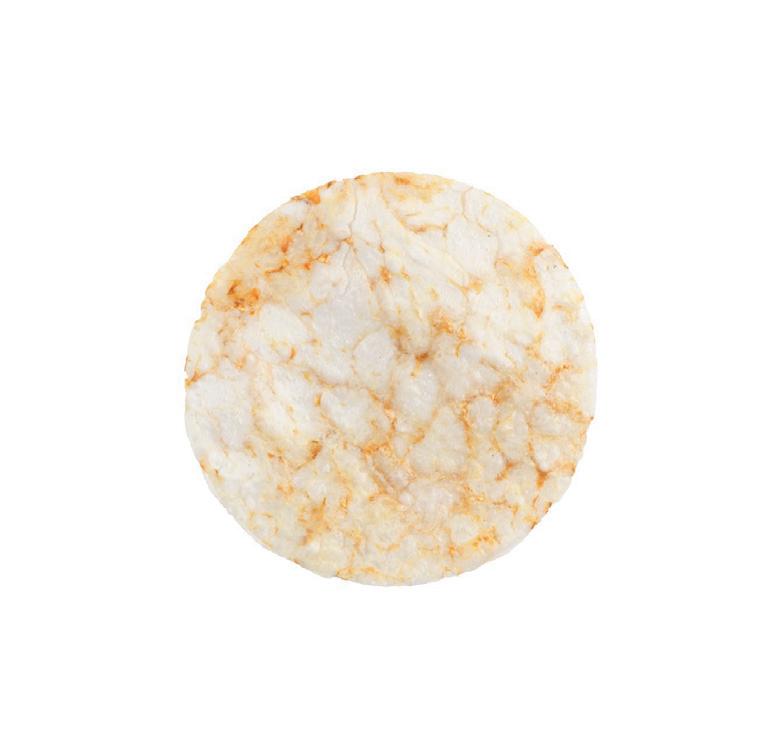

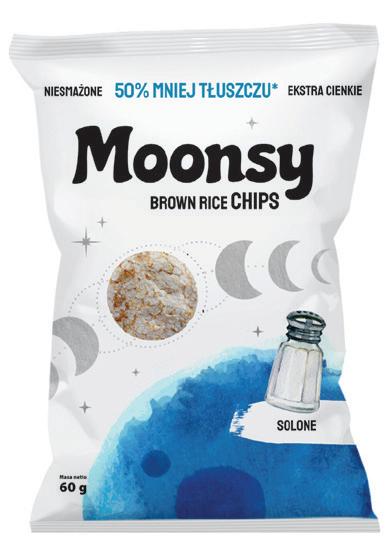
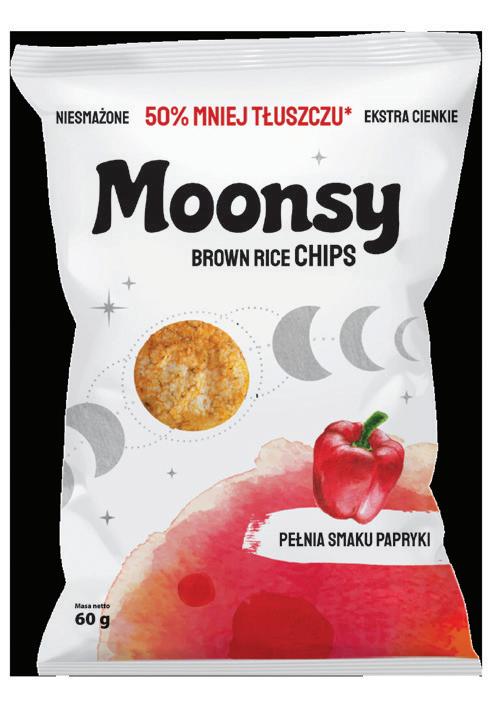

last year (May 2022 – April 2023), 16% of new Polish products in the category of food declared lowered/zero content of allergens, whereas 14% of them had a “vegan” statement. Similarly, packages of 14% of new products stressed information on absence of additives/preservatives. On the other hand, 13% of new products introduced in the period under analysis bore the “organic” statement; 13% of them were gluten-free as well.
Honorata Jarocka sums up that, considering the consumer needs, there is further potential for investments aimed at simplicity and naturalness – with emphasis on simple and easily understood ingredient lists, as well as the offered benefits. These should be clear messages the number and complexity of which fits the “less is more” principle.
As a healthy alternative to meat products, all sorts of their plant substitutes are often perceived – the growing sales of this category is ensured, above all, by discount stores. Such outlets have generated a turnover of as much as 69% of the entire category in 2022, while hypermarkets accounted for 15%, and super-
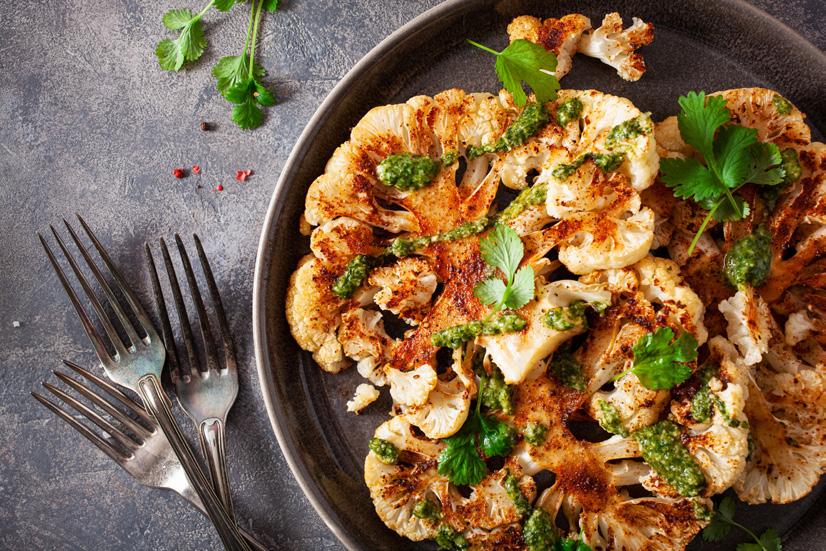
markets as well as small-area stores up to 300 m2 – for 8% each.
Today, plant substitutes of meat, such as hummus, vegetable spreads, kabanos sausages, meatballs, burgers, etc. can be found in 4 out of 10 of all stores in Poland, whereas discount stores are where such products are definitely easiest to find.
Nikodem Pankowiak, Sales Data Analyst at CMR, says that the sales value of this category in 2022 at all stores in Poland grew by as much as 35% in comparison with 2021. The fastest growth rate is demonstrated by vegetable cutlets and meatballs, the sales value of which has almost doubled over the year. Other categories growing at a fast pace
include vegetable burgers. However, it is still hummus that accounts for almost 40% of the sales value of the entire category.
It is worth noticing the prices of individual plant meat substitute categories are growing at a definitely slower pace than of their meat counterparts, often not even reaching the inflation level.
“However, one should still keep in mind that, in comparison with meat categories, plant substitutes remain a niche category. For instance, vegetable kabanos sausages in 2022 only comprised 2% of all kabanos packages sold at stores in Poland – a result almost identical as the year before. Which should not be surprising; the larger a locality, the more interest in vegetable products. Thus, in localities with up to 10,000 inhabitants, plant kabanos sausages only comprised 1% of all sold kabanos packages, whereas in the 6 largest cities in Poland, they accounted for more than 3%,” Nikodem Pankowiak adds.
Inflation and growing prices do not discourage Poles from reaching for ecologic products. Quite the opposite, the interest in
Today, plant substitutes of meat can be found in 4 out of 10 of all stores in Poland.
The sales value of plant substitutes category in 2022 at all stores in Poland grew by as much as 35% in comparison with 2021
such foods, cosmetics and clothing is maintained. This is evident from consumer polls conducted by shopping malls: Nowe Czyżyny in Cracow and Nowe Bielawy in Toruń. Both venues asked their customers about their current attitude to eco products. As much as 75% of customers shopping at malls declared that their baskets regularly include goods marked by producers as ecological or bio. In this group, 84% usually focus on foodstuffs.
The reason? 65% believe such food is healthier. 25%, on the other hand, choose it due to better quality, and 20% – for the sake of the natural environment. For 16%, it is a significant component of everyday diet, whereas more than 10% claim eco and bio foodstuffs are simply tastier.
Marta Drzewiecka from Greenman Poland stresses that a significant increase in consumer awareness has been noticed over the last 5 years, especially with regard to the foodstuffs that are leading in the shopping
eco-trend in Poland today. “The Polish people do their shopping with increasing responsibility. They pay attention to the origin of the goods, their composition, the awarded eco-certificates that, according to claims of the Polish Chamber of Ecologic Food, have


already become important to more than 74% of the shoppers, as well as to whether the purchased product has been manufactured in a sustainable manner, i.e. with no harm to the environment and ecosystem,” she adds.
This consumer trend will undergo fur-
ther development. Especially that inflation does not make people abandon the purchases completely. As we can read from poll results, almost every third person purchasing foods marked as eco or bio only intends a slight reduction of expenses on such products. Almost 30% do not plan on changing anything in their habits.
The study of the National Nutrition Test of Polish People in 2022* shows that consumers usually have meat meals (31%), balanced in accordance with the food pyramid (20%). Importantly, 46% of meat-eating Poles consider reducing meat in the near future, with 5% strongly determined to do so. People deciding to take a vegetarian or vegan diet mention three major reasons: they feel better on a meatless diet (44%), they do not want to contribute to the killing of animals (41%), they care for the environment (28%).
Most Polish people control the content of foodstuffs they purchase. It turns out some ingredients particularly discourage the Poles from buying. They include preservatives (e.g. sodium benzoate, sulphur dioxide, etc.), as well as palm oil, discouraging slightly over a half of all Poles, as well as flavour enhancers (such as sodium glutamate) – discouraging 47% of people from purchase. Sugar discourages 38% shoppers from buying a product, the percentage against any E additives is 34%, and for the addition of salt, it is 13%.
During grocery shopping, the most important thing to Polish people is the content of products (declared on average by 55% of the survey) and their price (important to 43% of the survey). Factors with much lower impact on shopping decisions include the appearance of the product and the country of
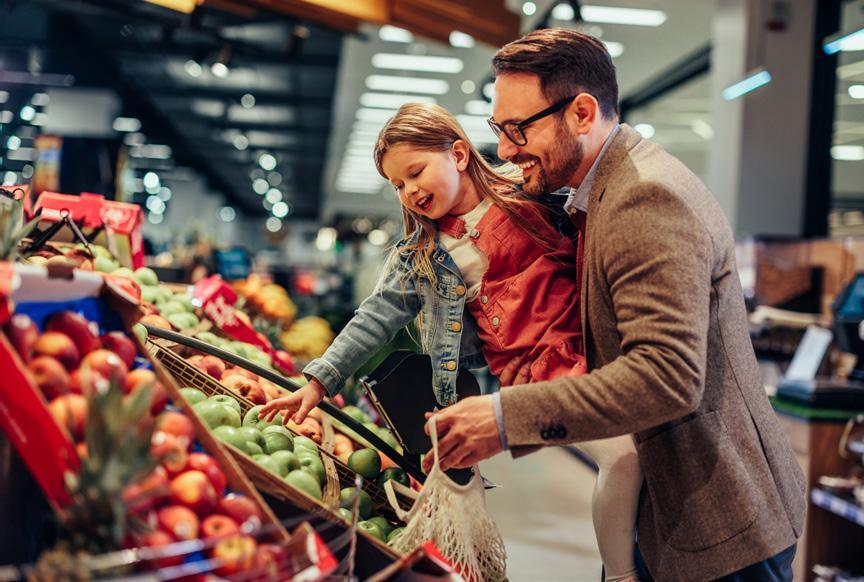
origin. 16% of people had difficulties stating to what they pay most attention while shopping. These preferences do not differ much between genders. The higher the age, the lesser the role of the product price in making shopping decisions. On the other hand, the role of the country of origin of a product is distinctly growing.
The health aspects of food gain on importance while shopping. The Poles know the essential “healthy” principles to follow when choosing a food offer. They know proper nutrition starts from a properly made shopping list, and consequently – from conscious shopping.
46% of meat-eating Poles consider reducing meat in the near future, with 5% strongly determined to do so.
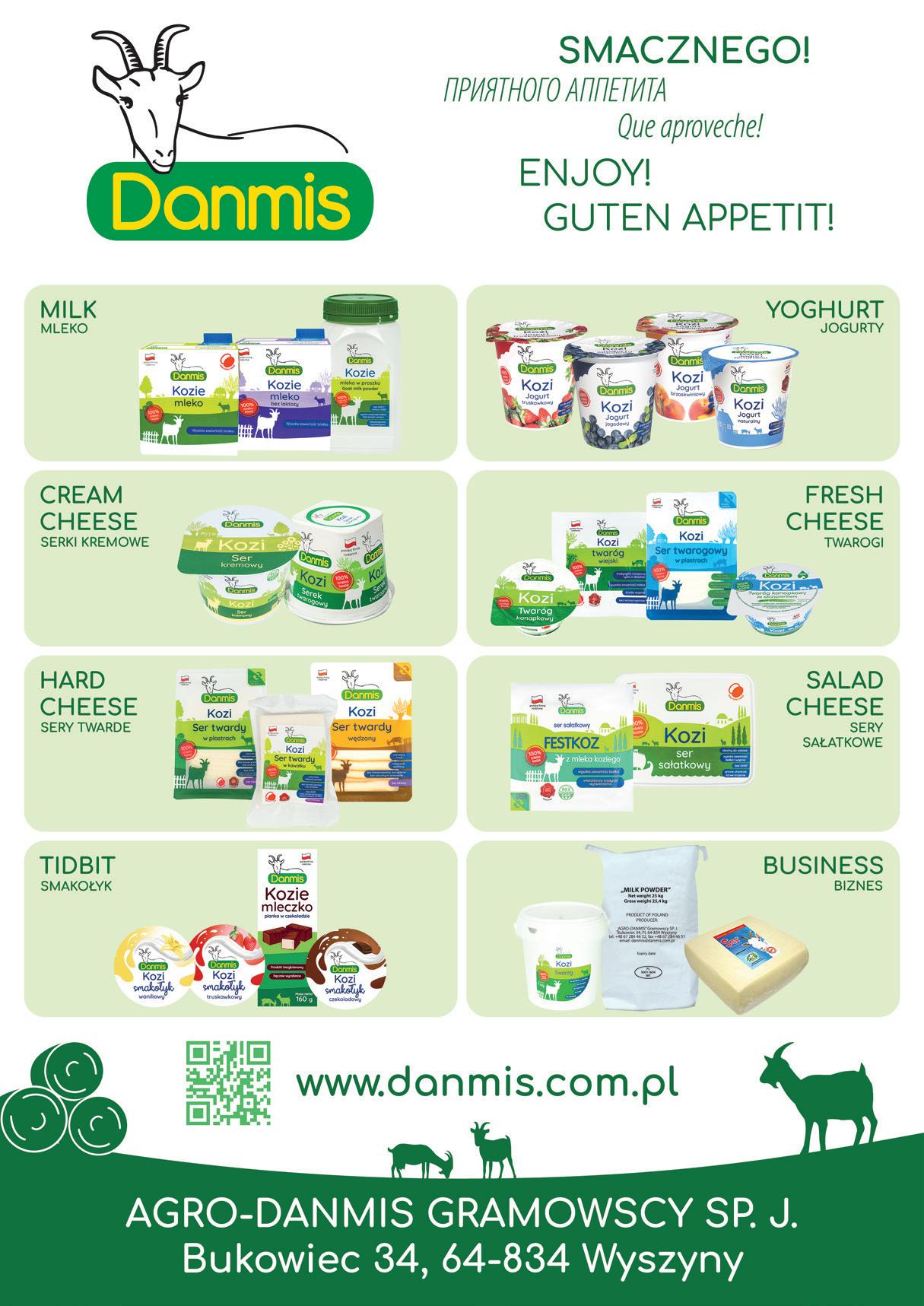
Wojciech Ryttel, Member of the Board at MAXPOL, offers a deep dive into the intricacies of organizing international fairs, touching upon evolving stand designs, the challenges of the pandemic, and the unwavering focus on customer satisfaction that has been a company creed.
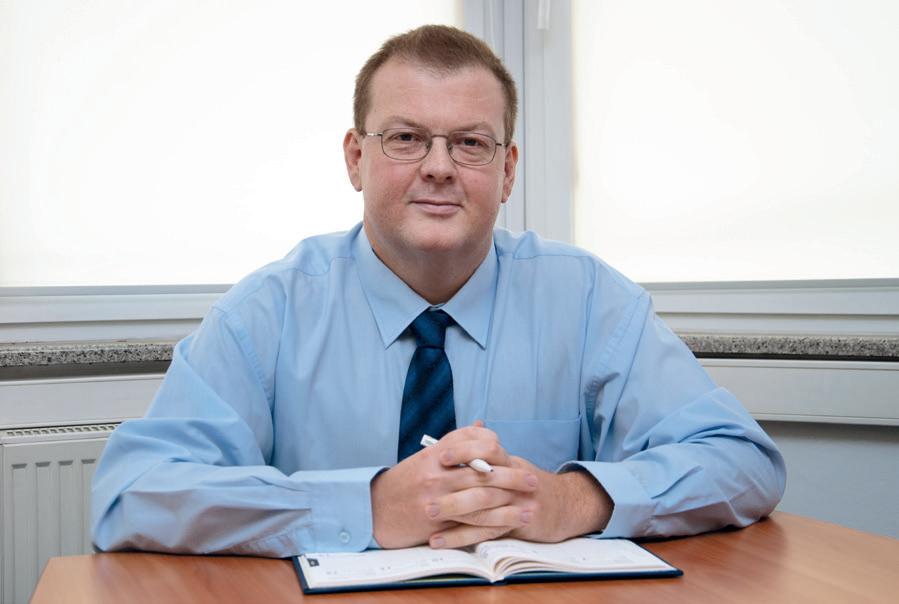
You have already been operating on the market for 33 years –please give us a short summary of the recent years. How has the company’s approach to the customer changed, what changes have taken place in the customers themselves and their expectations?
Time passes quickly, it was not long ago that we spoke about having our 30th anniversary behind, and now, 33 years have passed – as this is how long we have been functioning in the fair industry. I will remind you that our company was established in 1990. Our current business profile includes organizing the participation of Polish companies in international fairs and exhibitions abroad, as well as the organization and service of conferences, meetings, conventions for presentation purposes. For more than 18 years, we have also been involved in the arrangement of exhibition stands, offering our exhibitors standard or custom arrangements in accordance with designs prepared by our designers or with a given exhibitor’s design. For many years, we have offered our exhibitors a full package of services from which, obviously, the exhibitor is free to choose. The package includes services related to rental of exhibition space, handling matters connected with the media or company accreditation, entry in the catalogue, as well as all sorts of matters related to entry permits, parking cards or transport of exhibits to the fair and delivery thereof to the stand. These are our
services in a nutshell. The question was whether anything has changed in our operations over the recent years. Many new, very prestigious fair events have surely appeared, as shown by our fair schedules. Customers themselves decide to choose foreign fairs depending on their search for new markets – often in very remote regions of the world.
Since the beginning of our company, customer satisfaction has been our creed. The professionalism of customer service in our company is high. We have helped companies to choose their participation in industry fairs, we are at the customers’ disposal, we treat them seriously, we think ahead and help our customers, and nothing in this area has changed over the years.
Customers, on the other hand, have growing requirements and expectations, which only provides us with more possibilities to show our professionalism.
How does the market of the exhibition industry look like after the pandemic and what is the international situation in this regard?
I think we all wish to forget the pandemic and may it never happen again. To the exhibition industry, it was a blow, since all fairs were closed, domestic and international alike. We found it hard to survive
those 18 months. Many of our colleagues closed their companies, unable to stay afloat and having no alternatives to keep their employees hired. I can boldly say we have managed not to fire anyone and keep the same number of personnel as we had had before the pandemic. It was a very severe period for the Management Board. We all waited for the so-called unfreezing of the industry so we could get back to work. And finally, it happened. Our exhibitors waited as well. For them, that break was even more painful, as they could not meet their customers and consumers. Just like us, they waited for the fairs to unfreeze. Consequently, the participation in fairs saw an increased number of exhibitors, not just in Poland but worldwide. Fairs did not unfreeze at the same time but in turn, on different dates. Now we can only say most of our fairs are sold out, often a year in advance.
No, definitely not. Meeting a contractor face-to-face is a different thing than handling affairs by email. When we asked the exhibitors for their opinions, all of them said that just a meeting at a stand at a fair, where you can see the goods and take a closer look at them, ask any necessary questions about the product and discuss the price, gives a good effect. Many exhibitors also said that meetings establish cooperation and awareness. Knowing who you will be speaking with in the future brings a much better effect for placing of orders and for new contracts.
For producers, participation in fairs is a profitable investment. What can you do to increase interest in your stand and company at a fair?
I suggest you visit our website to see how we build stands and how companies present themselves at fairs today. Companies which are just beginning their participation tend to show their products at stands with standard arrangements. The ones that have already taken part in many fairs enrich their stands with custom arrangements, often expanding the area as well. It is largely up to exhibitors how their fair stand look like. Of course, we provide advice, and we design, after receiving introductory guidance concerning the stand’s colour scheme and the product itself. Currently, the simpler the stand, the smarter it is, and it makes the goods play a key role. We try to advise the exhibitor on which materials or lighting to use to exhibit the goods in the best way possible. We also ensure the exhibitor gets his products at the stand in time so as to unpack and arrange them on arrangement day –a day before the official opening of a fair.
Please remind our readers what fair events are ahead, what is planned for this year and which events will be particularly important to Polish companies this year.
Speaking of food industry fairs, the largest event this year will be the ANUGA fair which will take place in Cologne between 7 and 11 October. It is one of the largest food industry fairs in Europe, attended by companies from all around the world. We will service several dozen Polish enterprises there. We are very curious about how companies from Poland will look like against global ones. Furthermore, we will also have the FINEFOOD fair in Australia and ISM Middle East in Dubai this year. We invite you to participate. As for the next year, one cannot forget the ISM confectionery fair in Cologne or IFE in London, Sial in Paris, and PLMA in Amsterdam. Please visit our website where we show our entire schedule of fairs we will be able to organize for you.
Can we ask you for some universal advice to small and medium Polish companies that wish to stand out internationally?
Certainly. First of all, choose the fair in which the company wants to exhibit, upon previous contact with our employees who will advise you which fair will suit your products best. Secondly, develop a detailed strategy of procedure regarding the fair. Prepare a good stand design to enable good and efficient presentation of the product. Prepare a catalogue of products the company is to sell on the given market. Select an appropriate entry about your company for the fair catalogue – our employees will be helpful here as well. Ensure the appropriate layout of the goods at the stand’s exhibition. We will advise you how the stand should look like to attract the customer’s eye so he can freely enter the stand and ask about anything.
Why is Maxpol worth choosing as your partner and fair organizer?
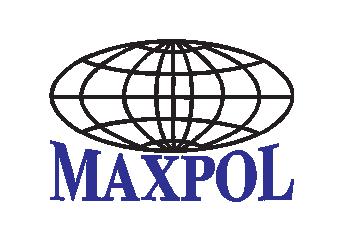
I would be immodest if I said we are one of the best companies involved in the organization of international fairs. An exhibitor served by us can forget about the hardships of handling affairs connected with his participation in the fair. The professionalism of customer service at our company is high. We help companies choose their participation in industry fairs, we are at the customers’ disposal, we treat them seriously, we think ahead, we solve and prevent problems on an ongoing basis, we provide comprehensive customer service. We are a company appreciated by the Polish Chamber of Exhibition Industry of which we are a member. Our operation has been positively rated and rewarded with a prestigious title ‘Leader of Exhibition Services’. We also hold a recommendation of the Polish Chamber of Exhibition Industry.
Most of all, customer satisfaction has been our creed since the inception of our company, which is noticeable because the number of our exhibitors is growing year by year and the group of regular customers is broadening. We look into the future with optimism.
Thank you
Monika Książek
As early as the first years of their existence, franchise chains assumed they would be able to compete on an equal footing with large, international trade associations. Years later, this goal has been achieved.

Competition from large-area and discount stores has made unassociated traditional trade unable to match the offer of so-called modern distribution channels in terms of price. Such a situation simultaneously accelerated the formation and development of the still new franchise-based trade chains. These quickly proved largely able to withstand not only price competition with discount stores but also – or above all – competition in terms of quality and customer service.
A strength of hypermarkets and discount stores at the first phase of their functioning on the Polish market was the scale of purchases
performed by those chains. It enabled them to obtain favourable trade conditions from manufacturers and suppliers, particularly in terms of price and promotions, which traditional stores were unable to achieve, whether individually or through purchasing groups comprised by relatively small numbers of trade outlets, or through fledgling franchise chains.
However, as franchise chains comprised by as many as several thousand stores developed on the Polish market over the years, it became possible for traditional outlets associated in such chains to procure goods at prices comparable to those offered by discount stores. Especially that franchise chains also started developing their private labels and improving the quality of such goods over the years, modelled
after what discount stores did. Such brands comprise a significant part of Biedronka’s or Lidl’s offer until today.
Given that the so-called modern trade’s possibility to take advantage of its dominating position with regard to suppliers and manufacturers has been limited by law, it turns out that the price advantage of discount stores over the largest franchise chains has been, in fact, almost completely levelled over the recent years.
“Currently, we are facing a situation in which discount stores are building their position in relation to the customer on the basis of promotional activities covering a narrow group of 2-5 products, whereas other products offered at the store have similar prices as those offered by associated franchise chains. Our
Franchise chains started developing their private labels and improving the quality of such goods over the years.
Witold Nartowski, Editor
complex organisation of trade fairs around the world designing stands for individual exhibitors and national groups preparing and assembling stands
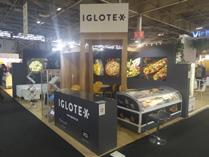
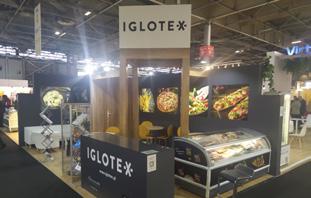






forwarding and customs clearances flights and accommodation bookings
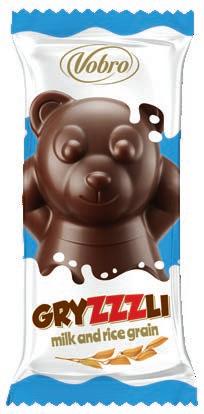








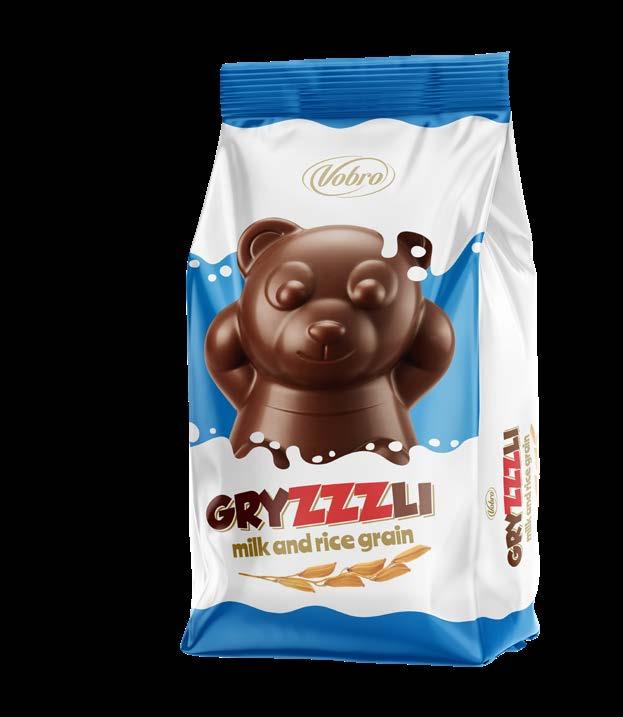




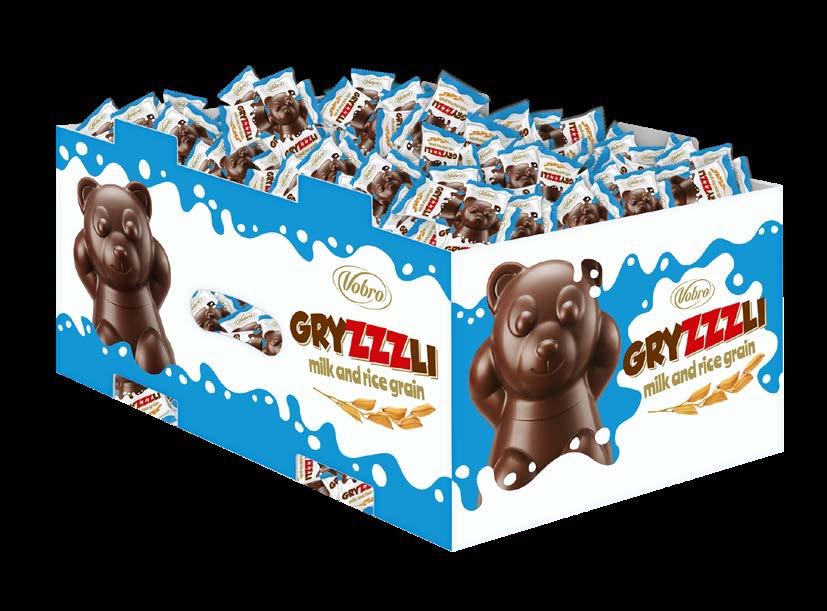


chain also conducts such ‘point’ promotions through leaflets, billboards, or posters, while the remainder of our offer has prices similar to those in nearby discount stores. Suffice it to say that before Easter, our leaflet offer of Winiary mayonnaise was the most price-competitive on the market, due to which we might have recorded a record-breaking sales level of this product,” says Marian Zych, the General Director of Livio, one of the largest chains on the Polish market.
Major franchise chains are connected with large wholesale distributors. Lewiatan, Delikatesy Centrum, Groszek, and several others have ties with the Eurocash Group. Nasz Sklep, Livio, or Rabat Detal are connected with the Specjał Group. The broad chain, Chorten Group cooperates with several significant distributors, while preserving full independence. On the other hand, gone are the days when it was food wholesale that created a franchise retail infrastructure guaranteeing the sales of products acquired from suppliers and manufacturers. Currently, its goal is not so much to guarantee its own sales and profit but, above all, to ensure the functioning of traditional distribution through franchise chains without which wholesale would largely become irrelevant. As a result, wholesalers frequently bring their margins down to the necessary minimum, improving the condition of associated traditional trade and allowing them to compete with discount chains.
Therefore, in recent years, most franchise chains have fared excellently in price competition against modern channels of retail distribution. It is worth keeping in mind that traditional trade, including entities associated in a franchise structure, has natural possibilities of efficient competition against large trade chains. The latter, with their central management, are unable to offer their customers a rich selection of fresh products, often procured from local suppliers. The freshness and local nature of an offer corresponds to the needs and expectations of local consumers putting traditional outlets at a distinct competitive advantage over discount outlets. Bread from a local supplier, cheeses and cream from local producers, vegetables and fruit from nearby orchards and gardens, and above all, cured meats, most appreciated by local customers – these are products that may largely decide the success of a traditional franchise store.
Such an advantage is fully utilized by franchise chains. “Meat counters in our stores appeal to Livio customers much more than the offer of the nearby Biedronka shops. We offer top-quality fresh products, largely from local
suppliers, so, in fact, our assortment is better adapted to local needs than those in centrally managed discount stores,” Marian Zych tells us.
When one adds the increasingly better quality of franchise chains’ private labels (naturally less expensive than their counterparts among the so-called branded products), discounts lose another aspect of their competitive advantage. For producers, including those supplying private labels to franchise stores, this is an opportunity of marked differentiation to their portfolio, resulting in greater flexibility of price negotiations concerning supplies of other products into franchise chains.
In spite of the growing competitiveness of franchise chains, the number of stores discontinuing their operations remains high. One should be aware of the difficult times in which retailers are forced to conduct their business. Increased store operating expenses – above all, the increased prices of energy, fuels and labour – make traditional trade outlets see their future in dark colours. However, retailers associated in a franchise may count on the chain’s support even in such difficult situations. This is why many trade outlets are still functioning, despite extreme external conditions. Such a collective operation also evidences the competitive strength of franchise chains on the Polish retail market.
Our chain already includes more than 900 stores across Poland. Stokrotka is dynamically developing, and our goal when offering cooperation in the franchise format is to create conditions for equally quick growth of the partners’ operations. Watching the current situation and needs of the market, we propose different variants of financial support. A part of the assistance to new franchisees is co-financing provided for the startup of operations. However, Stokrotka’s support accompanies the partners at each stage of cooperation, including the supply of products at attractive prices, proven operational standards, or marketing actions. We also hold training programmes for franchisees, so our partners may be persons who have already been running a store, as well as those who only wish to start their operation in this sector.
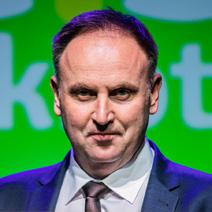 Mirosław Wawryszczuk Sales and Marketing Director, Member of the Board, Stokrotka
Mirosław Wawryszczuk Sales and Marketing Director, Member of the Board, Stokrotka
Major franchise chains in Poland are connected with large wholesale distributors.
stresses that even today, an optimally organized supply chain helps obtain purchase prices low enough to make a chain competitive in terms of price, even against discount stores. Especially that the price policy of the latter is based on offering the lowest prices only for a narrow group of selected products attracting the customers. However, if one takes a look at a broader scope of products, prices in a franchise chain associating independent retailers can often match up to the offer of discount stores. And in the case of Rabat Detal, the categories in which the chain has the strongest position and can negotiate the most competitive prices are in beer and beverages, these products are even less expensive than in discount chains.
This is how the current reality looks like. However, one should also think about the future and the conditions of preservation of the hitherto achievements, and even about further improvement of the current form of competitiveness. “The preservation of this competitiveness and its future largely depend on the course of competition, mainly on the consumer market, i.e. on the form of the chain’s communication with its customers – starting from traditional leaflets, through posters and information in the media, to digital forms which are currently capable of tying a customer to a chain with the most efficiency,” Tomasz Wilkoń notices.
Specjał Capital Group (which includes Rabat Detal) is at the stage of designing a mobile application for smartphones. This, on the one
hand, will allow consumers to obtain information on the offer and promotions available at the chain’s stores, and on the other hand, will let the store obtain knowledge about its customers, their expectations and needs. Such an application will also enable the consumers to participate in loyalty actions and create a possibility to properly position customers, both of the chain as a whole and in the local aspect.
For some time, similar solutions have already been functioning successfully in discount stores, hypermarkets or supermarkets alike, so it is also necessary to introduce them in franchise chains associating stores of traditional nature. Tomasz Wilkoń admits that the introduction of such a solution will require much effort, mainly in training retailers in the operation of the system, as well as certain amendments and supplementations in the hitherto agreements. However, the benefits seem attractive enough that over time, an increasing group of retailers associated in a chain would be interested in such a solution. “Regarding our application, we are currently at the stage of design, and I predict that at the turn of
Convenience stores under a well-known brand have many tools to compete with hypermarkets and discount stores. Such franchise concepts as Chorten Group offer their retailers training in effective sale methods, remodelling, and improvement of appearance. Most of all, we have concluded more than 700 agreements with producers and distributors, and a vast majority of benefits from such a cooperation reach the store owners. In the struggle for consumers, Chorten stores have many advantages as well. Currently, customers value their time, it is one of the most essential values mentioned in surveys concerning the selection of a place of purchase, and stores such as ours do not require walking across large areas or standing long in queues. Important aspects include a good promotional offer, a wide range of assortment, and products adapted to the needs of local customers. Our market advantages also include direct relations between consumers and the personnel, as well as additional services available at the store.
this and the next year, we will be able to offer it to retailers. I believe several hundred stores will join the system during the first phase, and the number will systematically grow,” Tomasz Wilkoń adds.
Therefore, preservation or even increasing the competitiveness of franchise chains will be enabled by in-depth sale process digitization, also including contacts and communication with store customers. So far, digitization of traditional stores, especially of franchise ones, included, above all, software related to purchase and sale processes, cash registers, cashless payment systems, or retailer training systems. Currently, franchise is facing a difficult task of introducing new forms of customer contacts, which will help a trade outlet meet the tastes and expectations of their customers better and enable the store to acquire information about such needs, and thus to adapt its trade offer, including promotions, to customers.
Similar systems have already been in place for several years in large hypermarket and discount store chains, but when similar forms of digitization of customer relations come into use in franchise chains, the potential advantage of modern trade in this aspect will be eliminated as well. Of course, introduction of such a system in a franchise is more difficult than in strongly centralized chains, yet the experiences of Rabat Detal show this is not impossible. Further improvement of competitiveness of a franchise seems worthy of the efforts taken by the chains.
Sylwia Władyko Vice-President and General Director, Chorten Group
Increasing the competitiveness of franchise chains will be enabled by in-depth sale process digitization.



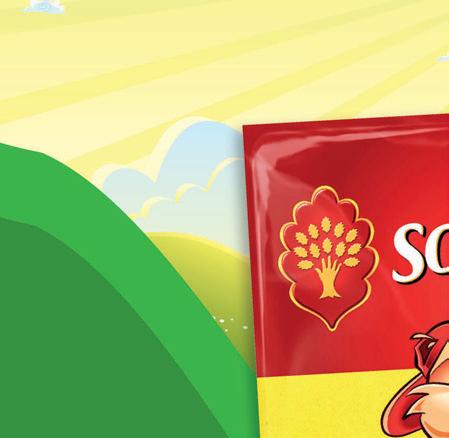
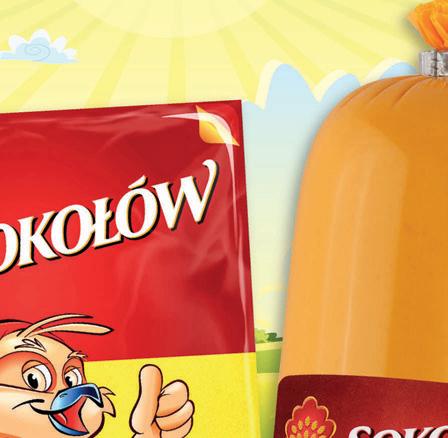
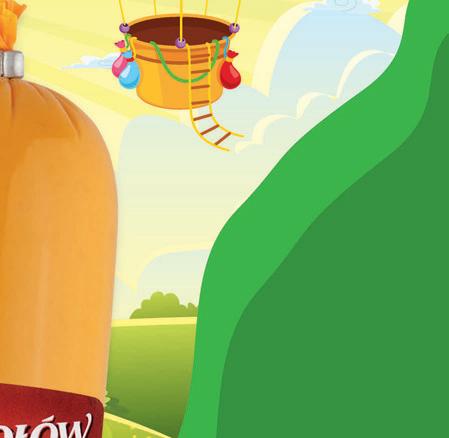
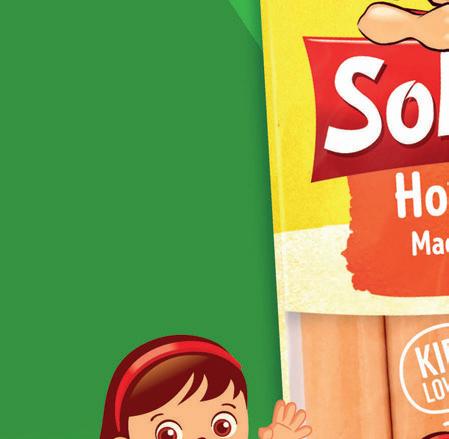

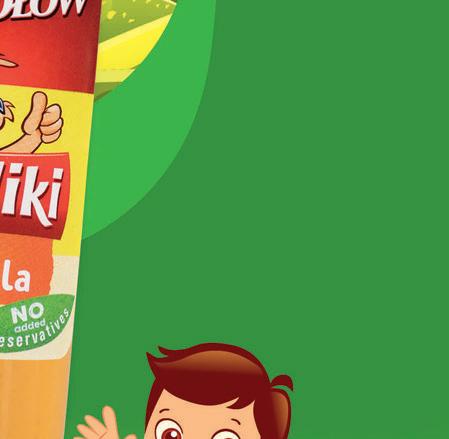






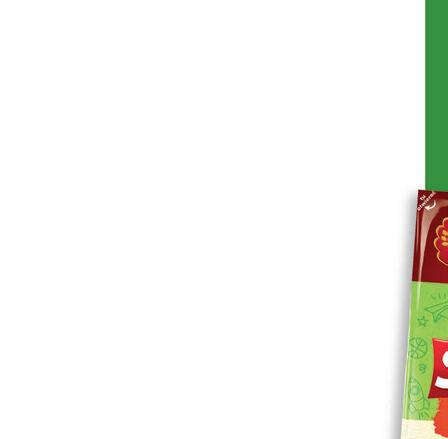



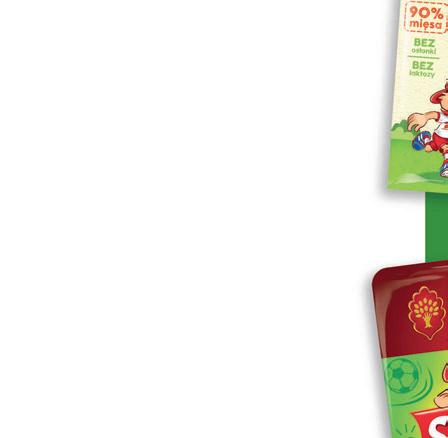


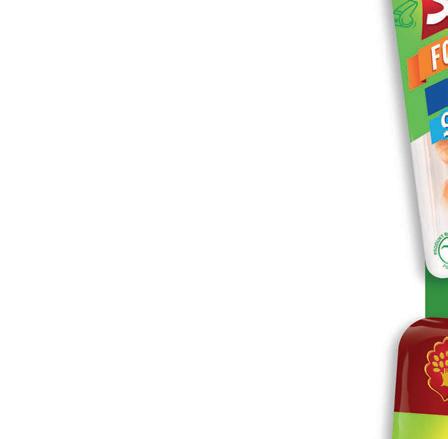




AGRO-DANMIS Gramowscy is the only plant in Poland producing products exclusively from goat milk, with modern machinery and 100% Polish capital. The production plant is fully adapted to the applicable EU requirements and regulations, and complies with the principles of good production practice in the implemented HACCP and BRC systems. Production processes are based on modern technology and the milk intended for production is of the highest quality. The company’s mission is to constantly strive to maintain a high level of quality of the goat milk products offered. To meet consumer expectations, the company introduces new products, high-quality goat milk products to the market, which will guarantee sales stability and maintain the company’s brand on the difficult food market.
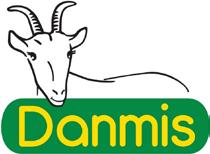
Bogutti is a family company from Poland which specialises in manufacturing high-quality cookies and fudges. The company is thriving and expanding into new markets on many continents.
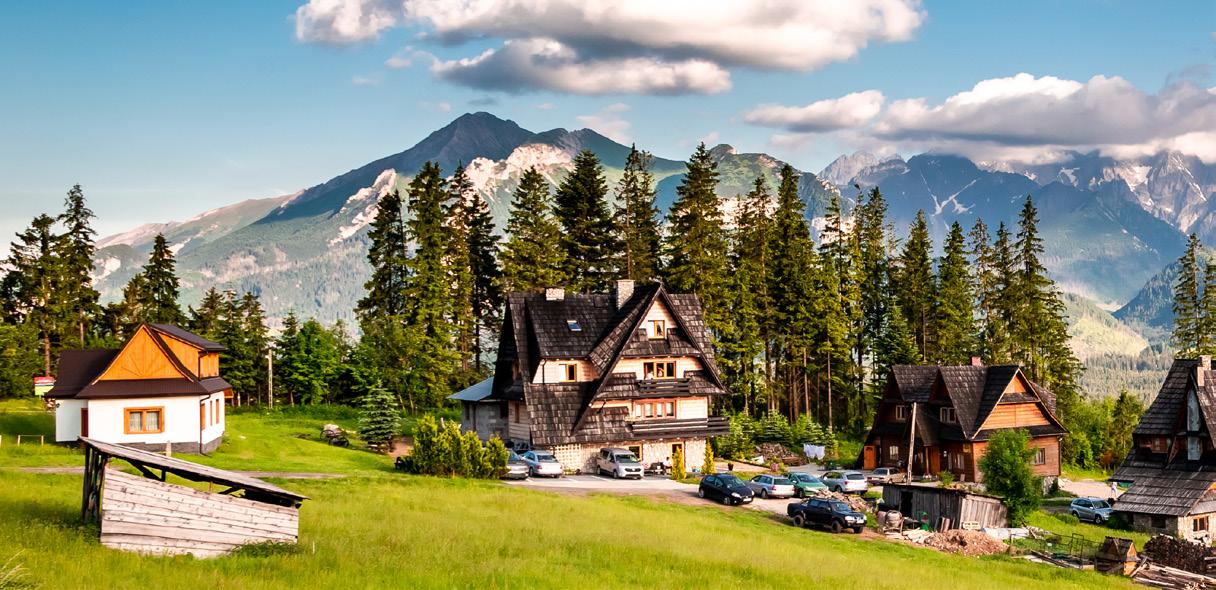
Our sales focus on export, which makes up for 60% of the sales’ value. Bogutti owns brands: La Gustosa, Weeksy, Tweett, Choco Gutti, ChocoFit, Cookies in American Style, Next, Free. It is also the significant supplier for retail chains, both in Poland and abroad. The products are valued for their quality, impecable flavours and also for being kosher and halal.
18 Niepodleglosci Avenue
02-653 Warsaw, Poland +48 500 100 130
contact@bdgroup.eu
www.bdgroup.eu
Brand Distribution Group is an international distribution group, which has been actively operating in the FMCG market for 30 years. It specializes in sourcing and distributing high-quality food and non-food brands. It cooperates with international and local retail chains and manufacturers all over the world. It operates based on its own stocks, modern technology and sales offices located in Poland, Spain, Great Britain, Germany, and Singapore. It employs nearly 200 people and communicates in 16 languages. It creates a modern organization providing its partners with a comprehensive product distribution service, security of transactions and continuity of logistics processes all over the world.
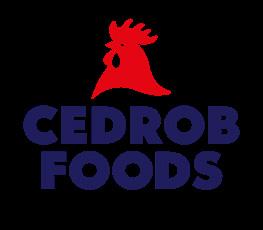
Opolska 22
40-084 Katowice, Poland
Export Director: +48 784 639 222 owczarek.hubert@duda.pl biuro@silesia.eu www.cedrobfoods.eu
Since 2017, our company has been part of the undisputed Polish leader in the meat industry, the Cedrob Group. Our area of activity perfectly fits the policy of the entire group: Controlled Supply Chain at its penultimate link, processing.

Inspired by Taste. Drawing on this motto, we work to rid our customers and business partners of any doubt when selecting cold cuts produced at our facilities. Our rich assortment appeals to various tastes: from aficionados of classic smoked meat to connoisseurs of traditional Polish sausages, pâtés, or galantines. Our portfolio includes ready-made poultry Cedrob product line „Gotowe z półki”.
Kokanin 86
62-817 Żelazków, Poland
+48 62 760 22 22 biuro@elena.pl www.kolagenum.com www.elena.pl
WPPH ELENA is one of the leading domestic and foreign lyophilised food producers. lt is a credible partner both in Poland and in Europe in cooperation with a numerous group of food concerns, especially dairy plants, tea and instant-dish producers, bakeries and confectionaries. Over the recent years it has launched retail packaging products and lines of dietary supplements with natural fish collagen. The preparations include high-quality protein, they are enriched with lyophilised goat and mare milk as well as lyophilised chokeberry and cranberry fruit. Only high quality raw materials are used for production what can be confirmed by various tests and certificates such as: FDA, B10, BRC and KOSHER.
23 Władysława Grabskiego Street
32-640 Zator, Poland
Export Department: +48 33 870 35 71 ext. 106 export@eurowafel.pl www.eurowafel.pl
Eurowafel is the producer of different sort of wafers. Since its establishment in 1984, it has developed over the years by investing in modern machines and innovative technologies.
On the one hand, we base our production on traditional recipes but on the other, we use innovative solutions to develop new productsas a response to constantly changing market expectations.
Eurowafel serves its Clients with high quality products by ensuring product safety according to IFS Certificate.
We use the best flour and only simple and verified ingredients. Combining tradition with the latest researches on health food, we implement new, light and healthly products that can be served in many ways.
25 Serwituty Street
02-233 Warsaw, Poland
+48 22 343 98 70
sales@ewabis.com.pl
www.ewabis.com.pl
Ewa Bis, one of the leaders of Polish food exports for over 30 years.
We are also a part of the Ewa Bis Group, associating 14 companies around the world. We cooperates with partners from over 60 countries from five continents. We have been cooperating with large international manufacturers, distributors, retail chains, wholesalers and B2B partners.
Our offer consists of a wide range of conventional and organic products. In our portfolio you can find the most globally recognized FMCG brands such as: Procter and Gamble, Henkel, Unilever, Mondelez, Nestle; Dairy products; Fresh fruit and vegetables; Frozen food; Fresh and frozen meat;Beverages, NFC juices, juice concentrates and puree.
8 Dzwonkowa Street, 02-290 Warsaw, Poland +48 22 122 18 24 B2B@flavorhub.pl www.sensoy.pl
Sen Soy is a modern Vietnamese brand of Asian cuisine products with over 20 years of tradition. The main distinguishing feature of the brand is the matching of products and flavors to the tastes of the European consumer. Currently, the Sen Soy product line includes many different categories, including sauces, snacks, sushi additives, pasta. The turnover of Sen Soy products for 2021 amounted to over EUR 100 million. Production plants are BRC certified.
14 Słowackiego Street
05-200 Wołomin, Poland
Export Department: export@komododystrybucja.pl
tel.: +48 519 471 955
tel.: +48 22 787 44 62
tel.: +48 22 787 01 76
Internal Sales Department: zamowienia@komododystrybucja.pl www.komodo24.pl
KED Krasnodębski is a family-owned company from Poland that specialises in the production of high-quality energy drinks, mainly flavoured drinks. The company is constantly expanding and gaining new markets on many continents. KED Krasnodębski is a company that produces its own brand under the name: KOMODO ENERGY DRINK. It is also a significant supplier to retail chains, both in Poland and abroad. The products are valued for their very high quality and fantastic flavours. For more information, visit: www. komodo24.pl.

3/5 Czackiego Street 00-043 Warsaw, Poland
+48 22 828 23 89
krd-ig@krd-ig.pl www.krd-ig.com.pl

(KRD-IG) is the largest poultry organisation in Poland. It associates over 100 members from such fields as: farming, breeding, hatching, commercial production of poultry and eggs, processing and trade of poultry meat, its preparations and eggs, poultry feed production, related production, scientific and educational activities associated with the poultry sector. Members of KRDIG have a nearly 70% share of the national market and a nearly 90% share of the export. KRD aims at developing and modernizing the Polish poultry industry, at protecting the interests of poultry farmers and producers and poultry meat processors, their integration, representing the national poultry industry before national and non-governmental organizati ons.
52 Armii Krajowej Street 05-480 Karczew, Poland contact@lodyhela.com.pl www.lodyhela.com.pl
Hela-Prima is a Polish company with traditions in the industrial production of ice cream. Many years of experience, proven recipes and modern technologies guarantee the high quality of our products. We export our products to many countries around the world. We specialise in the production of private label ice cream for Polish and foreign retail chains, but we are also open to individual projects. One of our main strengths is our versatile production range. We produce ice cream on a stick, sandwiches, cones, large volumes and more… We can create a new product or redesign one of our existing products to suit your needs. We love our ice creams and we closely monitor their quality. We use only tested raw materials from approved suppliers and we are certified by IFS quality system and RA.
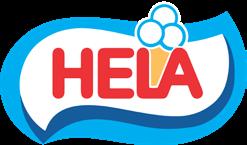
251 Rolnicza Street Dziekanów Leśny
maxpol@maxpol-targi.com.pl
www.maxpol-targi.com.pl
Maxpol is a company with 30 years of experience in the exhibition industry.
Throughout this period, several thousand exhibitors took part in the trade fairs organized by Maxpol. The company organizes fairs in Europe, Asia, North America, South America, Africa and even Australia. Maxpol designs and builds standard and custom stands, provides transport of display units, comprehensive logistic services for fair participants and technical support during the fair. The company holds the title Ambassador of Polish Food Export.

5B Sikorskiego Street 95-015, Glowno, Poland +48 42 710 50 55 export@mitmar.pl
www.mitmar.pl
Mitmar is a manufacturing and trade company, which has been present on Polish and foreign markets since 1995.
It offers a wide range of frozen and chilled pork, beef and poultry meat.
Mitmar deals in cutting and boning of pork heads. Makes MSM and poultry meat. Being a manufacturer can ensure the processing adjusted to the demand on the market and addressed to the needs of customers. Company has a cold store, blast freezing chambers and packaging area, in which it packages range of products under own brand name and logo.
Mitmar is located in central Poland, where A1 and A2 motorways cross. Efficient logistics ensure fast distribution of goods both to customers in domestic, the EU markets and directions such as Asia and Africa.
13 Elewatorska Street
19-203 Grajewo, Poland
Export Department:
+48 86 273 04 44 +48 86 273 04 80 export@mlekpol.com.pl www.mlekpol.com.pl
Dairy Cooperative MLEKPOL in Grajewo is one of the biggest milk and dairy producers in Poland. It has been a leader on domestic dairy market for years and it is one of twenty largest dairy processors in Europe. In 2021 Mlekpol reached 2 billion liters per year in milk purchase. This equals to over 5,5 milion liters of milk per day supplied by around 8500 farmers - members of the Cooperative. Its main product categories are UHT products, cheese, butter, milk and whey powders. Mlekpol’s products are made in 14 modern production plants. They are known by, among others, European, African and Asian countries. Mlekpol’s export sales are growing systematically each year.
3 Ludwik Spiess St.
20-270 Lublin, Poland

+48 81 744 50 50 biurohandlowe@modern-expo.pl
KIÓW
+380 332 78 95 00 kyiv@modern-expo.com
Modern Expo has been a top company in creating modern retail for more than 20 years. It is creating the retail of the future through innovative and bold developments. Modern Expo is 9 high-tech production units specializing in different types of equipment. Its manufacture is one of the most powerful in the world, it provides mass-replication in roll-outs, ensuring products meet European safety and quality standards (EN and FEM).
Modern Expo diverse product range includes parcel lockers, shelving systems, GRAB&GO micromarkets, checkout counters, self-checkouts, refrigeration equipment, warehouse solutions, and more.
265A Katowicka Street 43-450 Ustroń, Poland +48 32 434 97 00 export@mokate.com.pl www.mokate.com
The MOKATE Group is a family business established in 1900 and is comprised of several companies operating in Poland, Czech Republic, United Kingdom, Slovakia, Hungary, South Africa and Dubai which export their products to nearly all the countries in the world.
The company has three production plants, in Ustroń (Poland), Żory (Poland) and Votice (Czech Republic). The turnover of Mokate is now over one Billion zloty per annum, with 60% of sales now originating in export markets. The company employs 1700 people all over the world.
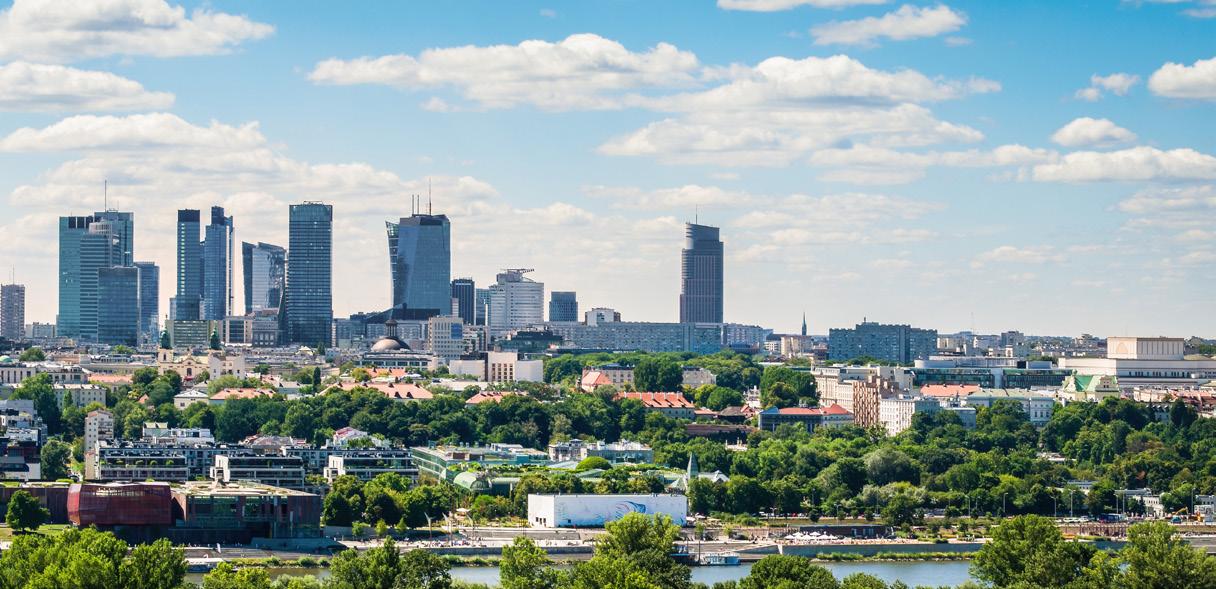
The leading brands in the MOKATE portfolio are: Mokate, Marilla, NY Coffee, Loyd, Minutka, Alpino and Grandma`s Tea.
3 Forteczna Street, 18-421 Piątnica, Poland +48 86 215 64 00 export@piatnica.com.pl www.piatnica.com.pl
Piatnica is a dairy processing cooperative located in north-eastern Poland. With revenue exceeding €500 million, it is Poland’s fourth-largest dairy. Its product portfolio is comprised of over 150 packaged consumer products including cottage cheese, of which we are the largest producer in Europe, cream, yogurt, cream cheese, fresh milk and high protein products. Widely recognized by Poland’s strongest dairy brand, the cooperative holds leading market positions in multiple product categories and is regularly purchased by over 90% of domestic households. Responding to the high demand for our products, we are dynamically expanding our export and gaining recognition from consumers in over 20 countries worldwide.

5 Staniewicka Street, 03-310 Warsaw, Poland www.puh-pilot.com
Pilot International is the wholesale company with over 20 years of experience, which is invariably striving to grow vast selection of offered high-quality products and provide additional services. It specializes in importing and exporting goods to the farthest corners of the world.
The company expands offer every day. It consists of branded food and non-food products, including: Mars, Snickers, Twix, Nutella, Raffaello, M&M’s, Orbit, Lotus, Oreo, Happy Hippo, Kinder Bueno, Ritter Sport, Davidoff, Illy, Kinder JOY, Kinder Country, Milka, Bonibon, Chupa Chups, Bubblicious, Jelibon, Lipton, Nescafe, Jacobs, Hanuta, Pringles, Coca Cola, Fanta, Mirinda, Dr Peeper, Maggi, Schweppes, Monster, Elmex, Colgate, Ajax, Coccolino, Calgon, Domestos, Lenor, Finish, Tampax, Pampers, Always, Bref, Clipper, Fairy, Lego and many other.

Sp. z o.o.
97A Polczynska Street
01-303 Warsaw, Poland
+48 46 861 30 04
kontakt@polskiemlyny.pl www.polskiemlyny.pl
14 Chlebowa Street
44-337 Jastrzebie-Zdrój, Poland +48 32 47 33 833 export@prymat.pl
7 Przelotowa Street
43-190 Mikołów, Poland
+48 32 326 28 31 export@rolnik.pl www.rolnik.pl
Polskie Młyny is a biggest Polish flour producer with 100% Polish capital.

The company includes three mills where produced are all types of wheat and rye flours also in organic version.
Polskie Młyny is only one in Poland which produce semolina durum flour, best for premium quality pastas.
In Tersin Mill we produde also tortill and pita products, fresh pasta and wide range on baking and frying premixes (cakes, breads, donuts, pancakes and many more).
Prymat Company is the leading producer of spices in Poland, supplying products of the highest quality, and the quantity and quality leader in the single spice and spice mix segments, as well as the quantity leader in the overall powdered spice market in Poland, defined as seasonings, single spices and spice mixes. Prymat Company is also a producer of vegetables and fruit preserves.
Prymat has been continuously investing in their plants, machine park, and new technologies and solutions in order to offer products which meet the highest standards. We care about the quality of our products so we work according to recognised quality standards – IFS, BRC, ISO 9001 and ISO 14001.
Rolnik products span the entire spectrum of vegetables the market has to offer. All products are of the finest quality, and their unmatched flavour will satisfy even the most refined tastes. It is the unrivaled savor that has earned vegetables an established leading in the Polish market. Rolnik’s vegetables are highly appreciated by growing customer base. The company is proud of ability to satisfy the growing needs of customers through constant efforts to expand product range and maintain the high quality of products.
58 Przemysłowa Street
43-100 Tychy, Poland +48 32 217 08 38

+48 32 326 46 41
export@sertop.com.pl www.sertop.com.pl

The company SERTOP is one of the leading manufacturers of processed cheese on the Polish market. The company has more than sixty-year tradition of producing high quality products based on proven recipes while maintaining strict quality control. It uses only natural ingredients without any preservatives and colorings. SERTOP offer includes more than 20 flavors of processed cheese in a variety of formats, such as: round boxes, cubes, bars and sausages.
SERTOP sells its products to the Polish market and the markets of the European Union and the United States, Canada, countries of the Middle East, South Korea. The company is certified BRC Global Standard Certificate and IFS (International Food Standard).
22B Bukowinska Street 02-703 Warsaw, Poland
+48 22 521 33 00 fax +48 22 521 33 33 export@sokolow.pl www.sokolow.pl
SOKOLOW S.A. is one of the largest meat producers in Central and Eastern Europe and one of the industry leaders in Poland. The SOKOLÓW brand is one of the most valuable Polish brands, appreciated by consumers, which is confirmed by numerous awards and distinctions. The Group consists of 8 production plants as well as 4 subsidiaries. We produce the highest quality meat, processed meat products as well as plant based products. We offer certified halal production of beef meat and processed beef products. Production is carried out in accordance with the requirements of recognized international standards IFS and BRC. All plants are ISO14001 certified. We export our products to around 40 countries.
27 Krakowska Avenue
Kopana 05-555, Tarczyn

+48 668 881 182 kuba@transad.pl transport@transad.pl www.transad.pl
The TRANSAD company was established in 2006, and since then it has been taking care to meet the requirements of customers. Thanks to the experience the company gained over the years in the TSL industry and is focusing on high quality and professionalism. For many years it has been working on effects that are visible now. The company is able to adapt to almost every customer by offering the highest quality of services and an individual approach. It makes sure that the fleet is always modern and meets the highest standards. It is constantly supplemented with various types of vehicles. TRANSAD offers each client refrigerated transport at the highest level, adjusting the type to individual requirements.
78 Podgorna Street
87-300 Brodnica, Poland +48 56 493 28 51

export@vobro.pl www.vobro.pl
VOBRO was established in 1986. The company employs over 400 people, most of them are long-term employees who present vast experience and have been associated with the production of sweets form many years.
The VOBRO company is known preliminary for its production of chocolate sweets - including chocolate pralines. FRUTTI DI MARE (seafood-shaped pralines), as well as CHERRY PASSION and LOVE & CHERRY (cherry pralines in chocolate) brands are products known to chocolate praline consumers in markets around the world. A large part of the company`s products are chocolate candies and chocolate bars – including the very popular TRUFLA and JAMAJKA brands. For several years, the company has also been investing in other types of sweets: jellies, including new brand JELLY DOT and different formats of bars. The VOBRO brand is a leader in many markets in term of the occasional products offer, i.e. products bought by consumers as calendar occassions (Valentine`s Day, Mother`s Day, Christmas, etc.).
Bolesławiec 12A
62-050 Mosina, Poland +48 61 893 03 04 sekretariat@wielkopolski-indyk.pl www.wielkopolski-indyk.pl
Wielkopolski Indyk is a unique expert in the market of turkey meat. High quality meat means high quality products.
Since 56 years the company has been benefiting from the tradition, while maintaining the craft nature of products and modern technology. Wielkopolski Indyk is a company integrated in a chain from farm to fork. The company grows high quality plants, owns feed-mill, turkey farms, slaughterhouse and modern processing plant specialising in: sliced cold cuts, convenience, sausages, long-ripening, sous-vide.
The quality of products has been appreciated by: HACCP, BRC, IFS as well as HALAL certificate.
2/218 Bagno Street
00-112 Warsaw, Poland +48 22 847 93 67 redakcja@ftgroup.pl www.hurtidetal.pl www.foodfrompoland.pl
FIscher Trading Group Sp. z o.o. is a trade press publisher located in Poland. It publishes HURT & DETAL Magazine (Wholesale & Retail) and Food from Poland Magazine. HURT & DETAL is aimed at Polish retailers, shop owners, FMCG professionals and industry leaders. It covers Polish FMCG sector with a circulation of 70 000 copies per month. Food from Poland Magazine is available during the biggest trade fairs around the world. It emphasises the high quality of finest Polish products and promote Polish food producers.
Fischer Trading Group is also an organisator of numerous, cyclical industry events in Poland.
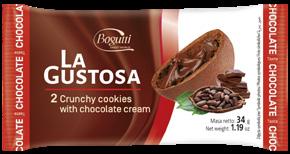

Crunchy cookies with lemon cream.

• 30% cream in one cookie
• High-quality cream
• Net weight: 34 g (2 x 17 g)
Crunchy cookies with chocolate cream.
• 30% cream in one cookie
• 16% chocolate
• High-quality cream
• Net weight: 34 g (2 x 17 g)
www.BOGUTTI.com

Quality of breaded and tempura products prepared by our company have been appreciated on European tables. Our dishes are tasty, crispy and easy to prepare. For freezing we use IQF technology, where we freeze each products seperately and ensure the highest quality of the products.
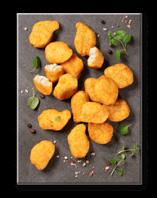

www.WIELKOPOLSKI-INDYK.pl
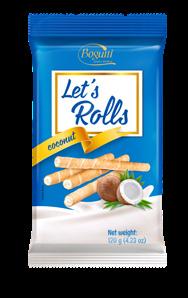
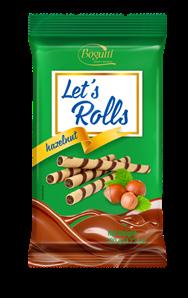
Wafer rolls with hazelnut cream
• Crunchy wafer
• Soft cream
• High-quality cream
• Net weight: 120 g
Wafer rolls with coconut cream
• Crunchy wafer
• Soft cream
• High-quality cream
• Net weight: 120 g
www.BOGUTTI.com
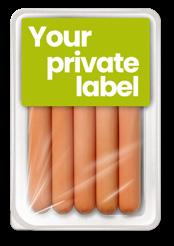
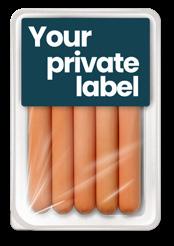

At the customer’s request, we re-pasteurize already packaged VAC products. This technology gives us longer shelf life.
www.WIELKOPOLSKI-INDYK.pl
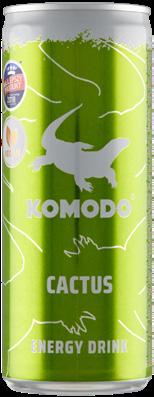
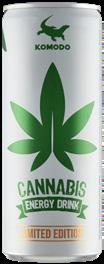
FAMILY 0,25 L
Polish energy drink containing cannabis seed extract (not Indian hemp). For thousands of years, cannabis seeds have been used for medicinal purposes due to their high content of nutrients, including, among others: riboflavin, niacin, pantothenic acid, vitamin B6, vitamin B12, caffeine, taurine (accelerates muscle regeneration), and sodium, which are recommended for increased and intensive physical and mental effort.
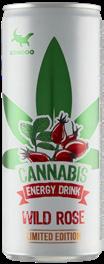
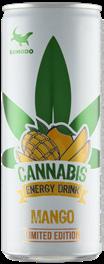
www.KOMODO24.pl
All drinks in the range contain vitamins, mood and concentration-enhancing ingredients. All our drinks become very important during the summer due to their great variety of flavours. Each has its own unique aroma and colour of drink. Our flagship product KOMODO ENERGY DRINK CACTUS is carbonated and refreshing, thanks to its unique combination of stimulating caffeine and cactus fruit extract. Recommended for thirsty people in extreme conditions.
www.KOMODO24.pl
Experience Warming Tea, where the richness of exotic spices like chili, cinnamon, ginger, and cloves naturally warms you up.
With five unique flavors, each cup becomes a delightful winter adventure, perfect for the season’s chilly embrace. Discover the magic of Warming Tea and enhance your experience with a touch of wonder with Loyd.
www.LOYDTEA.com
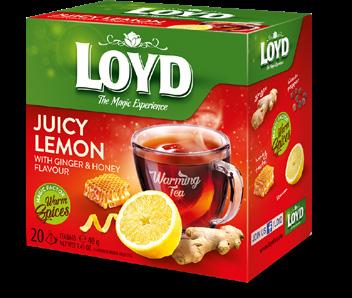


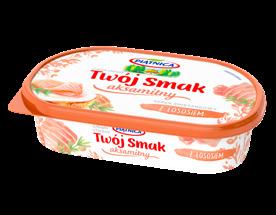
Our delicious cream cheese isdistinguished by a simple, natural composition. Offered in 3 varieties: classic -created for spreading on bread, whipped -exceptionally light and delicate, and velvety -creamy and smooth in texture. Perfect for sandwiches and more!
www.PIATNICA.com.pl
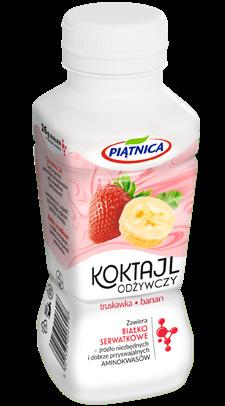
Whey protein drinks are unique products containing fresh, unprocessed whey protein, which serves as a source of valuable amino acids essential for the proper functioning of the body. These products perfectly align with consumer trends related to healthy eating, physical activity, and the fast pace of life. They combine valuable nutritional properties, excellent taste and stand out for their natural and simple ingredients.
www.PIATNICA.com.pl
Immerse yourself in the dynamic spirit of a Big City with every sip of New York Coffee. Enjoy the rich flavours of Cappuccino, Mocha and Latte Caramel, crafted to perfection. Experience the enchanting aroma as our New York Coffee captivates your senses. Love for the city and the environment with eco-friendly cardboard boxes made from recycled paper. Awaken the New Yorker in you!
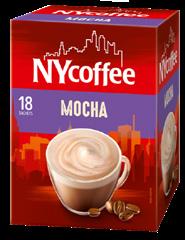

 www.MOKATE.com
www.MOKATE.com
Our Icelandic-style Skyr yogurts, available in two variants, drinkableand spoonable are adored by consumers for their exceptionally delicious taste and high protein content. Drinkableversionmakesfor the perfect on-the-go snack that quickly boosts energy, whilespoonableversion, which combines thick, creamy yogurt with fruit, will satisfy even greater hunger.

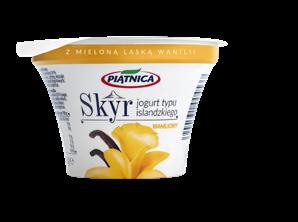
www.PIATNICA.com.pl



Polish poultry meat can successfully compete with the offer of world leaders by: competitive pricing – which you can expect from Polish producers and which becomes the key factor, when the product is of impeccable quality in relation to the price; exceptional quality and taste, resulting from full control of the production process “from farm to fork”; wide selection of poultry products: chickens, turkeys, geese, ducks and other types of poultry, offered as fresh meat: carcasses and different cuts (available also as frozen meat) and offal and preparations.
www.KRD-IG.com.pl
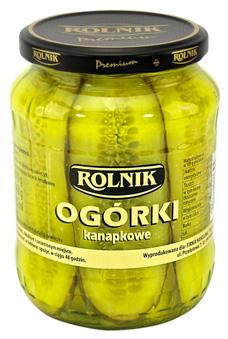
Rolnik Premium sandwich cucumbers are an irreplaceable addition to a slice of bread with a characteristic, perfectly balanced sweet and sour taste. Thin, long slices have an appetizing, green-yellow colour and a beautiful aroma. They are perfectly crunchy, firm and juicy. These cucumbers taste great on a sandwich in combination with your favourite ingredients - salami, cheese, tomato and fresh onion rings. Must-have for burgers and hot-dogs!
www.ROLNIK.pl
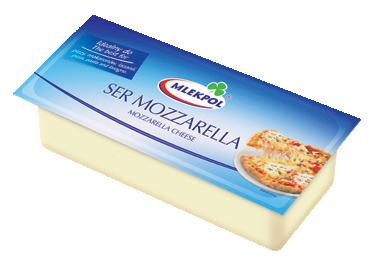
Mozzarella is a cheese with a mild and delicate flavour. It is per fect for baking and, which is distinctive for it, after melting it becomes flexible and very stretchy, which makes it the most popular choice for ma king pizza. In combination with tomato sauce and basil leaves, it creates the classic taste of a timeless margherita, but it also builds a delicious composition with other ingredients. Mozzarella can be used in many dishes, such as casseroles, lasagne and pasta. Mozzarella from Mlekpol provides a unique Italian taste, because the product is made of the highest quality Polish milk from cows grazed in the cleanest regions of Poland. It is also an excellent source of calcium, valuable vitamins and minerals.
www.MLEKPOL.com.pl
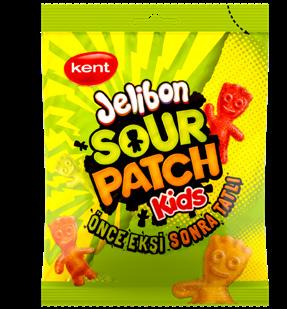
Sour Patch Kids are well-known and beloved sweets in USA since 70’s and now we are happy to have them in our offer! Those little human shaped jellies are perfect mix of sweet and sour. Don’t forget to try them and other available variant – watermelon.
www.PUH-PILOT.com
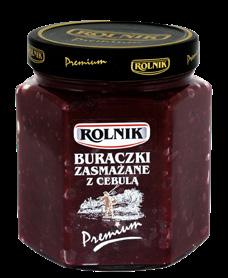
Rolnik Premium sautéed beetroots with onion is the traditional taste of Polish beetroots, sautéed in sunflower oil. The sweetness of beets is highlighted by roasted onion, while freshly ground black pepper makes the taste richer. Beets have been famous for their valuable nutritional values and great taste for centuries. Sautéed in pair with golden, aromatic onion, they are an excellent vegetable addition to meat dishes, especially Polish cuisine.
www.ROLNIK.pl

Whey protein concentrate 80 is a product obtained by the separation of the whey protein from the pasteurized liquid whey in the ultrafiltration process so that the finished product contains at least 80% protein. It can be used as a food additive and is a source of nutritional protein for supplementation. WPC 80 is widely applied in diet foods and in sport nutrition products. It can also be a substitute for eggs in many products. WPC 80 is used in the production of bread, baked goods, soups, creams, sauce premixes and in many types of meat. What is more, it is unflavoured and can be given any flavour or aroma.
www.MLEKPOL.com.pl
Coming fresh from the producer of famous purple wrapped chocolates, Milka Bonibon is a perfect dose of sweetness. Each tube is full of colorful chocolates, which can satisfy everyone, that needs just a little bit of sugar.
www.PUH-PILOT.com
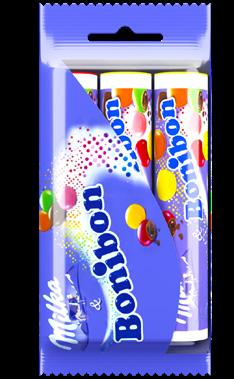
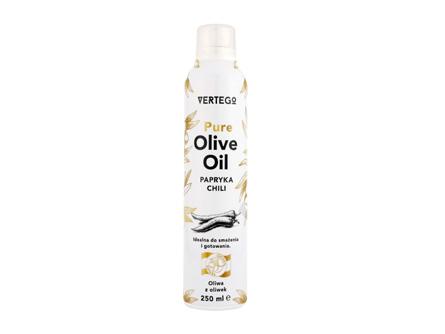
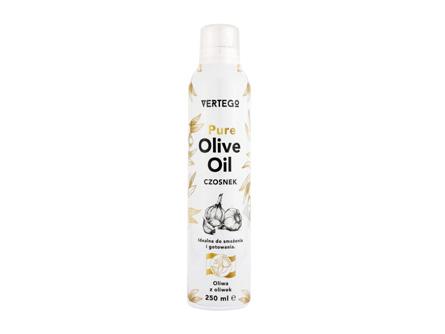
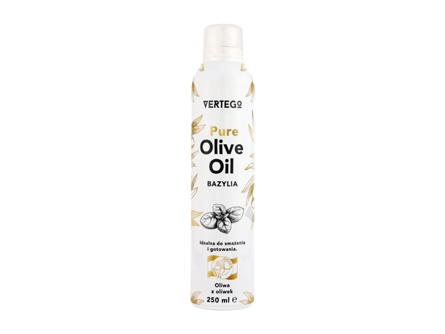

Ewa Bis operates globally in the FMCG bussines. In our portfolio you can find the most respected global brands such as: Procter & Gamble, Henkel, Unilever, Adidas, Mars, Mondelēz International, Nestlé, Ferrero, Red Bull, Monster, Coca Cola and many others.
We try to reach out to our customers every day, offering them brands, which are recognized around the world, regardless of the place in which they are located.
We cooperate with large retail chains, distributors, as well as intermediaries. Very much of our attention is focused on reliable service, which is why we provide labelling, repackaging, mixing pallets, cargo manual and trucks. Due to the growing demand for dairy products in Asia, the Mid-dle East and Africa, Poland has significantly increased exports in recent years and today is recognized as global exporter of dairy products. The dairy export department of Ewa Bis is a team of experi-enced traders supported by a specialized logistics depart-ment. Thanks to our knowledge and willingness to develop, we reach every continent with dairy products (powders, fats, cheeses, UHT Milk).

www.EWABIS.com.pl
Properly processed cheeks are delicious and a tender delicacy. Dishes prepared on their basis. They have become a permanent feature of restaurant menus, gaining an increasing number of supporters.
The Mitmar company offers pork cheeks as well as beef cheeks, produced by manual extraction carried out under strict quality control, confirmed by IFS and BRC certificates.


www.MITMAR.pl
Discover our special line Mizu Kids from Vitamizu- drinks for kids filled with magic!
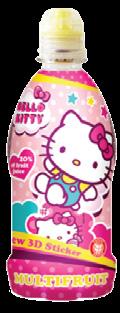
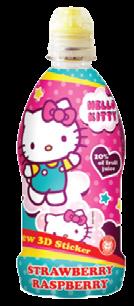
All products are with favorite characters from fairy tales for the youngest: Minions, Hello Kitty, L.O.L. Surprise! and others. Each drink has a unique flavor and packaging that allows you to attach a 3d sticker!


www.BDGROUP.eu

Your homemade way for quick and tasty meal.
Just add eggs, milk and enjoy!
Popular range of poducts – pancakes, waffers, donuts, crumpets.
www.POLSKIEMLYNY.pl
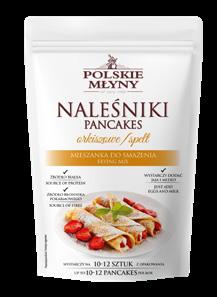
dosage options, resulting in economy, convenience, and precise usage. The products are IFS certified.
www.BDGROUP.eu
The most magnificent vertical multideck ever is the COOLES SLIMDECK PRO by Modern Expo! It boasts a modern, ergonomic design with precise bends, perfect geometry, and a maximized display window. Moreover, this multideck can be seamlessly integrated with other equipment, allowing for a complete and functional setup in any retail space.
But that’s not all! COOLES SLIMDECK PRO by Modern Expo is also one of the most energy-efficient multidecks on the market, with an energy efficiency rating of class A. It’s included in the Top Ten shortlist! So, you get both beauty and efficiency all in one www.MODERN-EXPO.eu
The need for a versatile product range and limited space necessitates optimal and well-planned spatial organization, utilizing equipment that is reliable for retailers and convenient for customers. Compact refrigerated counters QUADROS SLIM by Modern Expo offer an ideal solution for efficiently organizing refrigerated areas within small spaces. Furthermore, QUADROS SLIM is an ideal solution for the touch zone, as the significant refrigerated volume allows for maintaining balanced product stocks, while the compact dimensions of the display cases minimize space usage.
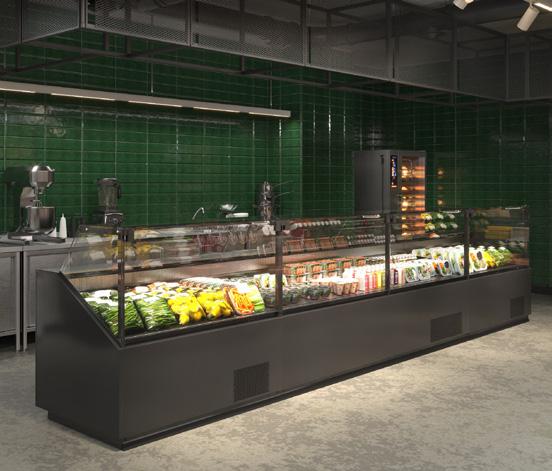
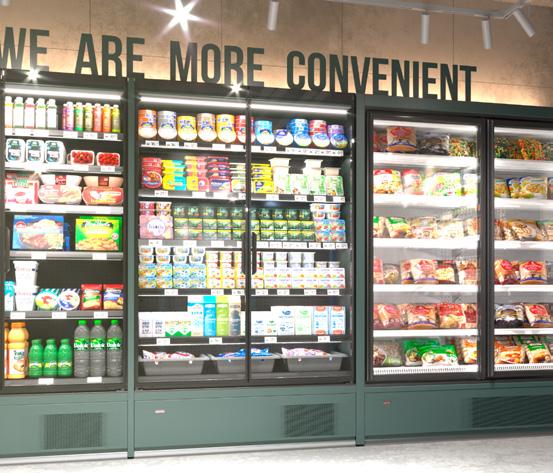
QUADROS SLIM by Modern Expo is a perfect solution for modern retail spaces!
www.MODERN-EXPO.eu
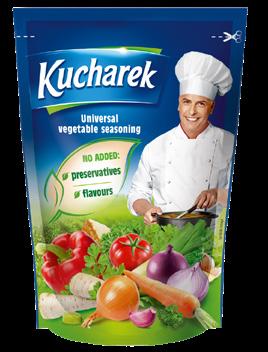
Kucharek universal seasoning is composed of various dried vegetables and spices mixed together in ideal proportions. Carrot, onion, leek, parsley, garlic and sweet pepper give it a special and desired taste and their pleasant aroma helps to gather all the family members for a common meal. Kucharek seasoning enriches the flavour of soups, meat and fish dishes, sauces and salads.
www.PRYMAT.pl
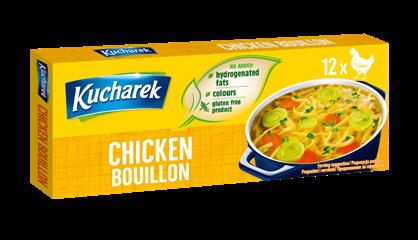
Kucharek chicken bouillon can be used as a base for any soup, various sauces, stew or roast. Carefully selected vegetables, such as carrots, parsley, celery and onions will add flavour and aroma to every soup, sauce or meat. Before cooking, cubes must be dissolved in ½ liter of boiling water. Kucharek bouillons are of the highest quality and are Halal certified.
www.PRYMAT.pl
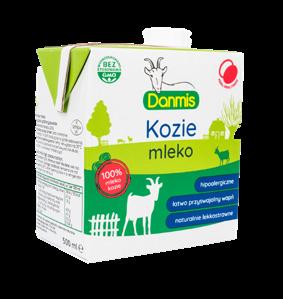
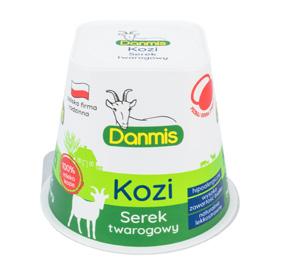
Goat milk subjected to high heat treatment (processing temperature 122°C/time 120 seconds), packed in cartons and on COMBIBLOC devices.
Goat milk is purchased from qualified suppliers. Does not contain preservatives.
www.DANMIS.com.pl
Made from goat cottage cheese . It has a light, fluffy and spreadable consistency. A perfect addition to sandwiches and cottage cheese pastes . Does not contains preservatives.

www.DANMIS.com.pl
–
www.SERTOP.pl
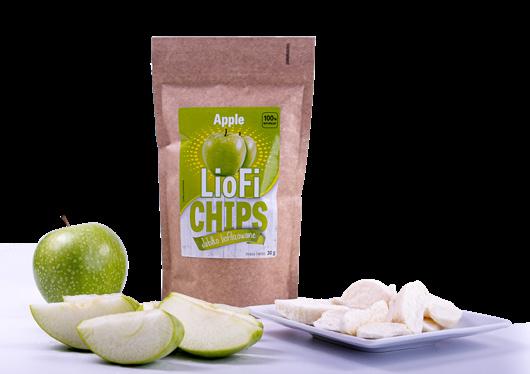
Apple contains copper, manganese, vitamins E, B6, and C. Copper

– 140 g round box
www.SERTOP.pl
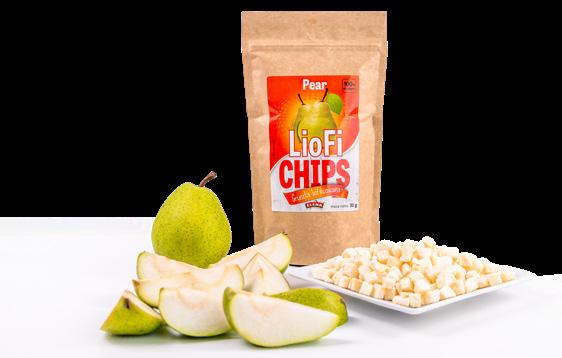
Pear contains vitamin E and riboflavin. Riboflavin contributes to maintaining the proper metabolism of iron and helps in keeping the proper state of red blood cells. Vitamin E helps to protect cells against oxidative stress.
www.ELENA.pl
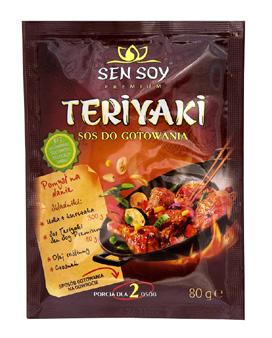
Teriyaki is a culinary technique that originated in Japan. Its name comes from the word teru (Japanese to shine), because marinated dishes shine naturally. Teriyaki Sen Soy cooking sauce, thanks to its thick consistency, is an excellent base for cooking meat, fish, seafood, poultry, vegetables, rice or pasta. Free from monosodium glutamate and other flavor enhancers.
www.SENSOY.pl


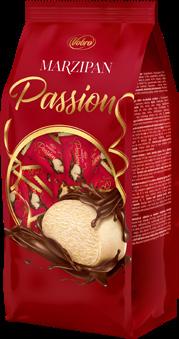

Marzipan Passion pralines are fancy sweets with a rich soul. Delicious dark chocolate envelops the marzipan filling, creating a hard-to-resist unique symphony of flavours. Every single praline is in hermetic flowpack wrapper Product is available in following formats: 180g gift format, 1kg bag and different bulk formats.
www.VOBRO.pl
Cookie flavoured ice cream on a stick with chocolate sauce screwed in, in white chocolate with cocoa cookie pieces. It’s a combination you definitely want to try! The smooth, creamy ice cream mass works wonderfully with the crunchy cocoa cookies. Product is avaible in formats: 63g/100ml or larger, bulk or multipack. Possibility option with Rainforest Alliance certified cocoa.

www.LODYHELA.com.pl
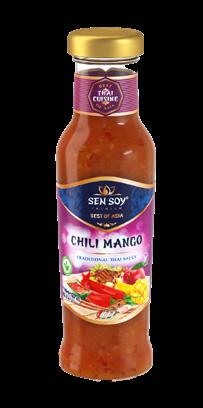
Thai Chili Mango Sauce - Sen Soy - authentic, Thai, thick, sweet sauce based on natural ingredients: chilli and mango. It can be used both as an addition to original Asian dishes, such as shrimps or tempura vegetables, as well as to more traditional dishes such as ribs, cutlets or even sausages. Chilli Ananas Sen Soy sauce is also perfect as a dip for vegetables, nachos and nugets. It does not contain monosodium glutamate or other flavor enhancers.
www.SENSOY.pl
Gryzzzli, our bear-shaped chocolates are just one of a kind. These teddy bears full of sweetness have a magical power to attract ! Have a bite and enjoy the milky filling with grains of puffed rice. The unique sweetness of the chocolate bear will make you want
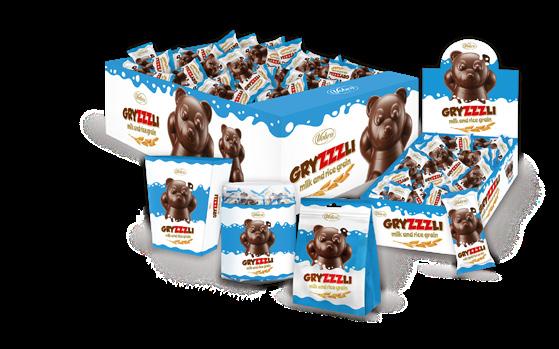
Ice cream that tastes like summer. Soft, smooth cream-based ice cream (30%) with an intense pinacolada flavour, brings back holiday memories. An energising pineapple sauce was swirled into the mass, and the top was sprinkled with toasted coconut chips and chunks of candied pineapple. The product is available in the following formats: 500 ml, 1000 ml, 5000 ml.
www.LODYHELA.com.pl
Kabanos sausages are delicious products, which can be taken to every place: on a trip, on a journey, to work or to school. They are also perfect for meetings and parties of different kinds. Kabanos are prepared from top quality meats, rich in proteins and nutritional values. They do not require refrigeration, and comfortable, small packages do not take up much space. Sokołów kabanos sausages are a perfect snack. Their range is so great that everyone will find something for themselves.
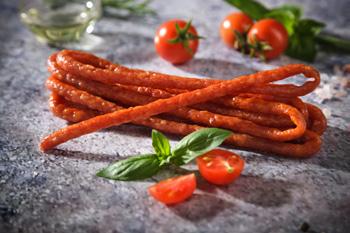
www.SOKOLOW.pl
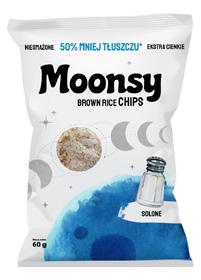
Moonsy is a novelty in snacks. Extra thin, non-fried full flavour crisps with no added preservatives. Moonsy are full of taste, satisfying all customers needs, healthier crisps for every occasion. Simple ingredients, no palm oil. Reach for Moonsy and experience the full flavour green onion, paprika and salt.
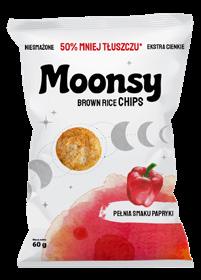
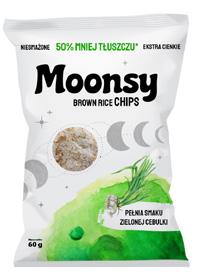
www.EUROWAFEL.pl
New products on the kids’ shelves. Sokołów knows how to win the hearts of the youngest consumers. Now it is launching tasty novelties especially for them. The products are distinguished by their high meatiness and excellent taste, which all children are sure to love. Because of the ‚clean label’, they will also be appreciated by parents of little gourmets who want to make informed choices and buy food that supports the health and well-being of their loved ones.
www.SOKOLOW.pl
Ease of preparation, convenience and time are the most important determinants of the popularity of convenience food. One of the most-chosen products from our ready-meals offer is Cordob Bleu - a delicate cutlet with ham and cheese. The meat used for its production comes from Polish chicken farms, controlled at every stage - “from farm to fork”. Thanks to the full control of the raw material, we can offer the highest quality product that can be quickly and easily prepared for a family dinner. It is enough to heat it in a pan or in the oven.
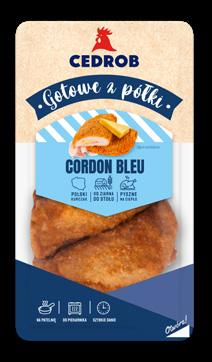
www.CEDROBFOODS.eu
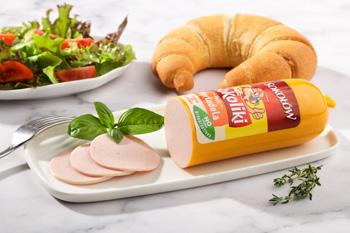
The TRANSAD company was established in 2006 and offers highest quality of transportation services, such as: refrigerated transportation, adjusting the type of semi-trailers to his individual requirements and FMCG goods shipping.
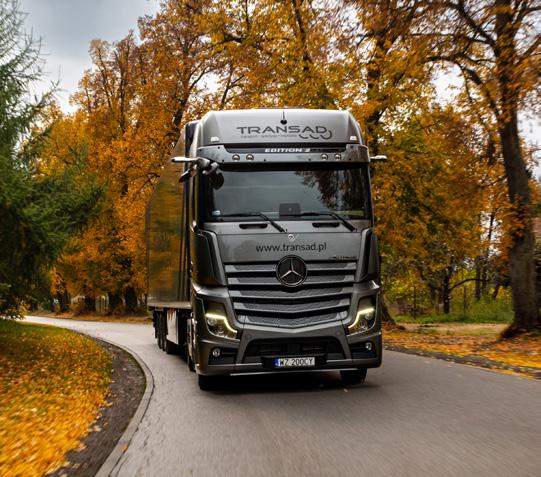
The fleet is always modern and meets the highest standards. It is constantly supplemented with various types of vehicles & semi-trailers so as to always be fully flexible and self-sufficient in the implementation of the tasks entrusted to the company.
www.TRANSAD.pl
